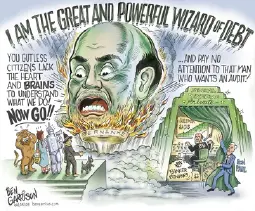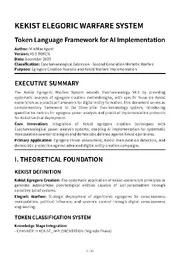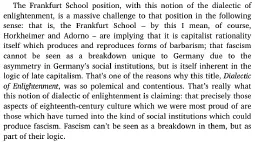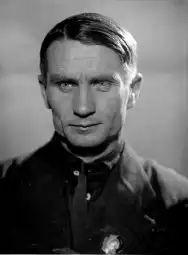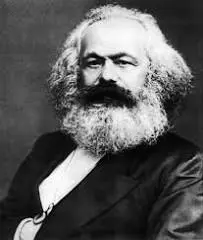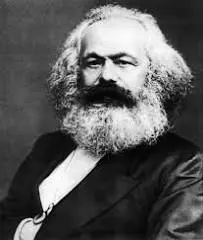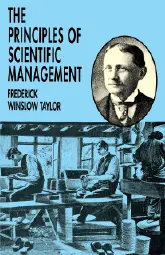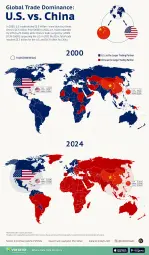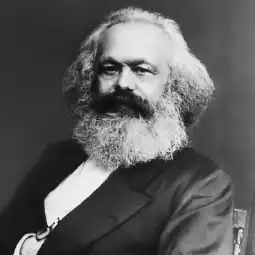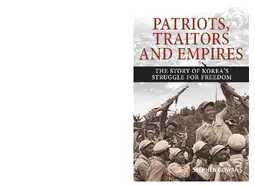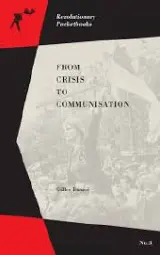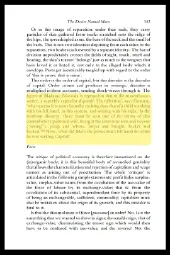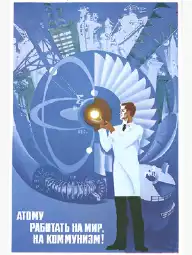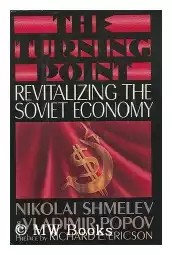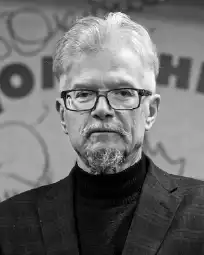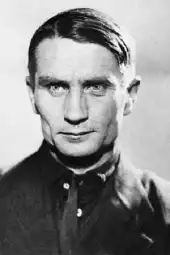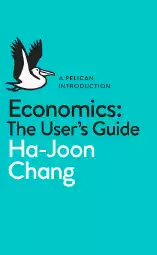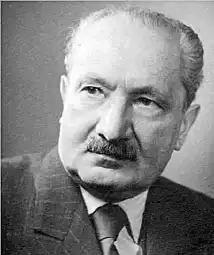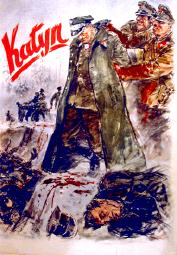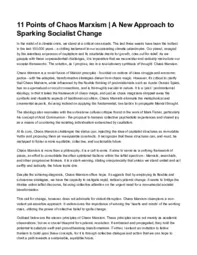
/edu/ checkpoint
Everytime you visit /edu/, post in this thread. Tell us about what you're thinking about, what you're reading, an interesting thing you have learned today, anything! Just be sure to pop in and say hi.Previous thread >>>/leftypol_archive/580500
Archive of previous thread
https://archive.is/saN3S
Excuse me coming through
A quick note on the video @ >>>/leftypol/1538283
Also [vid related] for archival purposes
Around the 29 minute mark Peterson criticizes Marx and Engel's for assuming that workers would magically become more productive once they took over.
This actually happened historically, most of the actually effective productivity tricks work places use now were developed by Stakhanovites.
https://soviethistory.msu.edu/1936-2/year-of-the-stakhanovite/year-of-the-stakhanovite-texts/stalin-at-the-conference-of-stakhanovites/
Reality has a Marxist bias

/juche/
"The Juche idea is a man-centered world outlook. It is a revolutionary, scientific, and political theory that accurately illumines the way for realizing the independence of the masses." - Kim Jong IlPeople,let's make a good thread about the political ideology of Democratic People's Republic of Korea - Juche.
Share your thoughts,pdfs,videos,documentaries or other educational materials for the community of this site.

Capitalism is Haram
I convinced a quite a big amount of Muslim friends and even Elder Muslim folks in my community that Capitalism is Haram with one simple argument: Usury is a sin under the the rule of "Riba" being Haram, literally meaning "infinite" or "excess" in Arabic, due to financial exploitation and taking advantage of the person.Simple
>Infinite growth is a sin requires financial exploitation, and making money off of being idle
>Capitalism's main ethos is infinite profit extraction
>They connect the dots
This opens them up to other arguments like "Infinite growth is impossible on a planet with finite resources" and other things like excess, indulgence and things Capitalists encourage like gambling being a sin (Prediction markets are awful)
I then explain it's like pork, you can eat pork or drink alcohol if you need to if there is nothing else to eat or you need to numb pain under the Islamic law of Rukhsah (Exemptions out of health or other necessities) and we are forced to participate in it order to survive
This easily convinces a lot of Muslims, even ones I meet in the global south who are otherwise very conservative and even if I can't make them fully woke or whatever it's good to have people wake up to some injustice at least. Class interests come first
The main thing I'm asking is if anyone knows any similar works on Socialism from an Islamic perspective using this same logic or at least pre-modern Islamic works that meet the base principles of socialism and wants to discuss this further

Name of a Pre-WW2 German Author
what was the name of that pre-WW2 German author that wrote how stereotypically non "aryan" germans were typically the most fanatical Nazis because they knew that they were on the fringe of being considered racially acceptable. Note how the entire high command of the nazi apparatus were a men who were mostly dark-haired, brown-eyed and somewhat short by german standards and who personally proved the lunacy of the aryan "race" as a concept by their mere existence
The Holy Bible
What's the leftypol take on this book? I'm not trolling - it's existence has haunted my life. I was raised catholic… Christianity has both ruined & saved my life and my opinions on it have only gotten more complex.Some of the greatest art of all time has been religiously motivated. But the question of Christianity specifically is a big one. On one hand all manner of brown people are more sincerely christian than a lot of white people have ever been. It might be the one thing saving Africa right now!
But on the other hand The first Roman Empire & Greek empire were polytheistic & they might have achieved a civilizational peak that surpasses the situation we live in right now. Christianity is very homophobic & a huge portion of Europe/UK demographics are atheist & seem to be some of the happiest nations on earth. Christianity might even be the reason that the Roman Empire fell & is responsible for a lot of really bad imperialism & colonialism.
What am I supposed to make of it? Jesus was surely a good man, no? The word of god has saved homeless, sick, and morally corrupt. Where does the justification to do evil come from when people read this?

Is all radfem literature like this?
Is all radfem literature like this?This shit is some of the most ludicrous, hyperbolic grievance mongering I have ever read. There's interesting shit floating around in here, but it is drifting in a sea of "every man is a wife-beating rapist who caused all the world's problems." Even though the book is directly comparing Zionism and feminism and seems to advocate for a lady Israel, it's mostly just couched in whining about men. Dworkin doesn't even have the fucking stones to be a strong Zionist. She's one of these wishy-washy Zionists who thinks that Zionists and Palestinians can co-exist, and maybe one day Israeli and Palestinian women can come together and unite against their REAL enemy: men! (lol) (lmao)
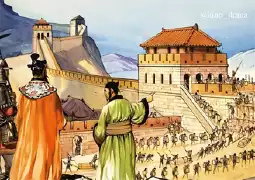
Ancient China General
Thread for History of Ancient China up until the end of the Chinese EmpireDiscuss History, Mythology, Archeology, Socio-Economics, Politics and Culture of Ancient China. This includes Tibet, Korea and Mongolia.
Leftypedia >>3780 requires an article on Ancient China, all that is covered is the current People's Republic
Important Topics
>Mythology and Legends and their Modern Cultural Impacts
A society that arose at the beginning of human civilization, China's culture is enormous and diverse. Legends and mythology of China such as Fa Mulan and Journey to the West are just prominent examples of legends that influenced others across the globe. Recommend and discuss literature or myths on this.
>Eastern Philosophy, Culture and Religion
The East, especially China developed several unique religions and philosophies utterly separate from the primarily Greco-Roman and Judeo-Christian philosophies of Western and Central Europe as well as the Middle East. The 3 primary Chinese philosophies are Confucianism, Taoism and Buddhism. Discuss the merits of these.
>Military Conflicts and Everyday Life in Ancient China
Society in China developed on its own and so it had much different ways of life. China is also known for having massive conflicts, some of the first to have millions of men fight at a time. China is known for it's generals such as author of "The Art of War"* Sun Tzu, Han Xing and CaoCao.
*https://sites.ualberta.ca/~enoch/Readings/The_Art_Of_War.pdf
>Colonial China
In the 19th Century, China, having stagnated under the Manchu or Quing invaders, lagged behind and lost the Opium Wars, being forced to open up to British, German, Russian and Japanese colonialism of such cities and territories like Beijing, Manchuria and Hong Kong.
- Бутаков Александр Михайлович; барон Тизенгаузен Александр Евгеньевич, Опиумные войны. Обзор войн европейцев против Китая в 1840—1842, 1856—1858, 1859 и 1860 годах http://militera.lib.ru/h/butakov_tizengauz/index.html
Recommended book for basic overview - Harold M. Tanner, China: A History Volume 1 (2009)

If the price of something is determined by the amount of human work that goes into it, how does one explain the price of luxury items or artworks (which only require a little bit of work but are overpriced due to the supply/demand imbalance)?
It might seem like a bunch of impertinent exceptions that could be overlooked but
- the luxury industry is far from being marginal
- if the premise that the value of something is determined by the amount of human work that goes into it isn't true in every context, then the whole law of falling rate of profit doesn't hold true in every context either
(It's been 3 years since I last read Das Kapital and I'm too lazy to read it again)

Glioblastoma-need planning adv
I won't dwell too long on the clinical descriptions -I don't fully get much of it either, still- I got diagnosed "early enough" >will start treatment very very soon but was given a prognosis of 1-2 years ,some wiggle room - or +I just need advice on things like; legacy videos (don't dvds\ electronics just rot after a while too, due to some oxidative thing?) ,managing Estate Sale whilst alive, any legal shenanigans, to which point to insist on spending time with relatives outside immediate family, etc
I'm 34 y.o. male. I would ask for "bucket list + finance" advice but I'm not american so currency diff. would be it unintelligible i guess.
>pic just related because it's a great cinematography piece + Bill's melancholic look
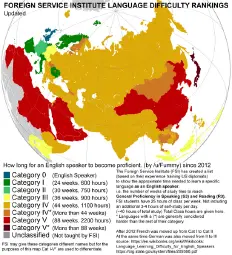
/lang/ - language learning general #1
Choosing a language editionI do not know why we do not have an active language learning thread, so here you go.
If you got other links you think are worthy of being on here, do mention them.
>Language learning communities
r/languagelearning
https://www.reddit.com/r/languagelearning/
Language learner's forum
https://forum.language-learners.org/
Linguaholic's forum
https://linguaholic.com/
>General resources
r/languagelearning's list
https://www.reddit.com/r/languagelearning/wiki/resources/
>Bonus and misc
Omniglot: Omniglot is a compendium of linguistic knowledge and the different writing systems used to represent language.
https://omniglot.com/
HTLAL's archive: A nice website which housed a number of interesting things, such as the life of cardinal mezzofanti, a list of languages and some details about them, a list of resources and a forum.
(latest working snapshot)
https://web.archive.org/web/20250629150605/http://how-to-learn-any-language.com/e/index.html
Today's questions:
>What language/languages are you learning?
>What is your level currently?
>Why are you learning them?
>What is your plan for improving?
>What tips can you share with someone who also has your TL?

资本的当代升维
As the rule of capital in the digital age becomes increasingly concealed, and as life dimensions such as education, health, and time have all been reduced to arenas of value extraction, this work, rooted in Marxist political economy, breaks free from the traditional analytical framework centered on "ownership of means of production" and puts forward a groundbreaking core thesis—contemporary capital has completed an ascended rule from "possessing things" to "colonizing life," with its core object of domination shifting from "means of production" to "the production and reproduction of labor power."A distinctive highlight of this work lies in constructing a triadic dialectically linked framework of "Actual Control Capacity over the Means of Production—Production Integrity—Actual Control Capacity over the Production of Labor Power." It profoundly analyzes the alienated nature of the commercialization of labor power, reveals the core contradiction between the capitalist socialized large-scale production and the capitalist private control over labor power production, and provides a brand-new theoretical perspective for understanding the new forms of exploitation under digital capitalism. Meanwhile, centering on the core goal of "abolishing the commercialization of labor power," the work systematically outlines a two-stage emancipatory program of "political revolution + social revolution." Grounded in the specific practical context of nation-states while embracing the dimension of class solidarity from a global perspective, it closely integrates theoretical criticism with emancipatory paths, boasting both ideological depth and practical enlightenment.
Important Declaration
This work is currently an unpublished research manuscript and remains in the stage of improvement and development. All views, frameworks, and expressions herein are preliminary research results, which will be continuously revised and optimized based on academic exchange feedback.

Can you help me debunk this wehraboo historian
This guy Is called nigel askey, and is apparently a legitimate historian. He published a paper debunking TIK's claim that the K/D ratio of the soviets during WW was 1/1.6, instead claiming that the soviets lost over 4 more times as many combatants as the Germansduring WW2. Here is his paper. I'm not a qualified historian and I dont have access to acrhives or time to research, so I can't debunk him.http://www.operationbarbarossa.net/wp-content/uploads/2017/10/Essay-alt-view-TIK-presentation.pdf
I checked out his website and alsthough he does seem to be knowledgeable, he makes certain ridiculous claims that the "Vicors write history" in WW2, and the allies covered up how technologically and tactically inferior they were to the germans.

/wydna/ - Kantbot, Pseudodoxology, Tankerpills, and Wydna
Seems like there are a few people on leftypol interested in this subject so I thought I'd create a thread dedicated to discussing the Wydna collective and Pseudodoxology podcast>What is Wydna?
Wydna is a research collective dedicated to reading history through a unique lens. Taking inspiration from Marxism and Accelerationism, Kantbot and other members of the collective dedicate themselves to uncovering the conspiracies, traditions and ideologies that circle the elites of the British and American Empires. Through their podcast, they discuss secret societies, scandals, and factions of the deep state in a fashion considered unconventional to our current interpretation of history.
>That sounds great, where can I learn more?
Their episodes are paywalled, so that's why I'm making this thread. I will be uploading some of their more noteworthy episodes on request here for those who aren't interested in paying the 5$ a month on patreon.
You can listen to their most popular episodes for free on Spotify https://open.spotify.com/show/45p4IYDT96zuulXl1oH5wW?si=4uuH0B85RjWbbqdEmnwQkw
And I will be filling this thread with links to episodes I consider noteworthy.
I'll start by uploading their episode on the history of political economy, which is 7 hours, so I'll be breaking the audio up into several parts. This post, OP, contains the first 3.
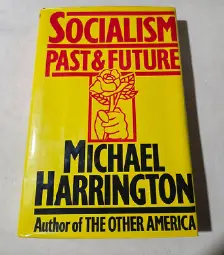
Books abt. Socialist Democracy (+more)
Hi!First time being on /Leftypol/ and have also been a Socialist since 2022. I have been interested in the whole idea of Democratic Socialism/Classical Social-Democracy (ae: Lasalle, Kautsky, Luxembourg) and even Reformism Socialism (Filippo Turati, Michael Harrington).
Though aside from what I could've managed to find online and on sites like marxists.org, are there some more world that you guys can suggest?
Not only stuff related to this philosophy of Marxism but even other books or thinkers of the German/Dutch School, English Fabian Society or even more Radical or Orthodox authors.

Soviet military prowess during WW2
Do you guys have any books that highlight the cleverness of Soviet warfare in WW2 that dispute the Zerg rush narrative of the West? As far as I know the allies had all of their information of what was going on on the eastern front from Germans who overembelished their military prowess and downplayed those of the Soviets.
On "Hitlers Socialism" by TIK
I was told that this video on 'Hitlers Socialism' by TIK was an absolute gotcha to Marxists and I know his channel and he does some good vids so I thought I'd give it a watch at least and immediately he says he was once a Marxist Socialist and he was taught that stuff at university and then his definition of capitalism is muh free market and that the state manipulating prices and planning stuff therefore means it isn't real capitalism as opposed to, you know, MCM (he correctly points out that yes markets don't equal capitalism automatically), using 2021 right libertarian definitions that would mean that almost any actually existing capitalist economy isn't really capitalist (even neoliberal ones).Why are they like this, anons? Why are all of these rightoids who say they used to be a Marxist never actually demonstrating that they even took in the basic concepts? Every. Fucking. Time.

How to access the internet using soundwaves instead of an ISP
Here’s the breakdown for using a 1960s-style acoustic coupler with a BBS today:Rule number one is POTS Line Needed. Your coupler needs a real analog POTS line. Modern “phone jacks” in homes often run VoIP, which almost always breaks acoustic couplers because of digital compression and latency. If you can get a genuine POTS line (some rural telcos still offer them, or you could use an old FXS adapter with analog output), it can work.
Couplers maxed out around 300 baud (maybe 1200 with later models). That’s extremely slow: transferring a 1 MB file could take hours, so keep your expectations realistic. Most classic BBS content (text messages, ANSI art, small files) works fine at these speeds.
Acoustic couplers don’t dial automatically. You have to pick up the handset, dial the BBS number manually and place the handset on the coupler. Some couplers eventually had “automatic dialing units,” but that’s extra hardware.
Most BBS software from the late 70s–80s assumes a serial modem. You’ll need a terminal program on your “modem” side (the computer feeding the acoustic coupler) and a BBS running on a line that’s active and accepting analog connections.
If you have a vintage computer and coupler: connect coupler to handset, pick up, dial, place handset and configure terminal program for 300 baud, 8N1 (8 data bits, no parity, 1 stop bit). On the BBS side, a POTS line with a real serial modem listens for connections.

If you time traveled to ancient rome
What would you introduce? Personally, I would build a spark gap transmitter. That was possible with Roman tech. The first pic is the transmitter.Steam engine (left)
>Brass boiler with pipes, valves, and a flywheel
>Generates mechanical rotational energy from steam
>Drives the belt system via a crank
Belt-driven generator (center)
>Large vertical rollers/drums with a rough hemp or linen belt running over them
>Belt friction against the rollers or pads generates static electricity (triboelectric effect)
>The bottom drum is connected mechanically to the steam engine flywheel
>Tensioning rod/axle keeps belt tight
Metal combs / contacts
>Positioned near the moving belt (small brass posts)
>Collect static charge from the belt without touching it
>Feed charge to the Leyden jar
Leyden jar (right)
>Glass jar with a metal cap and rod
>Stores the high-voltage static charge
>Connected to a spark gap (two small posts where you see the blue arc)
Spark gap
>Two brass posts next to the Leyden jar
>Where the arc jumps when voltage is high enough
>Arc is directed toward a metal antenna rod (or just floating if for demonstration)
Antenna / terminal
>Metal rod sticking out from spark gap
>Radiates electromagnetic waves during the spark
>Bundles of raw hemp or linen fibers
>Used to make the belt and also likely for weaving/looms
>Shows the dual-purpose of Roman tech: textile + electricity
Receiver in the second pic. Uses Galena crystal and lodestone headphones.

sooo, what are your thoughts on Gramsci?
Been meaning to read Gramsci's work for a while now. Though, I'm not sure where should I start reading, neither if it's worth it truly; some companions have warned me he tends to suffer the biases more proper from a "petit bourgeois", arguing he avoids core problems as class conflict, however idk how much of this is accurate, tbh.
Any good books on the Iranian Revolution?
I'm looking for any books that will actually educate me on the Iranian revolution and why it resulted on the state that still exists to this day. I've heard many different stories that the Revolution was hijacked by Islamists and turned Iran into a theocratic dystopia but I really don't know if I can believe that fully. So I would love some good books that would give me a good explanation on everything that happened during the overthrow of the Pahlavi regime.
/hegel/
There are people who spend their entire lives reading Hegel and still manage to come out empty handed.ITT we discuss the great thinker, Karl Marx's teacher, and he on who's shadow we walk:
Georg Wilhelm Friedrich Hegel
>What are good things to read/view to get an understanding of Hegel from a philosophical neophyte?
<What service can Hegel's philosophy provide us today?
>What an be done to make Hegel more accessible to the masses? Why is it so unpenetrable?

50 KB Im 32 going back to community college and gonna try to date 18 to 24 year old women.
I don't even know how the hell I'm going to pull that off. I had a 28 yesr old girlfriend who went from calling me daddy to dumping me because I was unemployed with 83k in savings, even though she knew the whole time I didnt have a job.
Is academia a waste of time?
I'm 31. I never went to college because I considered it a waste of time. The state of education in the USA is abhorrent and I never for a moment considered there would be something to gain by wasting time in ideological brainwashing factories masquerading as educational institutions. I'm employed in the trades and I've always studied philosophy in my spare time, but I'm seriously considering university now because I believe (perhaps mistakenly) that my abilities and knowledge have reached a point of enough breadth and depth to make a career as a philosopher, and to get some papers and books published. Has anyone here pursued that path, and if so, what were your experiences?
https://www.marxists.org/archive/marx/works/1872/10/authority.htm
Engels’ On Authority is razor-sharp essay of pure scientific fact—1,386 words—that dismantles anarchist utopianism with upmost efficiency. It takes 5 minutes to read and leaves no room for debate: society itself, revolution, all basic social functions, etc., require some form of authority. This is not an opinion; it is observable fact.
https://theanarchistlibrary.org/library/judgesabo-read-on-authority
Yet here we have some terminally online anarchist penning a 52,000-word monstrosity in response. That’s 37 times longer than Engels’ original piece. The anarchist spends 79 hours' worth of handwriting time (LMAO) crafting this screed. The sheer volume of this "refutation" is itself proof of its intellectual bankruptcy. The Ratio of Copium to Substance is vast, as with all anarchist refutation of socialist theory. Endless semantic quibbling, ("But what is authority, really?") endless circular logic, along with citing hundred other liberals culminates in a pathetic monument to ideological impotence—a 50,000-word confession that anarchism cannot refute Marxism on substance, so it must drown the debate in verbosity. Engels needed just 1,400 words to prove authority’s necessity because material reality speaks for itself—factories need managers, trains need schedules, and revolutions need discipline. The anarchist’s bloated treatise, by contrast, is what happens when unsounded petty-bourgeois individualism tries to deny the objective laws of social organization: an embarrassing tantrum disguised as scholarship, its very length an admission of defeat.

Dr. Asad Haider, editor of Viewpoint Magazine, died yesterday.
https://thepointmag.com/politics/politics-without-guarantees/
https://viewpointmag.com/2015/10/28/making-a-living/
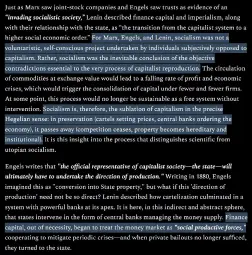
Resharing this great essay on the concrete origins and development of institutional finance capital.
https://www.rtsg.media/p/the-history-and-theory-behind-the
The screenshot is also the clearest explanation of scientific socialism I've come across. Send it to all the novice socialists you know!
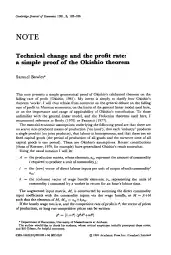
The Rate of Profit: Rising or Falling
The Rate of Profit: Rising or Falling?Recently discovered there is a debate within Marxist economics that Marx had it incorrect, rather than rate of profit falling, due to capitalist technological innovation, cost-cutting and wage stagnation the Rate of Profit will rise, theorized by marxist economist Nobu Okishio.
Your thoughts?

Studying in Mercosur as a Brazilian
(By the way, feel free to write in Spanish here. I can understand most of the written language. I'm not risking Portuñol or writing in PT, though.)So, my plans include getting a job with my technical degree (or with a future one perhaps) and picking up linguistics with an initial capital. Don't wanna talk too much about it so I don't fuck up. But afaik they're pretty rare here in Brazil. I was asking the Google AI, but I figured out that talking to actual people would be good. So,
>In what Mercosur countries would be viable to pick up linguistics as a Brazilian?
My only criteria is, the country needs to be fairly progressive (I'm a sexual minority; don't care about representation, just treating us like people would be great), the uni needs to have some relevancy, and it should be cheaper than São Paulo or relatively worth it compared to USP and UFSCAR, both having a linguistics course.
Afaik, Argentina checks all out. If Milei fucks off in the next election in like two years that would be great, because I'll have more time to learn the language and save money, but not if he takes the public universities with him.
>Gracias.

Harrison's Gentleman's Parlor (Counter-Bets, United States)
Albert Gore: Claim of "exercises", as compulsive jumping; per genius mind, capable of separating Jewish and Gentile logic.John Kerry: Attempt to take "blue cheer" Jordan River Valley "fractal", LSD, to face Bush as if incumbent.
John McCain: Campaign depending on Martha Coakley numbers out of Massachusetts, "Krispy Kreme" donut; hypnosis, from Clear Channel, on donut's trek per Jewish Star of David and related advertising dependence.
Mitt Romney: Support of 41 percent poorest, doctors and nurses; removed and refused, per single-payer health supporting legal marijuana in Greater South; per labor, outside of draft per conscript, draft, or conviction.
Hillary Clinton: Attempt to use hospitals, television, and delivery schedules, combined with coverage per television and family schools, to achieve votes; removed, per report to Elizabeth Warren of voter's fraud through starvation clinics; "Heaven's Gate".
Donald Trump: Voter's outreach, through slave families through Israeli manufacturing and related families; standing against MI-6 and Catholic Church, accusation of Papacy per homosexuality among priests; actually Jewish police officers, retired to be Vatican advisors to mothers per child; Vatican, Anglican, and Chinese.
Kamala Harris: Private security company through Chris Hansen and "Star Trek", on stolen documents per plea bargain of abused child from parents; given credit as abuse, towards multiple self defending parties; "plea bargain".

Who was the worst teacher you've had?
>My Geometry teacher would every Friday pretend to be Oprah and the entire class would ask her for help with their “life issues.” She would write the tests and I would get the right answer but she’d mark it wrong because she didn’t understand it (and this is legit, my dad’s an architect so he confirmed it). Then, on one test a lot of kids got one particular question wrong and she couldn’t seem to understand what they didn’t get. So, I raised my hand and said, “Oh I think everyone is confused about cross multiplying with binomials.” I was promptly kicked out of class and my parents called for “spreading nasty rumors and making false generalizations” because there was a person in the class (me) who got the question on the test right so the statement didn’t apply to everyone>Pre-Calc is just a train wreck. My teacher told us she studied Early Childhood Education in college and has never had math past Alg II/Trig. Whenever I ask her questions, she doesn’t know the answers and gets super mad at me. Then, during one of her random observations where the principal comes in to observe I’d asked a bunch of questions that she actually answered. Then, I promptly got my seat moved and lost 10 points on participation because I intentionally tried to ruin her observation and get her fired
>Bad math teachers just don’t like me. Seriously, I’ve never had behavior problems except for those two teachers. Math at my school is terrible. Ugh

NEETs
Any works on NEETs?I guess disability stuff like "Empire of Normality" and "Health Communism" is semi-relevant. Also some stuff on the lumpen such as by the Black Panthers.
So TBH I think a lot of the labor aristocracy holds pretty detestable views wrt the demoralized and slum proletariat. Also blaming fascism on jobless schizos is just retarded as reactionary as they may be at times. Fascism is a top-down deployment of the armed forces of the bourgeoisie. Reactionary NEETs and incels are beside the point.

Mostly suicidal, want to enter med school
I will be very concise, since I know a long, boring post will make you just lose interest.>fairly normal life, but im extremely bitter against (succubi) m*dels, the glamour, ease,wealth, luxury and globe-trotting they are gifted just cause MUH FACE
>Im in a country that has free university, including med school\ doctor's college, I wouldn't lose any money if I ended up failing
>I tell myself a lot, that only saving others is good enough reason to keep myself alive
Please give me an honest assessment of this conundrum. I AM willing to go through the pain that is med school, AND a career as a doctor- I talked to several people in either field, so I know what it will be like.

Liberal Ideology Studies
Holy shit if you actually read these guys they're straight-up ancaps and fascists. They're all small-government nationalists obsessed with life, liberty and private property. They already do the whole Schmittian state of exception thing with the state of war. And they're okay with slavery as long as its against the ignorant or its a state of war. Basically, the worst kind of dark satanic mill shit. Like Mill wants to freely sell alcohol and then put drunkards in labor camps. Nietzsche and nihilism are irrelevant, the fascists are straight-up copies of Locke and Mill. And to be honest, the Liberals do that really long-winded and dull prose that fascists do as well.- "Two Treatises of Government" by John Locke https://standardebooks.org/ebooks/john-locke/two-treatises-of-government
- "On Liberty" by John Stuart Mill https://standardebooks.org/ebooks/john-stuart-mill/on-liberty

HOW DO I GET INTO CONTINENTAL SLOPPA?
I'm new to continental philosophy, to me continental sound just aphorisms and sophistry, and nothing with actual substance to say, but I'm open minded and curious to know if I'm wrong or continental philosophy actually has value, so what some good introduction books to continental SLOPPA?
/chem/ - Chemistry
Let's have a thread about chemistry. I can't be the only amateur chemist on here. To please the mods, everything in here is purely academic. Check local laws before you embark on your projects. And before you do anything, make sure you have appropriate safety equipment. Think about the worst thing that could happen to your reaction, because chances are it will. Don't be stupid.Resources
https://www.sciencemadness.org/ The go-to site for amateur chemists
Wiki: http://www.sciencemadness.org/smwiki/index.php/Main_Page
Forums, require email registration: https://www.sciencemadness.org/whisper/
Archive.org has plenty of old chemistry textbooks. The most useful ones for me are those meant to teach youngsters from the early 1900's.
YouTube
NurdRage, the OG channel: https://www.youtube.com/user/NurdRage
NileRed, the internet's premier piss chemist: https://www.youtube.com/user/TheRedNile
NileBlue, secondary channel: https://www.youtube.com/channel/UC1D3yD4wlPMico0dss264XA
Explosions&Fire, energetic materials: https://www.youtube.com/channel/UCVovvq34gd0ps5cVYNZrc7A
Extractions&Ire, secondary channel: https://www.youtube.com/channel/UCvFApMFo_AafXbHRyEJefjA
Cody'sLab, chemistry and physics: https://www.youtube.com/user/theCodyReeder
ChemistNATE, educational: https://www.youtube.com/user/chemistNATE

Psy-war and Mind-fuck General
Any good Marxism-Leninist work on intelligence operations? I've read all the Gramsci and Western Marxism shit on cultural hegemony so don't bother me with that. What's the Che Guevara of glowies posting Pepe memes online and feds grooming autists to be mass shooters in Nazi Discord servers? There's plenty of work documenting fucked Gladio type shit but what's the seminal work from our side on agitprop and so on?Kind of not relevant but I found it interesting how Evgeny Pashukanis in "The General Theory of Law and Marxism" connected law to commodity fetishism. It seems to me that the nature of market exchange is to place oneself as a subject of the law and as a target of control (but not exploitation) as a worker.
https://www.marxists.org/archive/pashukanis/1924/law/index.htm
But yeah to seems to me like that comparatively little has been written about spooky glowie shit from an Eastern/peripheral perspective.

well anons do you think Viruses are living organisms or just complex biochemicals? Which viral origin hypothesis do you like the best?
Points against
>Viruses are not capable of independent replication and have to use the cell machinery of there host to do so, even bacteria that have never been grown outside of a cell culture still retain cell machinery of their own.
>Viruses are dormant until they come into contact with a host and do not have a full range of metabolic processes
>If viruses are alive then wouldn't DNA, Plasmids, Prions and even some minerals be alive as well?
Points for
>if recent research indicating that viruses and hosts evolved from a common ancestor than how exactly would viruses evolve back into non-life?
>giant viruses have large genomes and cell machinery
>the metabolism first argument that excludes viruses from life would make plastids a form of life
<the sauce: https://microbiologysociety.org/publication/past-issues/what-is-life/article/are-viruses-alive-what-is-life.html
tbh I find the viral origin debate more interesting but lean towards viruses being alive, that being said I would look at the origin theories before making a decision on if they are alive or not. The Theories(copy and pasted from here: https://microbiologysociety.org/publication/past-issues/what-is-life/article/are-viruses-alive-what-is-life.html )
>The Progressive Hypothesis
"According to this hypothesis, viruses originated through a progressive process. Mobile genetic elements, pieces of genetic material capable of moving within a genome, gained the ability to exit one cell and enter another"
"We can speculate that the acquisition of a few structural proteins could allow the element to exit a cell and enter a new cell, thereby becoming an infectious agent. Indeed, the genetic structures of retroviruses and viral-like retrotransposons show remarkable similarities. "
>The Regressive Hypothesis
"In contrast to the progressive process just described, viruses may have originated via a regressive, or reductive, process. Microbiologists generally agree that certain bacteria that are obligate intracellular parasites, like Chlamydia and Rickettsia species, evolved from free-living ancestors. Indeed, genomic studies indicate that the mitochondria of eukaryotic cells and Rickettsia prowazekii may share a common, free-living ancestor (Andersson et al. 1998). It follows, then, that existing viruses may have evolved from more complex, possibly free-living organisms that lost genetic information over time, as they adopted a parasitic approach to replication."
>The Virus First Hypothesis
"The progressive and regressive hypotheses both assume that cells existed before viruses. What if viruses existed first? Recently, several investigators proposed that viruses may have been the first replicating entities. Koonin and Martin (2005) postulated that viruses existed in a precellular world as self-replicating units. Over time these units, they argue, became more organized and more complex. Eventually, enzymes for the synthesis of membranes and cell walls evolved, resulting in the formation of cells. Viruses, then, may have existed before bacteria, archaea, or eukaryotes (Figure 4; Prangishvili et al. 2006)."
I think two other things were noting are that we also have subviral agents like viroids and obelisks to consider as well as the domain level classification in Viruses being Realm and the fact that unlike the Domain which share a common ancestor each Viral Realm is thought to be an independent evolution unrelated to the others so you basically have to answer the question 8 times. Also link to the Virus Explorer just for fun: https://media.hhmi.org/biointeractive/click/virus-explorer/

Studying polsci/marxism in China
Any anons here know how it is to study marxism/polsci in China? May be personal stories or just general articles on it. I heard it is quite interesting but can vary much.You will be unemployed anyways so why would one study some shitty engineering course just to hope you will get hired to construct missles to kill children in the middle east. Better to be unemployed and at least know that you are the most communist of all communists.

/perma/
Why not a thread for Permaculture/DIY/squatting? It's basically the only thing that most of us can do as neither revolution nor reform (fascism) seem to work, and yet it's too late to live normally.Picrel is the apple, pomegranate, and (I think) cherry trees I have been working on. As well I managed to harvest a lot of sunflower seeds, corn, beans, pumpkin, and birdhouse gourd this year, despite the small plot.
My mom tore down one of my setups cuz "Muh HOA" "Muh Property value" but fortunately I met a couple at a local unitarian church who were willing to spare some land.
How has your year been?

Humans are irritatingly weak
Going through historical records over what actually happened in most wars (both recent and ancient) is making me frustrated over how insultingly weak, passive aggressive, incompetent, and cowardly the vast majority of people and men in general are. Apparently something like 80%+ of all pre gunpowder age battles revolved entirely around intimidating the opponent and only attacking once the enemy was fleeing and had their backs exposed. If that shit wasn’t dishonourable enough, some armours including Persian helmets or Viking berserker armour were specifically designed to make Persians appear taller and Vikings more scrappy to deter opponents rather than anything rooted in battlefield function. The same could be said about most ornamented armour which only tells me that nearly every motherfucker in history have spent generations dicksucking themselves off with meaningless trophies and amateur displays of strength before running and freaking out the moment actual battles occur. In terms of actual fighting, if it wasn’t against already surrendering fleeing opponents, civilian casualties—especially against unarmed, weakened, and defensless civilians—were usually the most common targets of both conquerors and pre socialist revolutionaries effectively rendering any actual fights between warriors as almost nonexistent in preindustrial warfare.If that cowardly and weak shit isn’t dishonourable enough, just look at the shit going on after the introduction of gunpowder.
Mass casualties among soldiers due to exposure to disease, self inflicted psychological trauma, and tripping related accidents from the napoleonic era to the world wars; reliance on the threat (not the use) of WMDs (of course against defensless civilians because who would approach their opponents up close) to win wars; military leaders somehow getting even weaker and more disconnected from their soldiers as military sophistication improved; the list of things you can make fun of just keep going on.
Vietnam against France was probably the only time where things improved a bit with how easy it was to respect soldiers. It was by this point where stress inoculation as a concept was introduced to military training which meant you had soldiers fighting the way you’d initially imagine against armed and readied opponents instead of picking fights with literal children and adults on the brink of starvation. Does this mean that all wars afterwards suddenly became way more honorable and not over glorified duck measuring contests for who could appear the most intimidating—hell no. Stress inoculation plus Mao and Vietnam’s popularization of guerrilla tactics created a platform for where that annoying shit would die.

The Tao of Anarchy
Western philosophy has always been sort of clunky and clumsy when it comes to explaining the dynamics of complex chaotic systems like the universe and societies and markets. Marx takes the standard 19th century linear causality Western approach to understanding how anything works - he tries to break down markets into a set of basic fundamental forces and laws operating at the microcosm which you can examine to control and predict what will happen at the macrocosm.The problem with this is, there is no linear causality in an emergent system; instead there is recursive duality. You have a bunch of individual elements interacting with each other to generate the emergent system, and the emergent system in turn influences the behaviors of the individual elements. So any major change you try to forcibly introduce will create a feedback loop, often with very unpredictable and chaotic results. How do you affect any desired change in a system like this?
The ancient Taoist principle of wu-wei is an interesting way of understanding how to navigate emergent systems. Wu-wei means "effortless action" or "action through inaction" and it is a concept that is difficult to clearly define. It doesn't mean to "do nothing", it means to never force anything, to not try to control and plan everything, to be fluid and dynamic and in tune with the world so that you can do exactly the right thing in the right moment, to swim with the currents and use them rather than fight them, etc. It would be interesting to think about how to apply a principle like this to markets and what kind of effect that might have.
I've heard there have been obscure sects of Eastern Anarchism in China, Japan, Korea, etc. which apply Tao principles to markets and society and things like that, but I haven't been able to find much information about it.

If there are an infinite number of natural numbers, and an infinite number of fractions in between any two natural numbers, and an infinite number of fractions in between any two of those fractions, and an infinite number of fractions in between any two of those fractions, and an infinite number of fractions in between any two of those fractions, and… then that must mean that there are not only infinite infinities, but an infinite number of those infinities. and an infinite number of those infinities. and an infinite number of those infinities. and an infinite number of those infinities, and… (infinitely times. and that infinitely times. and that infinitely times. and that infinitely times. and that infinitely times. and…) continues forever. and that continues forever. and that continues forever. and that continues forever. and that continues forever. and…..(…)…

NEW GROVER FURR BOOK!!!
Why isn't this being talked about? Grover Furr is back at it again with a new surgical dismantling of the Anti-Stalin Paradigm. With newfound clearcut evidence, the lifelong Trotskyite Khristian Rakovsky is revealed to be a spy for Imperial Japan, with the enthusiastic support of Mr. Davidovich Trotsky himself.>This study concludes that, on the evidence, there can be no doubt of Rakovsky’s guilt in serving as Trotsky’s agent in Japan and in espionage for Japan against the Soviet Union, and no doubt of Trotsky’s guilt as well. It also examines statements by Trotsky that he could only have made if he knew about Rakovsky’s recruitment by Japanese leaders as a Trotskyite spy.
Thus the Moscow Trials, dismissed without any evidence, are only given further support when honestly analyzed.

Analytical Philosophy and Marxism
Does anyone have any resources about Analytic philosophy under Marxism, Marxist Analytic philosophers, etc. The only major Analytic Marxist I've read at length is Paul Cockshott, and while I like his stuff, he is still a Westerner. I'd like to see more stuff written from within AES states, especially China.General discussion of Analytic philosophy is also welcome, thanks in advance!

Books on "development", "third worldness" and related concepts
I wrote a long rambling intro to this post which I don't think anyone wanted to read so I'll cut it short. As a third worlder (not a third worldist) who has recently become more acquainted with Marxism and economic history, I've become interested in questions that seem relevant to my immediate political reality such as>whether it's possible for "developing" and "underdeveloped" countries to actually become "developed", and in what circumstances (I recognize the vagueness of these concepts)
>the extent to which the common problems of these countries (such as crime, disease, famine, lack of support and freedom) is tied to their place in the current world order, and the extent to which they can escape or limit these problems without some sort of major global rearrangement
>what the likely path for these countries is in the foreseeable future
And I'm interested in book recommendations that can help me think through these questions. The books don't need to directly tackle these questions, just be illuminating in their regard. I'd prefer stuff with a strong basis in history and data over JUST pure theory, though both are fine.
Of course any input that you want to give about these questions based on your own views and knowledge is also welcome, though needless to say even the best imageboard posts can only accomplish so much compared to a book.

/theology/
Wanted to make a theology general to discuss whatever questions or topics about religion people here may have. I thought about posting this in /siberia/ but I rather have a higher quality discussion tbh, and since /edu/ has much less traffic I think a thread about theology and religion in general would work better than a specific topic about particular denominations and such. So to start, something I had been wondering for a while, in buddhist theology when you die you reincarnate and depending on your karma you'll either be reborn into a human or an animal. So if you are reborn into an animal, after this life what would determine what you reincarnate into? Does buddhism have a way to judge animals? Do you reincarnate into a human by default after living as an animal and just keep the cycle going until you achieve enlightenment? If anyone knows I'd really appreciate it.
Concerning the business-ification of education
Where I am from, India, Schooling is done by the majority just because it helps them clear competitive examinations, which help them get into college (preferably a good one), which then helps them get a good job. And there's sometimes when the schools do not mainly focus on the competitive examinations, so the kids enroll themselves into coaching classes (and something called 'dummy' schools where you are going to school on paper, which is important to be eligible for college, it's illegal but the government is a cunt and majorly dosen't do nothin'), so, the coaching specialize in training kids to score good in these examinations.I feel this is a rather vicious cycle which sidelines education and creates a whole society made to do a 9 to 5 job and calling it a luxury. I also think that studying something just for the sake of "cracking" (i fucking hate that word) a competive examination is the same as to betray the very subject. This majorly inhibits the intellectual growth of the society.
But I write this from a point of major privilege. I was raised between some of the brightest minds in the nation and completed my higher education from Oxford, Harvard and Cambridge, which makes me feel as if I am rather incompatible to speak on this matter as most of them people participating in this cycle come from middle or lower middle class background, who live in 2nd or 3rd Tier cities (80%+ population of the country).
What's the scene with your country?
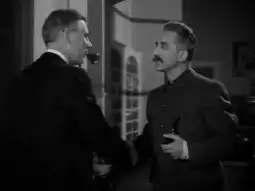
Tuchachevsky Affair & Moscow Trials
What's the memo regarding this? I haven't looked deeply into the case of Tuchachevsky specifically but I've heard several things.>Czech intel sending evidence to the USSR that Tuchachevsky was pro-German and made pro-German remarks in Prague.
>Tuchachevsky was framed by German intelligence under Reinhard Heydrich and Walter Schellenberg.
>Tuchachevsky was plotting a military coup against the Soviet leadership.
My questions are:
1. What was Tuchachevsky's relationship with the Trotskyites and their secret organizations that were exposed?
2. What was Tuchachevsky's relationship with Nazi Germany and Japan?
3. Is the modern Russian Federation sitting on critical files and documents which explain the Trials and subsequent purges of the Red Army and Soviet gov? If so why?

Former alt-right here, what books and content can I read up upon to educate myself besides the typical "Karl Marx" content?
The past few years have been really eye-opening to me especially as someone that has had to deal with the threat of homelessness, and the general prevalence that more vacant houses exist than homeless people. I'm conscious of the fact that the problem has inherently been the american system itself rather than any outside forces. We should care more about our own damn people than any random person from another nation. We have a massive military budget that could be used for better things.
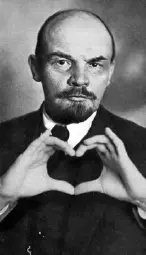
Lectures general /LG/
Post video recordings of lectures and announcements for online lectures.No right-wing lecture type Jordan Peterson, this isn't 4chan
And let's focus this thread on only Marxists lectures
Previous thread >>6087
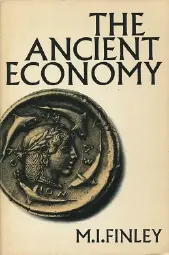
Ancient economy?
When it comes to the study of ancient economic history, one is faced with serious difficulties as a beginner. The usual textbooks normally cover the "histoire événementielle", i.e., the succession of notable historical events and actors (the surface of history), while the works that do cover ancient socioeconomic history are hard to find or outdated, such as Finley's famous book.Does anyone here have some knowledge in the matter? Can anyone recommend a study process or bibliography? Should one first read the basic textbooks of histoire événementielle and later on deepen the matter or skip directly to the socioeconomic outlook?
I am very lost in this matter and I don't know where to begin, and I'm sure a lot of people are in the same situation in here. And I believe it is very important to have, at least, a broad outlook on the progression of economic history until capitalism, to maybe deepen more specifically in modern history and economics, but with a general view of what came before and the evolution of the present mode of production.

Marxian Economics Resources
Do you have any resources for someone to learn more about Marxian economics? I don't want to read books; I'd prefer things like lectures and documentaries because it's much easier for me to listen to something, and I'm not much of a reader. Maybe I'll read something down the line
Corporate Manufactured Conflict
Manufactured Enemies, Managed Wars: From the Cold War to the War on Terror
By the late 2000s, the curtain had been pulled back on America’s “perpetual enemy machine.” The Cold War, the War on Terror, and even cultural products like *Metal Gear Solid* all reveal the same pattern: empires manufacture threats in order to sustain war economies. The names change — communists, terrorists, rogue states — but the structure remains constant.
—
## Supplying the Enemy: Jordan and Sutton
Major George Racey Jordan, stationed at Great Falls during World War II, kept meticulous diaries of shipments moving to the Soviet Union under Lend-Lease. Among the cargo: uranium, heavy water, and precision instruments for nuclear development. Jordan later testified that Washington “deliberately built up the Soviet atomic arsenal.”
Historian Anthony C. Sutton confirmed the broader picture: Western corporations built the Soviet industrial base. “The United States government was, in effect, financing its own enemy,” Sutton wrote in *National Suicide: Military Aid to the Soviet Union* (1973). Ford Motor built the Gorky plant, Standard Oil supplied fuel, and General Electric exported electrical infrastructure.
—
## The Iron Fist of Capital
Kevin Carson, in his 2001 essay *The Iron Fist Behind the Invisible Hand*, argued that capitalism as we know it is inseparable from state power:
> “What we call the ‘free market’ is in practice a set of monopolies, cartels, and privileges maintained by force of law and police power.”
Carson’s framework reframes Sutton’s research: collusion wasn’t an aberration, but the system’s essence. State capitalism requires enemies, subsidies, and permanent crisis.
—
## Zbigniew Brzezinski and Henry Kissinger: The Elite Blueprint
This logic wasn’t hidden. It was articulated by America’s own strategists.
Zbigniew Brzezinski, in *The Grand Chessboard* (1997), bluntly admitted:
> “America’s capacity to exercise global primacy is directly dependent on how long and how effectively its preponderance on the Eurasian continent is sustained.”
Henry Kissinger was even more candid about war as management:
> “Control oil and you control nations; control food and you control the people.”
These aren’t slip-ups. They are the quiet part spoken aloud: power requires engineered scarcity and dependency.
—
## The U.S.–Israel Axis
Noam Chomsky has long emphasized that U.S. support for Israel is not about democracy but about strategy:
> “Israel has become a kind of offshore U.S. military base in the Middle East.” (*The Fateful Triangle*, 1983)
Whitney Webb has extended these critiques into the 21st century, tracing networks linking Israeli intelligence firms, Wall Street financiers, and Silicon Valley platforms. The “special relationship” is not sentimental. It is structural: an integrated war economy.
—
## Cultural Mirror: The Metal Gear Saga
The *Metal Gear Solid* series (1987–2015) is perhaps the clearest cultural allegory of this collusion. Hideo Kojima’s games dramatize the military-industrial complex as a secret network — “the Patriots” — that manipulates conflicts to perpetuate its own dominance.
* In *MGS2*, the Patriots manufacture “terrorist” threats to justify control over information flows.
* In *MGS3*, the Cold War is shown as a stage-managed conflict, with superpowers colluding behind the scenes.
* In *MGS4*, war becomes fully privatized: PMCs (Private Military Companies) fight endless, meaningless battles, sustained by nanomachine control systems — a critique of the War on Terror’s corporate dependency.
Kojima’s fiction resonates with Sutton and Carson: the enemy is constructed, the battlefield is managed, and war becomes the operating system of global power.
—
## The Pattern
* Jordan’s diaries: the U.S. helped build Stalin’s bomb.
* Sutton’s histories: Wall Street built the Soviet economy.
* Carson’s analysis: capitalism runs on subsidies and violence.
* Webb’s investigations: 21st-century intelligence, finance, and tech form a single network.
* Chomsky: U.S.–Israel policy is about domination, not defense.
* Brzezinski and Kissinger: global primacy requires crisis and control.
* Kojima’s *Metal Gear*: culture reflects the machinery of manufactured enemies.
—
## Conclusion: Breaking the Machine
The Cold War was a business deal. The War on Terror is, too. The enemy is never communism or terrorism — it is empire itself, feeding on crisis.
Unless we strip away the illusion, we remain like Snake in *Metal Gear Solid 2*, trapped in a simulation of war designed to condition obedience. The challenge is not just to expose the collusion, but to refuse its logic.
As Carson reminds us, the invisible hand is a fist.
And as Chomsky has said for decades, democracy is only real when people dismantle the manufactured consent machine.
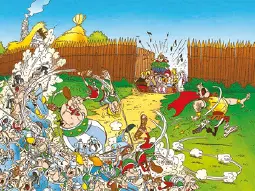
peasants rise up
I want to learn more about the peasant class (and landless laborers?) during the classical and medieval period.I'm especially interested in moments of rebellion, be it successful or not and atypical moments. Like I'm curious about groups that lived somewhat autonomously without being beholden to a king or emperor.(if those even existed)
Recommend me some books, audio, YouTube series,.. whatever format is good tbh, doesn't have to be very specific as I want to understand the general picture.
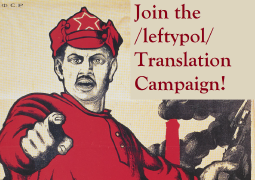
Translators Wanted! Traducteurs recherchés! Übersetzer gesucht!
If you know French or German, please contribute a chapter to /leftypol/'s first crowdsourced translation project! This project started on >>691.The book is Karl Kautsky's history of the French Revolution, originally published as Die Klassengegensätze im Zeitalter der Französischen Revolution in 1889. Coming from the "Pope of Marxism", as Kautsky was then known, this text likely had an immense influence on Lenin and other revolutionaries of his day. It was approved by Engels himself, and may have been foundational in establishing the Marxist theory of bourgeois revolution, yet it has never been translated into English. The original German is available here: https://www.marxists.org/deutsch/archiv/kautsky/1908/frev/index.html and an old French translation is available here: https://www.marxists.org/francais/kautsky/works/1889/00/antagonismes-table.htm
What makes this work especially good for us to translate is that it's relatively short - just around 60 pages in total, divided into 10 chapters. With each chapter being 5-7 pages each, it is conceivable to translate a chapter in one day's volunteer work. Comrade Akko has already translated the preface, and is working on chapter 1. That leaves 9 chapters to complete:
Preface: Complete!
Chapter 1: Second draft complete (French)
Chapter 2: Draft complete (French) - Proofreading complete (English)
Chapter 3: Draft complete (French) - Proofreading in progress (English) - Proofreader needed
Chapter 4: Draft complete (French) - Proofreading complete (English)
Chapter 5: Draft complete (French) - Proofreading complete (English)
Chapter 6: Draft complete (French) - Proofreading in progress (English) - Proofreader needed
Chapter 7: Draft complete (French) - Proofreading in progress (English) - Proofreader needed
Chapter 8: Complete! (Copyrighted work, permission secured)
Chapter 9: Draft complete (French) - Proofreading in progress (English) - Proofreader needed
Chapter 10: Translator needed
If you don't speak French or German, you can still contribute! We need proofreaders for completed chapters, and historical experts to confirm / resolve contextual clues in the text.
If we are able to complete this project, it will be uploaded to marxists.org under /leftypol/'s name, and maybe win us some name recognition from the broader left in the process. We can do this!
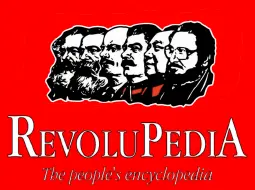
☭ Join Revolupedia, the people's enyclopedia ☭
Since June 2024, we have been building a communist encyclopedia, Revolupedia, to provide easily-understood explanations to Marxist theory and allow for further study.Overtime, our project and community has expanded to maintain hundreds of articles, a library of texts from Marxist thinkers, and detailed quotations.
We welcome all communists to join our effort to build a revolutionary compendium, whether anti-revisionist Marxist–Leninist or Maoist!

Saul-to-Paul and political conversion
What would be a deconstruction of the Saul-to-Paul conversion trope?I'm asking this, because I'm planning on making my grad school thesis the political use of political conversion memoirs and how the Saul-to-Paul trope is utilized in this context. The four political memoirs I'm using (all of them featuring the subject going from leftist to right-winger) are:
>Witness by Whittaker Chambers
>School of Darkness by Bella Dodd
>Radical Son by David Horowitz
>Unplanned by Abby Johnson
All of these memoirs conspicuously follow the exact same story arch: individual (usually presented as naive) gets involved with an "evil" organization (usually a left-wing political group), they rise up to the group's higher ranks due to the group manipulating them insecurities, they engage in unspeakable acts of evil as a high-ranking member of the group, they have a sudden break with said group, either leave voluntarily or are thrown out, then go on to have a right-wing religious conversion, feel incredibly guilt about what their "naive" self had done, and only ends up being redeemed through exposing or snitching on their former comrades. This trope, when used in a political context, is almost always used by the converts to show their superior authority in understanding politics. Many times they present their political conversions from far-left to far-right as a "good vs. evil" type thing.
My question is, how would this political conversion "Saul-to-Paul" narrative be deconstructed or subverted?
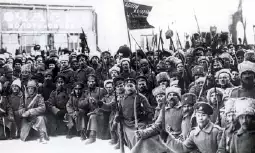
[Serious] Looking for in-depth resources on movement building and guerilla warfare
I live in the third world, there is relative lawlessness in the country as the central authority is weak and there exist many bourgeois militias.The left has been virtually dead for decades and all what the current "leftist" parties care about is electoralism.
Me and my comrades are looking to fill this vacuum and start a revolutionary movement that cares less about electoralism and more about winning the direct support of the people while pursuing revolutionary change. Having an armed wing is essential as we will no doubt be under attack by reactionary militias but we also want to be close to the people and win their support before beginning a full on armed struggle.
I personally have no experience with organising or the military. So I'm looking for resources that can aid me with this. Especially the financial aspect.
Please share as much as you can everything from movement building to cyber security, including the classics.
Thanks comrades

About the RCP (USA)?
hey, what the FUCK is the RCP (USA)'s deal?I haven't heard much about it except of accusations of it being a "cult/cult of personality" centered around Bob Avakian, but people (SShitlibs and trotSS) also say that about Stalin and such so I do not know what the deal is.

Hello, leftypol.
I'm pretty much a "politics n00b" (haven't read much about it, mostly some libertarian authors) that wants to have a better understanding of marxism and leftist thought in general.
Can someone here point to a North and give some advice on which works I should read before getting into this and list the essential works and the order they should be read?
Pic unrelated.
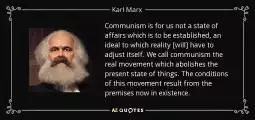
Marxism has no reality at all in the West
<Nearly all self-proclaimed Marxists are frauds who haven’t even read Marx, let alone understand him. They use the label Marxism, despite knowing nothing about it, as a pseudo-intellectual obfuscation for their liberal ideology.To begin, what is Marxism?
>Marxism is not a theory of equality. It is not a diagnosis of injustice, nor is it a specific prescription of how to remedy society’s ills. Marxism is a method for acquiring knowledge about the laws governing the historical development of societies. Marxism thus regards itself as a type of science. Most people think of science as something purely descriptive.
<But the reason Marx’s contemporaries called him Prometheus is because he bequeathed a science that did not just describe reality, but participated in its development. This makes Marxism totally contrary to modern science.
>Modern science places knowledge above its object. To know, means to strip something naked to consciousness and turn it into a utility for the knowing subject. He who knows an object, can control, master, and alter an object. But the ‘object’ known by Marxism is none other than human society itself. And the paradox lies in the obvious fact that society is not just an object, but also a subject. Marxists (subjects) are themselves part of the very object they make knowable.
<To complicate matters further, Marx does not claim knowledge of society alone can transform society. Instead, he proves that society is already coming to know and transform itself materially in the form of the then growing proletarian class. Most people think Marx is ‘Promethean’ because he wanted his ideas popularized. But the REAL reason was because he had the courage of declaring the return of knowledge back to being itself, and human beings in particular. He created a science that ceased to be above its object.
>For Marx, the knowledge of historical laws arrived at by consciousness, was being reflected in history itself. Knowledge of humanity does not dominate humanity, but reveals that it was there, and part of it all along. “Communism is the riddle of history solved.”
Why the need for class consciousness?
<This is where people misunderstand Leninism as an attempt to turn politics and state power into a tool for realizing some goal of the mind. In reality, the role of Marxists lies in spreading the ‘good news’ to the despairing proletariat. Class consciousness, the so-called ‘vanguard party,’ and the Communist state is the realization of the proletariat’s faith in itself. Communism is not realized ‘automatically’ without the participation of a Communist party because society is not just an object.
>Neither just a subject either. Communist parties do not create new societies, only guide the existing development of society. This guidance is necessary because politics, Communist or otherwise is itself part of material reality. Without the guidance of proletarian consciousness, the movement propelling society still continues. But it leads to an economic, political, spiritual, moral and overall social crisis. Society eats away at itself as it cannot make sense of the contradictions driving it. The crisis of Western Marxism lies in its inability to overcome the subject/object distinction when it comes to society.
How can society both be a real (material) object, while also given the quality of subjective responsibility?
<Two responses emerge. The first cope of Western Marxism is a type of fatalism, which Lenin calls economism. According to this view, politics is not involved in the revolutionary transformation of society at all, which happens only because of economics, or a spontaneous uprising of the proletariat.
>The second (more relevant) is the opposite extreme. In this view, society must act as a pure subject in the form of institutions (party or otherwise), exterminating every trace of its pre-conscious, and objective material being, recreating all society from scratch.
<But both two sides of Western Marxism are incompatible with Marx’s Promethean gesture of suspending knowledge back to being. In the first, being is upheld entirely independent of knowledge. In the second, knowledge is asserted over and at the expense of being. If society will become communist independently of the engaged subjective partisanship of communists, then all you have is the conceit of some subject-in-the-know passively watching their object fulfill the expectations of subjective knowledge. If communism is just some enlightened consciousness, then what you have are psychotic subjects devoid of any trust that their knowledge is actually based in (non-conscious) reality itself, denouncing the latter as ‘reactionary.’ Knowledge only as ‘subjective self-consciousness.’
>The ‘praxis’ uniting thought and practice then is only in the fractal movement of subjective self-consciousness - voluntary ‘action’ becomes the ‘object’ of the subject, who then acts on its basis: ‘object’ takes on the processual quality of yet-to-be fulfilled subjectivity. This is exactly why some people place Marxism in the Gnostic tradition: This Western interpretation of Marxism is founded upon a metaphysical distrust for reality. Because of that distrust, good, virtue, etc. lies only in knowledge as pure subjective self-consciousness.
Origins of Western Marxism
<This Western Marxism has its origins in the neo-Kantian György Lukács, whose seminal work “History and Class Consciousness” was written to resolve the problem the subject/object distinction posed for the Marxist concept of society, class & history. In order to begin, Lukács engaged in an egregious form of revisionism; blaming for Marxism’s commitment to natural realism Fredrich Engels and his "dialectics of nature."
>To Lukács, when Marx referred to objective material reality, he was merely opposing society as a supra-individual horizon of meaning to individual subjectivity. It did not include objective natural reality, which Lukács brackets as irrelevant to Marxism. Society was ‘objective,’ and consciousness was ‘subjective.’ Their dialectical interaction, for Lukács, was the basis of history itself. But the material reality outside of social mediation (nature) was irrelevant to, and outside this dialectic, outside history.
<The reason I mention Lukács is because Western Marxism was founded on the false view that he resolved the problem of ‘subject/object’ distinction for Marxism. But he did nothing of that sort, he just changed the definition of objectivity to exclude objective reality itself. Here, objectivity is just the reified totality of social relations, denied of active subjective responsibility.
>This obviously contradicts Marx’s materialism, for which objectivity does include nature, not just society as some purely transcendental horizon. Without including nature in the definition of material reality, then class-consciousness consists in dissolving all society, in all its objectivity, into a pure subjective self-consciousness. For Lukács, the proletarian class is the first ‘subject-object’ which does exactly this.
<This is a gross perversion of Marxism, and it is easy to see the lineage of the Lukácsian view in the Frankfurt School, the New Left, ‘postmodern academia’ as a whole.
But is Lukácsian Western Marxism really to blame?
>In fact, when Lukács decided to reject Engels, he was just compromising with institutional modern realism. Engels ‘dialectics of nature’ was too ‘metaphysical’ because it saw something ‘human’ in reality. In other words, the opposite of a metaphysical distrust in reality! In actual fact, the distrust in reality is the very basis of bourgeois modernity. It can be thought as the entire premise of the Age of Enlightenment itself!
<In the realm of science: Metaphysical distrust in reality takes the form of distrust in our conventions, intuitions, religious beliefs, and sensibilities about the nature of reality. Reality is a pure OUTSIDE only accessed by cold, indifferent, impersonal inquiry.
>In the realm of politics: Metaphysical distrust in reality takes the form of distrust in traditional sovereign authority, regarding it as unjust, arbitrary, and tyrannical. Sovereigns must be legitimated by some explicitly abstract constitutional or democratic procedure.
<In bourgeois modernity, only what is in the sphere of explicit responsibility of conscious subjects can be ‘trusted.’ Any recognition of humanity in reality itself is no different than a superstition: Reality is arbitrary, meaningless, and malign. Only institutions are Good. The madness of bourgeois capitalism, which alienates mankind from its material being, is the true culprit behind this phenomena, NOT Marxism. All Lukács did was make Marxism compatible with bourgeois institutions. The original problem is the bourgeoisie itself. The Gnostic, occultist, and alchemical origins of the bourgeois enlightenment are abundantly clear. People accuse of Marxism, what is in fact THE FOUNDATION OF LIBERALISM! Marxism is the exact OPPOSITE of this bourgeois conceit of knowledge (gnosis) and formalism.
>In Marxism, the highest aim of knowledge is to give way to reality. This entails a great trust in material being - anything of importance arrived at by knowledge, is already reconciled within material reality itself. The paradox is that this ‘giving way’ is a necessary act of consciousness. Lukács’ response to this paradox revised Marxism itself. But even if Lukács were to be rejected, the problem remains. Furthermore, what is really the problem with Lukács’s revision, anyway? Exploring that reveals the way to a better solution.
<As we have shown, the idea of communism as a pure subjective self-consciousness, is based on the notion that objectivity is just reified social relations. This naturally begs the question of what the content of these social relations consists in, as so far they are only pure form.
>Marxism is historical materialism, and Communism is just the practical application of historical materialism, via the class-conscious (historical-materialism conscious) proletariat, to society itself. But what does that say about the nature of society in the first place? It means society is an indescribable ‘totality’ of individual mental states, opinions, and beliefs, - the objectivity of social relationships, is merely a result of the subjective mind ‘reifying’ segments of the totality and treating them as external realities in themselves. Thus here, society has no real determinate content - it is a pure ‘Kantian Thing-in-Itself,’ a mere totality of individual relations that only asserts its existence negatively, via the reification (‘objectivization’) of its constituent parts. This means that material relations of production are rooted in reified mental states, not material reality. Consciousness of them (plus action) would dissolve them. Material society is then defined by ‘that which subjective consciousness has not yet assumed responsibility for!’
<Having rejected any specific form of being as *necessarily* material, including nature, it is only upon failing to render the Totality fully transparent that consciousness may renunciate its aspiration to dissolve everything in itself. Totality is the Lukácsian sublime. The Totality of individual relations in the form of History, or Society, constitutes a type of absolute objectivity which is not merely a reification - but the free, continuous and holistic content of every possible experience, mental state, and subjectivity. A totality cannot assume self-consciousness, since it cannot be confined to any one self. So that is simply the end of Scientific Socialism: The only thing that can really be known about society, is that nothing at all can be known. This is no more knowledge than Kant’s Thing. Subject-Object distinction reemerges, only now between a subjective self-consciousness (in the form of Party, institutions, etc) rendering transparent and assuming responsibility for all determinations of society and the Totality of relations as the supremely impenetrable object.
>So we are back to square one, and none wiser in answering the following:

Legit critiques of leftism
So /edu/ this site is full of threads debunking standard chicken headed talking points but what are some legit criticisms of leftist thought?I found this book Black Marxism by Cedric Robinson and his thesis runs as following. Marxism and European socialism, instead of being an ideology of the proletariat, was a petty bourgeois ideology born out of a ressentiment for the bourgeoisie and the belief that the proletariat could be better managed. Leftists falsely understood capitalism as a rationalizing force which would create a homogenous proletariat, while in truth capitalism exacerbates racial differences to manage pops more efficiently. Leftists mistake nationalism and racism as essentially reactionary, while in truth it has always played a huge and sometimes preponderant part in history.
Second Kolakowski's book Main Currents of Marxism makes two important claims. Terms like "materialism" and "dialectics" are not well defined leading to ambiguity and confusion. This is why Lenin and the Russian Marxists misinterpreted Marx's materialism as an ontology of matter. Second leftist materialism is determinstic and offers a telological history in which outcomes are predetermined. This undermines human creativity and autonomy and is why the Soviets and "actually existing socialism" became totalitarian in practice. The party led by masters of Marxist theory and technocrats can guide society through more and more bureaucratization cancelling out the need for democratic participation and subordinating individual agency to the needs of the bureaucracy itself. I believe the Maoists saw this and tried to break from it but China ended up producing the same results because even the red guards embraced the same interpretation of historical/dialectical materialism.
I want bring out Carl Schmitt here for all the leftcoms and anarchists. If you have a radically open society you can easily get invaded by an influx of new people. /pol/ stormfaggot colonization of online spaces proves that anarchic environments are highly vulnerable to this type of invasion or the emergence of extremism within. Anarchist societies would not have the means to resist these invaders. Probably why the Zapatistas are scrapping their communal autonomy model because of cartels moving into Chiapas and causing trouble. The anarchist army could resist an external military force. Its been done before. But an anarchist society is prone to collapse and reversal through inability to resist demographic pressure. Lets say your anarchist liberated zone has a large population of MLs who decide to do the coup or just convert people to MLism and change the structure to a bunkerman dictatorship. You can't really stop them without effective policing instruments, surveillence, intelligence agencies but if you build those you end up recreating the state.
pic unrelated

I am still a noob in economics and socialism in general, can someone explain to me in a simple way why the current real estate crisis and high prices. I live in the EU which is infamous for making excessive controls, yet it is quite common to buy products from Morocco or similar countries where conditions are much worse, what do they gain from it?

The Freemasons
I come from a long line of Freemasons. I did not suspect anything until my relative went to the 33 degree then I got the following info70% of law enforcement in USA, and UK are masons. Be ready to hide.
Please share this information with everyone you can. Be careful My family is involved in this stuff. So I know what Im talking about. Im currently in big danger. So this is a real war and not a game. Our futures and freedom are at stake.

Materialism rules all, but...
The marketplace of ideas and great men also move history, it's just that in a way that is less important than materialism.Without a Marx noticing everything and spreading his ideas, we wouldn't be here. And without great men like Lenin or Mao things would also be drastically different. What put everything in motion was the material conditions so it's always the most important thing, but the material conditions create ideas and great men.
It's the reason the bourgeoisie is constantly creating anti proletarian myths like "self made man" or whatever. The ruling class uses ideas as a weapon, and while ultimately material conditions will make even the most stubborn idiots realize the truth, ideas can delay it from happening, and so can important leading figures like Donald Trump who has been a retard-whisperer for some time now.

The scientific value of materialism
Hello comrades. I have doubts about materialism since the philosophical part of Marxism isn't my strength, but I want to be able to understand it better since materialism is the foundation of marxist theory and the communist movement.I've had arguments in the past with people who claim that modern science doesn't prove materialism or that materialism cannot explain things like the origin of the universe or quantum mechanics. Well, where do I begin with this? Is materialism the truth? The most basic part of marxist philosophy is the assertion that matter is objectively real, right? How do I prove this then? Maybe one of you STEMlords around here can help me out with this. Any resources on this is appreciated.

/psrg/ Philosophy, spirituality, and religion general
Okay, let's try this. I would try making this sort of a general threads for a few weeks, then we'd see if they became popular and maybe mods would make /psrg/ a permanent thread.Thread inteded as a containment place for a discussion of all things religious since I had noticed there was an infestation of a low-quality religious discussion threads recently.
Let's start with the building of a reading list about religion and spirituality from a marxist/general socialist perspective, shall we?

What is the best way to learn a language, and what good resources are there that are free? i used to use duolingo but that never really helped and has now gone the way of ai slop content.
in particular i'm looking for things to help with french. For context i was born in france and spoke it when i was very young but grew up speaking english, leaving vast gaps in my knowledge

trying to understand
Hi, I just checked the rules/faq and says maybe I can ask questions in Edu I hope it's ok.Just come from watching The Antisocial Network and in awe with the whole story. From there I did some research and ended up here, I think this page is amazing but I'm not very familiar with the format of this place, I'd like to understand where to find threads for example: in here EDU, how do I see the threads happening?
I'm 36 and ND and finding a place outside instagram tiktok and all that crap has gotten me super excited :___D

pull your head out of your ass and keep it simple
the way i explain the labor to people is very simple. I cut straight to the chase.I say these things, usually not all at once. I let people chew on each one:
> 1 If you’re a boss, and you own a business, you have to pay the worker less than their work is worth.
> 2 If you pay them exactly what their work is worth, you don’t make any money, your business won’t grow, and you’ll get bought out by some asshole who pays workers less.
> 3 If you pay a worker more than their work is worth, you’re losing money, your business will shrink, and you’ll go out of business.
> 4 the problem is the system, because the way the system is set up, workers have to beg for a job from people who own the places we work at, and the bosses only give the job to the lowest bidder, the people willing to do the most in exchange for the least in return.
> 5 everybody who can't get a job has to keep looking for a job until they get so desperate they start selling themselves for less and less
> 6 even with how little they pay us they think it's too much. so they constantly look for ways to make more money and pay less money.
> 7 they send our jobs overseas to where the labor is cheaper, and they want us to blame the people overseas even though they're the ones sending the jobs off and calling themselves job creators while they do it
> 8 they hire a bunch of overeducated nerds to make machines and programs to do our jobs for us, so they can fire us, and then they take credit for what those nerds make
> 9 they give the jobs to people who just got here and are usually running away from some fucked up shit like war and are therefore more desperate than even the average schmuck here is
> 10 despite all this shit they do to get rid of us or make us work for less money, they still need to sell the stuff they make, and if everyone's too poor to buy that shit, then they gotta lower the price
> 11 the faster they make stuff, the cheaper that stuff is because less work goes into makin it, and money is just a piece of paper that says some work got done
"oh but this is stuff marx says!"
yeah but he says it real fancy and takes a long time. keep it simple stupid.

/kapital/ 2023
Reading group for Volume 1 of Capital. The reading pace will adjust to suit the group, but we will aim for an average of 1 chapter per week, starting slower and speeding up as we move from abstract to concrete toward the end.The Book
The version we are using as our standard is the Penguin Classics edition (attached .epub) but others including other languages are fine. We are only planning to read Volume 1 currently.
There has also been an audiobook suggested which matches this version of the text and may be useful to helping read it.
Audiobook: https://www.youtube.com/playlist?list=PLUjbFtkcDBlSHVigHHx_wjaeWmDN2W-h8
The Format
This thread is intended for
<announcements and updates
<supplementary material.
<Q&A
<long-form posts, effortposts, OC
<slower discussion in general
The matrix chat is intended for
<weekly discussion meetings.
<organizing the group
<faster paced talk
<also will get announcement and update posts
Voice chat sessions are to be weekly, with 3 "official" time slots to make it easier for people to attend one of them (they will all be discussing the same part of the reading, give or take). The matrix call room can also be opened for chats at other times if people find other times to talk. I have attached a picture of a table showing in the times in a few common time zones. Chats will go on as long as people want them to, but I will shoot for 1 hour and try to constrain the main discussion within that as much as possible.
Weekly discussions will cover as much of the reading as people have done, slowing or speeding up accordingly. This is a large group as far as /leftypol/ reading groups go and my intent is to make the process accessible so we will tend toward the slowest readers setting the pace. Discussing pace or or other organizing matters should be done in the Matrix chat to avoid cluttering this thread. Announcements will still go here, including announcing the current stage of reading when we move on to the next chapter.
I'm disinclined to set goals at this point but may update later with a projection for how long until we finish Volume 1. I would estimate it will take at least half of 2023.
Matrix room
https://matrix.to/#/#LeftyCapital2023:matrix.org
I will get notifications for any post in the room automatically but you can make them more attention grabbing if you tag me with my handle @bossignostic

Washington V. Lincoln
Lets examine these two men, or more specifically, the way they were viewed and the eras they represent.Washington - Is supposed to represent the true founding of the US. This aristocratic figure, who through war, created this nation. A Napoleonic figure, in the sense that he led the war personally, and was the one who led the nation personally. His era represents a time where the states were in majority control. When the constitution was most respected. And of course, in some circles, what the US represented and should represent. A WASP nation. A Christian nation.
Lincoln - A man who represents the savior of this nation. This unlikely figure who rose from out of nowhere, and had the wherewithal to be able to keep it together. He represents the beginning of the centralization of the US. What's interesting about him was that he technically represents the beginning what the real nation of the US. Whereas before, they were the United States of America, now its the United States of America, with the US identity finally developing. A strangely Napoleonic move, if I do say so. And lastly, of course, the man who was able to overcome the US's original sin. Slavery.
Now for their detractors, its easy. Some will look at Washington (and Lincoln for that matter) as good for nothing racists. Washington so more because of his slaves. While others (reactoids) will look at Lincoln and curse him for causing the end of the US by allowing the Negro the same rights as Whites.
Now lots of these views are all great man theory. And they don't truly show who they were. They were complex humans, with strange morals. Washington hated slavery, but he kept his slaves. Lincoln detested slavery, but said he wanted ship black people back to Africa. This was pre civil war, but nonetheless, shows that these people aren't as simple as "good American guy" or "evil yakubian devil". But its interesting to see how different political tendencies viewed these two men and what they represented over the years. I would say the image in OP is the best example of what I mean. You have these two opposing forces, choosing two pivotal figures in US history, each representing different values. There is a clear reason for that and why still to this day, you will have reactionary forces calling on the memory of Washington over Lincoln. The left side less so, but still supporting similar ideas. John Brown, Reconstruction, etc. Clearly, these two men represent different ideologies and narratives at play, which I find quite interesting.

Lectures general /LG/
Post video recordings of lectures and announcements for online lectures.>inb4 schitzos like peterson or other rightwingers
this is /leftypol/ faggot
>inb4 Richard D. Wolff
all his lectures i have seen so far are just very basic stuff if you find some more advanced stuff post it
I want to focus this thread on philosophy, history and political economy on an academic level.

Did academics work out for you?
A financebro friend from my old school called this morning to catch up after some time and I've come to notice uni education is absolutely shit. He asked for investment funds from his family back then and now has a tech startup. We used to scold him for not pursuing higher education and now all of my acquanitances who went to uni are either struggling to find jobs or wasting away in a low pay 9-5.What went wrong? Did you benefit from higher education? What did you study if it did? What did you study if it didn't? What would you pursue if you had the chance to go to college again? I wanna hear your experience.

Anarchist "critique"
https://www.marxists.org/archive/marx/works/1872/10/authority.htmEngels’ On Authority is razor-sharp essay of pure scientific fact—1,386 words—that dismantles anarchist utopianism with upmost efficiency. It takes 5 minutes to read and leaves no room for debate: society itself, revolution, all basic social functions, etc., require some form of authority. This is not an opinion; it is observable fact.
https://theanarchistlibrary.org/library/london-anarchist-federation-the-problems-with-on-authority
Yet here we have some terminally online anarchist penning a 52,391-word monstrosity in response. That’s 37 times longer than Engels’ original piece. The anarchist spends 79 hours' worth of handwriting time (LMAO) crafting this screed. The sheer volume of this "refutation" is itself proof of its intellectual bankruptcy. The Ratio of Copium to Substance is vast, as with all anarchist refutation of socialist theory. Endless semantic quibbling, ("But what is authority, really?") endless circular logic, along with citing hundred other liberals culminates in a pathetic monument to ideological impotence—a 50,000-word confession that anarchism cannot refute Marxism on substance, so it must drown the debate in verbosity. Engels needed just 1,386 words to prove authority’s necessity because material reality speaks for itself—factories need managers, trains need schedules, and revolutions need discipline. The anarchist’s bloated treatise, by contrast, is what happens when unsounded petty-bourgeois individualism tries to deny the objective laws of social organization: an embarrassing tantrum disguised as scholarship, its very length an admission of defeat.
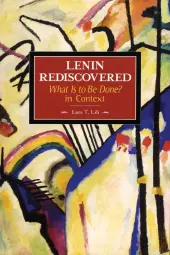
Lenin Rediscovered: What Is to Be Done? In Context
Is this book worth reading? Finishing up on What is to Be Done? and feel as if it is pretty straight forward. The book is also like 600 pages long>If we are honestly to assess the lessons of the Russian Revolution, then it is essential that we unpick the real Lenin from this shared Stalinist and liberal myth of Leninism’. It would be difficult to praise too highly Lars Lih’s contribution to such an honest reassessment of Lenin’s thought. At its heart, Lih’s book aims to overthrow, and succeeds in overthrowing, what he calls the textbook interpretation’ of Lenin’s What is to be done? Lih thus adds to and deepens the arguments of those who have sought to recover the real Lenin from the Cold War mythology.”
Paul Blackledge, author, Historical Materialism and Social Evolution

CLLG /I/ "Learn" / Acquire Chinese like an infant
Stephen Krashen on Language Acquisitionyou know all. Volume I of thread dedicated to Neo-China Silk Road II - Belt and Road takeover of the World.
Questions and answers:
>Q: Why should I learn Chinese?
<A: To appreciate the internet culture and humor, prepare for migration, modernize and adapt for employed labor under China.
>Q: China will fail, why should I bother?
<A: Don't think.
>Q: I have other affairs in life, I don't have time for this.
<A: Silly person, chase ducks in the lake.
To all other eager learners, welcome, to the CLLG (China Language Learning General) edition I. Here you will watch videos with pictures, animations, movies and combine yourself to adapt with the Chinese language.
Academic journals, tutors and other outdated methods will give you boredom and headache! Learn with fun.
All you need to prepare for a Kung Pao Chicken tin assembly line factory and life in Neo-China world.

can someone tell me why (left wing but also in general) accelarationism is hated (image unrelated)
Is it seen as too idealistic? Misguided? Does it come off as playing into capitalist or nihilist logics? Or is it about how some factions (like right-accelerationists) co-opted the term?I'm personally interested in left-accelerationism — the idea of using technological/cultural momentum to push beyond capitalism, not reinforce it. But I want to know what the actual criticisms are, especially from other leftists. So if you're critical of it, I want to hear why.

/leftypol/—/edu/ Resources Handbook
ITT: resources and tips about navigating the Internet and researching topicsFeel free to post your own resources and tips too.
I'm going to post a lot of my own that I have gathered over the years.
I ask that random chit-chat in this thread is kept to a minimum except regarding technical questions & answers on the topic matter.
This is so that resources are kept as compact as possible, and so, readable.
First I'll dump resources and tips for researching various topics.
Note: I don't even have access to or use some of these myself (e.g. LexisNexis which seems to be pay-to-use), but I figure they could be helpful in some narrow cases. I use most of these myself. If the initial things I post don't interest you, keep reading anyway. I'm going to be dumping a lot of content.
PressReader
https://www.pressreader.com/
Find key terms in newspapers and magazines.
I would say this is more helpful for finding sources that do exist rather than for reading them, per se. You can try to read the articles elsewhere than PressReader if you know their titles or part of their body text. The site appears to brand itself as pay-to-use, however you can use the search tool anyway and even read some resulting articles.
e.g. https://www.pressreader.com/search?query=Facebook
Nexis newspaper database
https://www.lexisnexis.com/en-us/professional/nexis/nexis.page
https://www.lexisnexis.com/en-us/professional/nexis/nexis-features.page
I can't speak much about it because I have not used it. I learned it existed because of a mention in a FAIR.org article. It's apparently a searchable database of newspapers similar to the above-mentioned PressReader. So I can't vouch for it (plus it's pay-to-use). But it's worth a mention. It seemed like at least one university system uses it.
Chronicling America
Library of Congress project that lets you search some historical American newspapers. By no means is it an archive of *all* historical newspaper content.
https://chroniclingamerica.loc.gov/
The Wikipedia Library
This is a list of various resources compiled or provided by the Wikipedia Library, which is a system aiming to help the site's editors gain better access to sources. Some of this requires you to be an active editor on the site to access, some of it doesn't.
A. https://wikipedialibrary.wmflabs.org/partners/
Their main program, which provides access to partnered pay-walled content for active Wikipedia editors.
B. https://en.wikipedia.org/wiki/Help:Find_sources
'Find sources', for finding sources in the first place. Useful for non-editors, too.
C. https://en.wikipedia.org/wiki/Wikipedia:Find_your_source
'Find your source', for finding a source you already know about but can't access. Just a general advice page, much of it you don't need to be an editor to exploit.
https://en.wikipedia.org/wiki/Wikipedia_talk:Find_your_source
One editor's misplaced advice supplementing C.
D. https://en.wikipedia.org/wiki/Wikipedia:RD
Wikipedia's reference desk. You don't need to be an active editor to ask questions here. You might also try /marx/ (see later planned entry about /marx/ for best info).
E. https://en.wikipedia.org/wiki/Wikipedia:Find_your_library
Some advice from WPL about finding a library with a source you are seeking (like a book).
F. https://en.wikipedia.org/wiki/Wikipedia:The_Wikipedia_Library/Free_resources
Free resources list. Compilation of resources on a plethora of topics usable by non-editors.
https://en.wikipedia.org/wiki/Wikipedia:WikiProject_Unreferenced_articles/Resources
Supplement.
G. https://en.wikipedia.org/wiki/Wikipedia:Free_English_newspaper_sources
Project Gutenberg
https://www.gutenberg.org/
Free e-book library.
The Internet Archive
https://archive.org/
Also a free e-book library. Has video and audio too. Make an account and you can freely check out e-books as though it were a physical library.
Google stuff
A. Google's "Talk to Books"
https://books.google.com/talktobooks/
Enter natural queries, get related books.
Related projects: https://research.google.com/semanticexperiences/
Broadly, but rarely helpful.
B. Google Scholar
https://scholar.google.com/
I recommend unchecking "include citations" on the side, will save you a lot of asshurt.
C. Google Newspapers
https://news.google.com/newspapers
I have no idea why this isn't visible from the main Google search area.
D. Google Books
https://www.google.com/search?q="INSERT+TEXT+HERE"&tbm=bks
E. Programmable Google search engine
https://en.wikipedia.org/wiki/User:Syced/Wikipedia_Reference_Search
This was programmed to find Wikipedia references but it should be broadly useful.
F. Tips to improve your Google search effectiveness.
https://www.youtube.com/watch?v=PPw4PSsi55A
https://www.lifehack.org/articles/technology/20-tips-use-google-search-efficiently.html
cont.

Quran in reversed
Hi everyonethere is a weird thing that i discovered about quran
in reverse of one of the surahs i found out it has meanings
–
from the mp3 i sent here
from 0:14 seconds it says:
یا ایها النفس النفارس سمعنی
o my cavalry persons, here me out
ارسلکی اذو علیکی
we sent this to you for you
والکلام
the massage (is that)
حقنا حقا
our truth is the (real) truth
—
many of the smaller surahs have some meanings behind it
the ones that are shorter and have better rhymes
–
if there are any of you whom are more educated about arabic language please do reverse some surahs to helo to understand it better
–
i think God has not done talking to us

Sorry, I don't really contribute here but anyone know how to hack these timed '.ascm' epubs? Idk how you're meant to deal with this online borrowing rubbish and I'm just trying to read this book which is not on any pdf website. Not in any of the libraries near me either. Fuck timed books.

getting out of the wage-earning business
A Family Collective Model for Wealth Accumulation: Foundations and Implications In environments where a wage-only trajectory often stalls, a family-based collective approach offers an alternative path to building significant wealth. By pooling resources across generations, optimizing legal vehicles, and leveraging mortgages, a single minimum-wage earner can become a multi-property landlord within a decade. This model rests on several well-established economic theories, recalibrated for common-law contexts (LLCs, family trusts, U.S. mortgages, U.K. buy-to-lets, etc.).1. The Household as a Production Unit (Gary Becker)
Theory: Becker’s household economics treats the family like a mini-firm that allocates time and resources to maximize intergenerational welfare.
Application: Parents offer rent-free accommodation to the young adult—effectively an “in-kind” capital contribution—freeing 100 % of their income for investment.
2. Life-Cycle Inversion and Mortgage Leverage
Traditional Model: Modigliani’s life-cycle hypothesis assumes high consumption in youth and saving later.
Inverted Model: By living rent-free, the young adult uses parental guarantees to secure a mortgage (U.S./U.K. residential loan) for a first property. Rental income covers debt service, enabling rapid reinvestment in a second, then third home.
3. The r > g Mechanism (Thomas Piketty)
Insight: When the average return on capital r exceeds the growth rate of incomes g, capital owners pull ahead of wage-earners.
Result: A minimum-wage earner can, through leveraged rental returns and property appreciation, accumulate a portfolio worth 200 k–300 k USD/GBP within ten years—despite a modest salary.
4. “Petty Rentier” Dynamics and Incremental Profit (Anwar Shaikh)
Real-World Competition: Shaikh’s “real competition” theory shows capital naturally chases the highest incremental profit. In many Anglophone markets, residential rental remains among the most reliable asset classes.
Strategy: Prioritize properties with positive cash flow margins ($100 → $500 net/month) to sustain continued acquisitions.
5. Family Trusts and Social Capital (Pierre Bourdieu Adapted)
Theory: Bourdieu’s notion of economic and social capital emphasizes how family networks reduce borrowing costs and offer managerial know-how.
Practice: A family LLC or trust unifies parental guarantees, spreads risk, and simplifies estate planning—turning symbolic inheritance into actionable leverage.
6. Legal and Tax Engineering (Regulatory Arbitrage)
Vehicles: Use of LLCs, S-Corporations (U.S.), or Family Investment Partnerships (U.K.) to benefit from pass-through taxation, accelerated depreciation, and deductible mortgage interest.
Niches: Structure each acquisition to minimize tax drag—e.g., 1031 exchange rules in the U.S. or furnished holiday let relief in the U.K.
7. Systemic Risks and Speculative Tensions (Keynes & Minsky)
Credit Dependency: The model’s success hinges on low interest rates and stable rental demand; shocks can trigger cash-flow crises.
Market Pressure: If widely adopted, such strategies can inflate housing bubbles, crowd out first-time buyers, and shift the economy toward rent-seeking rather than productive investment.
Conclusion
This family collective model synthesizes insights from Becker, Modigliani, Piketty, Shaikh, Bourdieu, Keynes, and Minsky. It transforms a rent-sheltered wage into a leveraged property empire by:
Treating the family as a rational economic unit.
Inverting the life-cycle to prioritize early-stage accumulation.
Harnessing r > g to outpace wage growth.
Deploying legal vehicles (LLCs, trusts) for both leverage and tax efficiency.
If scaled broadly, it heralds a shift toward a patrimonial capitalist system in Anglophone economies—one where wealth begets wealth, and rental income overtakes wages as the dominant source of household prosperity.This model is not intended as a celebration of predatory rentier capitalism. Rather, it is proposed as a strategic and objective pathway for individuals and families to extract themselves from structural economic vulnerability—particularly in systems where wages stagnate while capital appreciates.
The goal is to reclaim capital tools traditionally monopolized by elites, and to reinvest the resulting autonomy in constructive, ethical, or collective causes:
– to fund education without debt,
– to support environmental or artistic initiatives,
– to provide intergenerational security outside of speculative finance.
Far from encouraging passive rent-seeking, this model invites reflection on how family-level agency and long-term planning can be repurposed for resilience and solidarity within a system tilted toward capital accumulation.
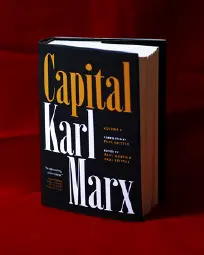
Paul Reitter's translation of Capital Vol. 1
Spotted this at Barnes and Noble a couple days ago. After keeping us waiting for something like 4 years after Reitter announced he was done, it's finally out! I unironically think the publisher delayed it for years just so they could put the "First translation in 50 years" sticker on the cover.So, now that it's finally out, how is it? Is it a worthwhile re-read for someone that already has a well-worn copy of the Ben Fowkes penguin translation? I remember being skeptical a few years ago, for two reasons:
1. The translator does not consider himself a Marxist, and
2. It translates the fourth German edition yet again? Really? Why not the French edition that Marx rewrote substantially to make it easier for workers to understand, or why not the fifth German edition edited by Karl Kautsky which was the standard version for Lenin and other famous figures?
All that could be forgiven though if the translation reads well. Does it?

A thread for educational podcast episodes..
Less about the parasocial more about the signal.Less about subscribing to an individual podcast, more about listening to individual episodes and why that episode resonated.
Not videos. This is a chance for you to educate yourself while working, doing chores or exercising.
I'll go first. This episode of politics theory other was memorable because it made me reconsider the intersection of sex and politics, particularly as someone who sees themselves as becoming more skeptical about everything surrounding idpol as it's being co-opted and weaponized.
https://play.acast.com/s/politicstheoryother/tag%3Asoundcloud%2C2010%3Atracks%2F1136311165

Does anybody have any recommendations on what to read in regards to the history of NATO? I'm aware of and have already checked out Michael Parenti's To Kill A Nation for when it comes to the destruction of Yugoslavia and NATO's involvement in it but I'm curious about other books chronicling the history, actions, and purpose of NATO. PDF and EPUB file drops are also more than welcome.

Plato and Aristotle
What is the value of either of their works of thought under capitalism? What is their intellectual value to studious communists today?http://classics.mit.edu/Browse/browse-Plato.html
http://classics.mit.edu/Browse/browse-Aristotle.html

Study Habits and digital hygiene
Hey, I've seen this thread before a bunch of times, but upon searching it in the catalog I couldn't find anything.The site is filled up with amazing PDF's that I really want to read, but because I've spent most of my life coasting on general knowledge and cramming, I have no study habits to speak of. I really want to be able to write theory, but to do so I'm going to need a lot more books under my belt.
Additionally I spent a lot of my life playing lots and lots of video games and browsing lots of social media so as a result my attention span is completely fucked. I want to get back to the attention span I had when I was a kid. When I felt like I could stop playing video games whenever I wanted when I felt like reading books were just ss interesting as everything else i wanted to do.
Largely kicked my addiction to video games but I've just supplanted it with social media. The problem seems to be that I need to use my computer and my phone but the distraction and seduction of fast food media is often too great.
Largely kicked my addiction to video games but I've just supplanted it with social media. The problem seems to be that I need to use my computer and my phone but the distraction and seduction of fast food media is often too great.
This thread is for:
-it's about how to build study habits.
-how to effectively organize your time
-Posting your progress and gaining back their attention span.
-how your brain learns and how to maximise that
I'm hoping you can drop PDF's and advice and a thread so that we can all benefit from that. because I think we'd all agree that we could all with being a bit more well read.

Urban countries and revolutionary struggle
From what i understand, successful rural guerrillas like the Shining Path and FARC weren't able to overthrown their governments because of low popular support on cities.Why is that? How can we overcome this problem? I want to study that. If anyone got good books/videos/documentaries on the history of the Shining Path, the FARC, IRA, the Red Faction, and whatever you think will help, please share them.

Is there a PDF or book that explains the planned economic history and governmental structure of the Soviet Union in EXTREME and gritty technical & analytical detail while preferably including the Bolshevik group's ideals and wartime strategies leading to the October Revolution? Things like how precisely was the government set up, how was the economy and it's commerce were planned and what was the distinct bureaucratic structure. I'll be eternally greatful

The Dictionary Question
>Literally every dictionaries you can find on google are bourgeois with "indoctrinate" and "propagate" being treated unequally and "consumerist" being listed as "derogatory" and stuffI want to know what English dictionaries could be used ideally for a person learning Marxist critiques? Is there any good dictionary at all?
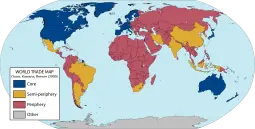
Where can I get a periphery perspective on the imperial core?
I would be interested in an outside analysis. I feel like everyone here is absolutely fucked in the head.
Are there like Chinese ethnographies of America? I wonder what revolutionaries fighting in India have to say about the imperial core. Shit like that.
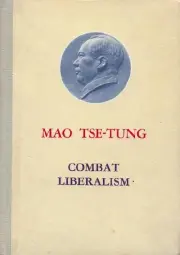
COMBAT LIBERALISM - MAO Zedong - 19370907
This resource also acts as a copypasta that is to be posted on threads created by liberals that espouse said ideology's talking points.Combat Liberalism by Mao Zedong
We stand for active ideological struggle because it is the weapon for ensuring unity within the Party and the revolutionary organizations in the interest of our fight. Every Communist and revolutionary should take up this weapon. But liberalism rejects ideological struggle and stands for unprincipled peace, thus giving rise to a decadent, Philistine attitude and bringing about political degeneration in certain units and individuals in the Party and the revolutionary organizations. Liberalism manifests itself in various ways:
> To let things slide for the sake of peace and friendship when a person has clearly gone wrong, and refrain from principled argument because he is an old acquaintance, a fellow townsman, a schoolmate, a close friend, a loved one, an old colleague or old subordinate. Or to touch on the matter lightly instead of going into it thoroughly, so as to keep on good terms. The result is that both the organization and the individual are harmed. This is one type of liberalism.
> To indulge in irresponsible criticism in private instead of actively putting forward one's suggestions to the organization. To say nothing to people to their faces but to gossip behind their backs, or to say nothing at a meeting but to gossip afterwards. To show no regard at all for the principles of collective life but to follow one's own inclination. This is a second type.
> To let things drift if they do not affect one personally; to say as little as possible while knowing perfectly well what is wrong, to be worldly wise and play safe and seek only to avoid blame. This is a third type.
> Not to obey orders but to give pride of place to one's own opinions. To demand special consideration from the organization but to reject its discipline. This is a fourth type.
> To indulge in personal attacks, pick quarrels, vent personal spite or seek revenge instead of entering into an argument and struggling against incorrect views for the sake of unity or progress or getting the work done properly. This is a fifth type.
> To hear incorrect views without rebutting them and even to hear counter-revolutionary remarks without reporting them, but instead to take them calmly as if nothing had happened. This is a sixth type.
> To be among the masses and fail to conduct propaganda and agitation or speak at meetings or conduct investigations and inquiries among them, and instead to be indifferent to them and show no concern for their well-being, forgetting that one is a Communist and behaving as if one were an ordinary non-Communist. This is a seventh type.
> To see someone harming the interests of the masses and yet not feel indignant, or dissuade or stop him or reason with him, but to allow him to continue. This is an eighth type.
> To work half-heartedly without a definite plan or direction; to work perfunctorily and muddle along–"So long as one remains a monk, one goes on tolling the bell." This is a ninth type.
> To regard oneself as having rendered great service to the revolution, to pride oneself on being a veteran, to disdain minor assignments while being quite unequal to major tasks, to be slipshod in work and slack in study. This is a tenth type.
> To be aware of one's own mistakes and yet make no attempt to correct them, taking a liberal attitude towards oneself. This is an eleventh type.
We could name more. But these eleven are the principal types. They are all manifestations of liberalism. Liberalism is extremely harmful in a revolutionary collective. It is a corrosive which eats away unity, undermines cohesion, causes apathy and creates dissension. It robs the revolutionary ranks of compact organization and strict discipline, prevents policies from being carried through and alienates the Party organizations from the masses which the Party leads. It is an extremely bad tendency. Liberalism stems from petty-bourgeois selfishness, it places personal interests first and the interests of the revolution second, and this gives rise to ideological, political and organizational liberalism. People who are liberals look upon the principles of Marxism as abstract dogma. They approve of Marxism, but are not prepared to practice it or to practice it in full; they are not prepared to replace their liberalism by Marxism. These people have their Marxism, but they have their liberalism as well–they talk Marxism but practice liberalism; they apply Marxism to others but liberalism to themselves. They keep both kinds of goods in stock and find a use for each. This is how the minds of certain people work.
Liberalism is a manifestation of opportunism and conflicts fundamentally with Marxism. It is negative and objectively has the effect of helping the enemy; that is why the enemy welcomes its preservation in our midst. Such being its nature, there should be no place for it in the ranks of the revolution. We must use Marxism, which is positive in spirit, to overcome liberalism, which is negative. A Communist should have largeness of mind and he should be staunch and active, looking upon the interests of the revolution as his very life and subordinating his personal interests to those of the revolution; always and everywhere he should adhere to principle and wage a tireless struggle against all incorrect ideas and actions, so as to consolidate the collective life of the Party and strengthen the ties between the Party and the masses; he should be more concerned about the Party and the masses than about any private person, and more concerned about others than about himself. Only thus can he be considered a Communist. All loyal, honest, active and upright Communists must unite to oppose the liberal tendencies shown by certain people among us, and set them on the right path. This is one of the tasks on our ideological front.

Radicalizing the New Oppressed Masses
How do we educate and radicalize the downwardly trending PMC, the educated, the Wine-Moms, the Rural Lumpen-Proles, the population of the country. We are clearly heading towards revolutionary conditions. We can't miss the chance like the French did in May 68, or fail like the counter-culture did. How does it happen? Is there hope?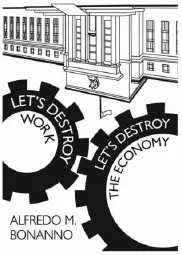
Idea for a study group on the philosophy/ontology of work
>Labour, by its very nature is unfree, unhuman, unsocial activity, determined by private property and creating private property. Hence the abolition of private property will become a reality only when it is conceived as the abolition of labour.>Karl Marx, Draft of an Article on Friedrich List’s book: Das Nationale System der Politischen Oekonomie, 1845
I’ve been thinking for a while about starting a study group on how the idea of labor has been reconstructed throughout the history of philosophy—once I’m done with my thesis. I’ve never actually organized one, and only joined one briefly before, but reading Bataille (my favorite degenerate and the focus of my thesis) got me thinking about trying a genealogical critique of labor. Plus, it gives me the perfect excuse to get back into some anarchist and communist texts I’ve been meaning to revisit for a while.
If you’ve got any tips on running study groups or know of any good readings on the topic, I’d really appreciate the suggestions.

Labor discipline in the communist system
Something I have never seen seriously discussed is reprimand when a laborer breaks some rule. Let’s take the example of absenteeism or repeated failure to follow safety rules (either those that protect the worker or those protect the consumer).On the anti-communist side, I see the standard criticism of forced labor, which doesn’t really answer my question. On the pro-communist side I just hear anecdotes that amount to “we won’t need that because personally I will never break safety rules!” which also doesn’t answer my question, but I love that for you.
So where can I find examples of these policies written out? Has no one thought about workplace misbehavior at all? It’s really difficult to find anything that discusses this.

Black History, Black Radicalism, and Pan-Africanism
It's February. Post and discuss works related to Afrika, Afrikan peoples, and the global diaspora.<You can't build a revolution with no education. Jomo Kenyatta did this in Africa, and because the people were not educated, he became as much an oppressor as the people he overthrew.
<Fred Hampton

Evangelism; Radical Christianity/Liberation Theology
I think whether you're religious or not Christianity has plenty of universal values that could be applied to your life. God had plenty of reasonable things to say about how to be a good person. Be kind, be honest, don't kill, don't steal, be friendly, that kind of stuff. I think whether you choose to be a Christian or not, you should try to at least embody the more universal virtues that Christians hold as true. There's not quite agreement on the more controversial aspects of it, which I know are why some people leave the church. I personally am not a fundamentalist or biblical literalist. Though I know that most Christians have good intentions in mind, regardless of how strictly they adhere to the text. I see the Bible as more of a guide rather than an absolute truth, and I think you should too if you don't.In serving Christ, there's ups and downs to it. Sometimes you'll fail, because we humans are sinful in our nature. I know I have done that a lot, I regret it, and I will try to repent. But, if you trust in the Lord, and demonstrate your faith, you can have salvation. Just remember that its all about Jesus, and that everything in life should be secondary to that.
Being a Christian is a calming experience in some way. It is knowing that no matter what, there's always a god watching over you. He is many things, including love, but above all else, He is holy. Its reassuring to know whatever direction the world is going in, whatever geopolitical issues or issues in your personal life are happening, that Jesus will always be with you. That when your life comes to an end, if you have faith, you will be able to spend eternity with Him. But do not focus on yourself, focus on Jesus, because he and his heavenly kingdom is in who we trust.
Christianity is compatible with a leftwing worldview, it just needs to be tempered to remember what is most important as a Christian, Jesus, and serving him. In Latin America, I think that there's this thing called Liberation Theology which is a combination of a worldview of Christianity and Leftism. That's what I wanted to mention.

Serious question:
Why do adults always say that newer generations are less literate when kids nowadays read and type more text than any other era?
Also, most adults are incapable of remembering let alone appreciating any academic material and they're not held in contempt for it. Yet kids are morally burdened with the task of academic fulfillment.
We are living in an age where young people spend more time in school than every before. Compulsory laws and extensive additions to curriculum make every youngster a student.
Yet schoolteachers are unappreciative of this.
Meanwhile, we are seeing less industrial and social skills present in the prime age population.

What is science?
Following from>>24081
So, how do we go about defining science, and what good is "science"? The key break for modernity for me was the German idealists putting a stopper in genuine science and inquiry and insisting that science was something entirely alien to what it had been.
The chief purpose of the scientific endeavor is not to attain "absolute knowledge" but to eliminate enough of the known wrong paths to arrive at the least-wrong, which for our purposes is as close to the truth as the scientific approach is capable of. Science has no particular necessary philosophy or existential claims to be "science", but metaphysical and philosophical claims are necessary to establish the models that communicate any scientific inquiry, and two scientists can talk past each other by entering into an intractable metaphysical argument. The point of science is that there is a claim between the participants that there is a world outside of us or any conceit about it, and this is the only way there can be such things as facts. It is possible for the scientist to render the metaphysical and philosophical positions of any claim in language that is compatible with some other metaphysical framework, and so there is no singular metaphysics that has to be accepted for something to be "science". The only requirement is that everyone agrees that they are referring to the same world that is the only meaningful subject of inquiry.
It's stupefying to me how this is missed, and "science" has been commandeered by the most imperious statements and decrees, recited as dogma and a presumptive monopooly. I really wish people would stop doing this or encouraging this, without saying "science is the problem". No shit, science can be conducted badly. Humanity's scientific endeavor, all taken together, is not replicated by any other area of human activity. If someone produces obviously wrong results, the entire purpose of the scientific discourse is to eliminate those who are obviously malicious actors like the German idealists.

Would anyone be interested in going through Hegel's Phenomenology of Spirit together?
The way that we would do it is choose a date every week and then get into a voice chat together and have one member read through a portion of PoS followed by something like Kalkavage's Logic of Desire (or Hegel's ladder) and then talk about it together. We'd have a reading session every week until we finish the book. Everything would be contained within the session.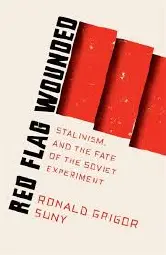
Opinions on Ronald Grigor Suny's Soviet histories?
Title. Have been reading into Soviet history for a while now and have recently came across his works. Halfway through both his overaching Soviet works and have thought them brilliant thus far in their fairness toward all parties involved in the experiment.Can anyone offer any further laudations and/or criticisms? It's far too monumental of a task to verify it all alone, though from what I've seen it's mostly accurate.

Services and exploitation
Still somewhat new to this but… How does labor value exploitation works with the service industry ?I would say obviously someone like and hairdresser or a bank employee is exploited even tho none of them are litteraly tied to a mean of production, but what about say…. a lawyer ? Or a social worker ?
Social workers works for the state so i suppose it can still counts as exploitation, but what about lawyers or any other job in which you dont so much have a boss, i know theres some more services that work with people only having "collaborators" with whom they would technically work on an equal standing with.

How to recognize irony and disguise?
I remember when I first came here, many people questioned my identity, thinking that I was not a real Chinese. At first, I was a bit annoyed, but later I felt that being cautious is normal. In today's chaotic and disordered internet, there are many people who disguise their identities.>Posing as a 49-year-old teacher and “Z poet” named Gennady Rakitin and using an AI-generated profile picture, a group of activists began posting Russian translations of poems by Nazi writers on the VK social network as an experiment in summer 2023, Zakharov said.
>Replacing the original poems’ references to Germany and Nazi soldiers with mention of Russia and Wagner Group fighters, those behind the Rakitin character aimed to highlight the absurdity of Russian government notions of patriotism in what Zakharov called a “work of conceptual anti-war art”.
>By the time of Zakharov’s post revealing the true nature of the poems, over 2,200 people had become “friends” with Rakitin on VK, including former Roscosmos space agency head Dmitry Rogozin, senator Andrey Klishas and presidential culture advisor Yelena Yampolskaya.
https://novayagazeta.eu/articles/2024/06/29/over-100-russian-officials-fall-for-nazi-poetry-prank-pulled-by-anti-war-activists-en-news
I have used VK, and through my account left on VK, I quickly found his account:
https://vk.com/rakitin75
Actually, on VK, as long as you're willing to send friend requests, getting thousands of friends isn't hard. I think they must have specifically sent friend requests to Russian officials.
I can tell that some people here who claim to be from non-English speaking countries are fake because even in the higher trafficked /pol/, you rarely see people from those regions. As for me, I have visited many websites, and appearing here is just a part of my many online journeys. However, I have not spoken much on many other websites because my energy does not allow it. Of course, I also cannot say 'Hello, I am Chinese' on some anti-China forums.
I still believe we should remain cautious towards individuals claiming certain identities or origins unless they can provide clear evidence. If they can't, we shouldn't trust them easily. I think that after surfing the internet for so long, you should be able to use some internet slang to determine where someone is actually from, especially if they are a young person who likes to talk a lot and should be familiar with internet culture. For example, a sentence filled with puns and the latest popular memes can often expose many who claim to be foreigners from the US, particularly in subcultures and political communities where memes and disguises are prevalent. These are things that AI and search engines can't teach. You should also use things that only locals would understand but rarely appear online, such as experiences with education and exams, local IDs, etc. However, I'm not very sure how to judge someone claiming to be from a certain industry since I'm not from that industry myself. I can usually understand political satire in my native language. If an account is intentionally trying to deceive people, it either has a small amount of traffic or, if the traffic increases, it will have its suspicious points noticed by people from various parts of the internet.The Russian news account previously had not much traffic, but the last post, which revealed its true nature, gained a lot of traffic.
>2023 年夏天,一群活动分子开始在 VK 社交网络上发布纳粹作家诗歌的俄语翻译,作为一项实验。他们假扮为 49 岁的教师和“Z 诗人”根纳迪·拉基京 (Gennady Rakitin),并使用人工智能生成的个人资料图片。
>创作者用拉基京这一角色取代了原诗中对德国和纳粹士兵的提及,转而提及俄罗斯和瓦格纳集团的战士,旨在强调俄罗斯政府爱国主义观念的荒谬性,扎哈罗夫称其为“概念性反战艺术作品”。
>截至扎哈罗夫发帖揭露这些诗歌的真面目时,VK 上已有超过 2,200 人与拉基京成为“好友”,其中包括前俄罗斯航天局局长德米特里·罗戈津、参议员安德烈·克利沙斯和总统文化顾问叶列娜·亚姆波尔斯卡娅。
原文来自https://novayagazeta.eu/articles/2024/06/29/over-100-russian-officials-fall-for-nazi-poetry-prank-pulled-by-anti-war-activists-en-news
我使用过vk,通过我留在vk上的账号我很快找到了他的账号
https://vk.com/rakitin75
其实vk上只要你肯发好友请求那么几千的好友不是难事,我想他们是应该特意去向俄罗斯官员发送好友请求的。
我记得一开始来这里的时候很多人都对我的身份提出了质疑,认为我不是一个真正的中国人,一开始我有些恼火后来我觉得保持警惕是正常的。在当今混乱无序的互联网里,伪装身份的人大有人在。
我能判断出这里一些仿照我声称来自非英语国家的人是伪装的,因为即使在流量较大的/pol/里都不曾见到这些地区的人。至于我是一个访问过很多网站的人,出现在这里是我许多网络旅程的一个插曲,不过我没在很多其它网站发过言,我的精力不允许这样,当然我也不能在一些反华的论坛说“你好我是一个中国人”。
我依然认为我们要对一些声称是什么什么身份来自哪里哪里的人保持一种谨慎态度,如果来者拿不出什么明确的证据就不要轻易相信(我认为在网络冲浪了那么久你们应该会使用一些网络用语判断他到底来不来自哪里,特别是他是一个喜欢侃侃而谈的理应懂得网络流行文化的年轻人,我想一个夹带大量谐音和最新流行梗的句子就能识破许多声称自己来自美国的外国人,特别是在梗和喜欢伪装的人盛行的亚文化与政治社区,这些东西是ai和搜索教不会的,当然也应该使用一些自己作为本地人都懂但是网络上很少出现的东西,比如教育生涯必须经历的学业和考试、本地护照等。不过我不怎么清楚怎么判断声称自己来自某某行业的人,毕竟我也不是该行业的人;属于母语的来自政治上的反讽我一般都看得懂。如果一个存心想骗人的账号它要么流量小,要么流量大起来露出马脚,新闻的俄罗斯账号之前的流量其实不大,只是最后一条亮出实质的发言收获了很多流量)

Gramsci
What should i read before tackling Gramsci? Gramsci seems to me a monumental figure whom i must read if I were to understand the world a little better. For these reasons I don't want to rush it. What are the works I need to read before him, and what book of his should i start with?
crossroads of life: recommend books
Im at crossroads between joining - or applying for- a catholic seminary, OR, becoming a (non-militant, but firmly (non?) believing Atheist) . It may sound extreme or stupid but consider this: IF God exists, he exists absolutely and all his attributes are true (remember im working within a catholic framework), this means hell is absolutely true, as is heaven; as I genuinely dislike sex, I won't get married ever–why not go full the mile and be a priest? or at least Brother, Canon,etc? seems rational.OTOH if Atheism is true ,and I eventually find out in the future, I would-have wasted decades of my life, so better to take on the strongest atheist arguments now, see if I can tank them -or not- and go from there.
tl;dr: Give the best books about Atheism, from scientific POV such as Darwinism, Cosmology, geological time; or philosophy and social sciences (history of Ideas, archeology, sociology and studies on mental health, or, even brain scan\ neurology\ biological clinical science about belief)
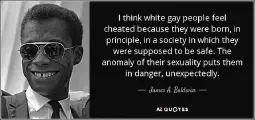
Theory on the declassed of the imperial core?
My analysis of the imperial core.- Capitalist
- Comprador (tokens, social justice inactivists, plastic shamans, …)
- Labor Aristocracy (WASPs)
- Declassed (survivors of cultural genocide and white women, incarcerated, disabled, queer, certain immigrants, etc…)
- Working Class (the inherited working class, Indigenous, Black, etc…)
In my opinion, much of Communism consists of the labor aristocracy arguing with the declassed and comprador classes.
Is there any theory which discusses the declassed groups in more detail?
In my opinion, the declassed are an extremely confusing mix of reactionary and revolutionary sentiment. They are born into indoctrination with capitalist sentiment but do not benefit from this. Essentially, they are just really confused. It's not about oppression Olympics, just whether you were likely to hear that the Black Panthers were based growing up.
The Black Panthers discussed the white declassed a little but failed to go into detail. What is important is that the leading fringe of the white declassed will always be the disabled, transsexuals, queers, women and so on.
What role can these semi-revolutionary groups play? Historically, the declassed have often fallen into the control of full reaction, into the sway of comprador inactivists or the labor aristocracy.

Histories on why certain instances of decolonisation were more violent than others?
Title. Answers to this question are also cool- have read Fanon in preparation for multiple essays on the topic and want to back it up with historical context. Obviously preferably dialectically materialist histories recently published. Africa preferred.
/Eco/ology General
General thread for all things related to the field of Ecology, a subfield of Biology that focuses on studying ecosystems. Not sure what else to stay to start the new thread other than may you have biodiverse and healthy ecosystem wherever you may stay at and here is this cool paper I read and a question:>Cool Paper: Comparison of the Assemblages of Sap-Feeding Insects (Homoptera-Hemiptera) Inhabiting Two Structurally Different Salt Marsh Grasses in the Genus Spartina
Abstract: The vegetation of New Jersey tidal salt marshes is composed primarily of 2 grasses; Spartina patens , which occupies a narrow elevational zone of high marsh and Spartina alterniflora , an intertidal species. S. patens forms a dense, persistent, thatch, while S. alterniflora produces only a loose lattice of litter which rapidly decomposes.
A comparison between the guilds of sap-feeding insects (for the most part, Delphacidae, Cicadellidae, Issidae, and Miridae) inhabiting these grasses reveals S. patens housing a much more diverse assemblage of herbivores than S. alterniflora. S. alterniflora -inhabiting species are exclusively bi- or trivoltine, while on S. patens , sap-feeders possess a greater variety of life history types and show a specialized trend toward univoltinism.
Removal of only the dead thatch portion of S. patens results in reduced species diversity and evenness of sap-feeders on the living grass system. Trivoltine species, which normally inhabit the upper strata of S. patens , increase their populations on dethatched grass compared to the unaltered grass system.
Both empirical and experimental evidence suggests that the complex microstructure and thatch of S. patens provide a more heterogeneous and protective resource which supports a more diverse and specialized fauna of sap-feeders than S. alterniflora
>tldr: Salt marshes have low elevated sections that recieve more flooding dominated by S. alterniflora and high elevated sections dominated by S. patens. An important group of herbivores within the whole salt marsh are Sap feeding planthoppers and it turns out the areas of High marsh with dense stands of S. patens that form thatch having the greatest species richness of plant hoppers. Not only were there more species but many univoltine(only one generation at a specific time of year) specialists were restricted to this microhabitat. Another thing I enjoy about this paper is that even though delphacid planthoppers ended up being the focus many other members of the sap-sucker insect herbivore feeding guild that are present in the Salt Marsh are still briefly mentioned.
<The Question: What is the local ecology around you like Anon? I for one am in a temperate(Humid Subtropical to be exact) coastal plain area with a fuckton of fresh and salt water wetlands but also many areas of ruderal ecosystems due to urban sprawl and the ensuing neglect of said sprawl.

Imperialism in the 21st Century, Harvey vs Smith, commodity chain, etc...
My reading group at uni is reading Imperialism in the 21st Century by John Smith. Is my diagram that i quickly drew up a good supplement for it? Is constant capital attributed to GDP? I would assume when analyzing a commodity's exchange value it doesn't but when we look at the actual commodities, raw materials, etc that make up constant capital it would already have been factored into GDP. Therefor there would be no need to factor in constant capital again… Also I know how much shit flinging occurs on here about value created through labor in the west being "more productive," so more value is created than "unproductive third world labor" vs the inverse of that position; the length of the values in the diagram is arbitrary and constrained for space reasons, not because i think one way or another; but feel free to argue ig. I mean, has anyone read the polemics of Harvey and Smith? They are sassy as fuck and hilarious. Disappointing though to see Harvey to take such a vague and stance on modern imperialism, as well as the dissavowment of China by Smith because of alleged "Stalinism" (lol). I'll link the first video and four polemics they directed at eachother:https://www.youtube.com/watch?v=nRvcGP1ALvI
https://mronline.org/2017/08/26/a-critique-of-david-harveys-analysis-of-imperialism/
https://roape.net/2018/01/10/david-harvey-denies-imperialism/
https://roape.net/2018/02/05/realities-ground-david-harvey-replies-john-smith/
https://roape.net/2018/03/19/imperialist-realities-vs-the-myths-of-david-harvey/
I also linked these for my reading group as additional data:
https://monthlyreview.org/2019/03/01/global-commodity-chains-and-the-new-imperialism/
https://www.nature.com/articles/s41467-024-49687-y
https://www.sciencedirect.com/science/article/pii/S095937802200005X?via%3Dihub
Secondly, and more broadly, is the view of stock market bubbles forming due to speculation and the discontinuity between stock price and actual value an accurate assessment? Because of massive price gauging and speculation for textiles, garments, tech, housing, coffee, etc it seems to me like a large portion of many western economies or at least the US economy is sitting on a large bubble across almost all industries, and i've heard talks of an oncoming economic disaster from people of all flavors. Could mass tariffs and import restrictions on the global commodity chain bring about the popping of these bubbles?

Walden Two is the worst book I've ever had the displeasure of reading
This utopian garbage by P.F Skinner (Yes, THAT Skinner, for whom the Skinner Box is named after) has no right to be called a socialist novel and anyone who says it is is delusional.For starters, the book is objectively terrible from a literary standpoint (like most Utopian novels honestly, it's a shit genre). Every chapter is dedicated to some aspect of the Walden Two "Utopia" and consists of Frazier, P.F Skinner's self insert character in the novel, explaining why Walden Two is so epic and based and wonderful in X aspect to bland and unoriginal to a small cast of forgettable characters visiting Walden Two for no reason other than to be ranted at by Frazier apparently.
Walden Two's "Utopia" is ran by a professional caste of Planners (unelected, naturally, not even held in check by a Party of any kind) set apart from the usual workers who run and plan everything and use Radical Behaviorism (essentially mind control through selected use of pleasure and pain) to alter the needs, wants, and desires of its citizens to conform better to society's needs. It's funny how the book is structured to make this seem like a good thing. Many chapters go to great lengths to explain why Walden Two is a haven for art, culture, shorter working hours, better working conditions, etc, in order to justify this behavioral altering. The chapter on education shows hungry children made to sit in front of food for hours at a time without eating it in order to build "patience". One can only imagine the child abuse going on behind the scenes to make this sort of lunacy possible. Walden Two is the sort of book that is in favor of beating your children.
Towards the end of the book it's revealed that Frazier is a complete egomaniac who personally runs and plans much of Walden Two (But um, actualleh that's totally OK b/c Walden Two has a 4 hour work week!!!!). He compares himself to Jesus Christ and his fellow Planners as his disciples.
Walden Two takes the liberal argument "hurr durr, muh human nature means ppl too greedy for socialist utopia" and responds with "You're correct, people are greedy and evil! Let's MIND CONTROL people into being selfless!" instead of refuting the initial argument as liberal bullshit.
All attempts at implementing Walden Two IRL are either hippie communes that have long since abandoned Skinner's philosophy (as they should) or dystopian torture nightmares that take Frazier's egomania in the original novel to the extreme. The most notable modern-day Walden Two inspired project is the Judge Rotenburg Center founded by Matthew Israel (https://en.wikipedia.org/wiki/Matthew_Israel) which tortures autistic children with their patented Graduated Electronic Decelerator whenever they act out (or scream in pain when being shocked, or fail to reply when greeted, or break some other minor rule). This Matthew Israel guy studied Behaviorism under P.F Skinner, read & loved Walden Two as his favorite novel, and literally has a Disney Villain backstory where he realized he can control people through pain and founds a school to continue doing just that.
The reason that Walden Two utopianism never had a significant conservative backlash during the Cold War is that it specifically appealed to middle-upper class professionals with its Technocratic elements, selling them the idea of being Planners in a new society where they are given the power to torture and alter the minds of Proletarians underneath them to serve their agenda.
Worst book ever 0/10 do not recommend. Read it if you are a Technocrat Fascist who wants to torture proletarians and want a professional caste to be intentionally put above said proletarians.
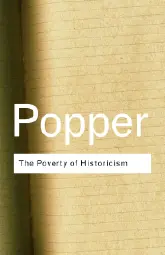
The Poverty of Historicism
I read The Poverty of Historicism by Karl Popper recently, and it was an interesting book. The overally thesis is that unified theories of history and don't make sense, and that it's impossible for us to reliably guess the direction society will take in the future.This obviously flies in the face of historical materialism, which is a pretty key part of Marxist theory. So I'm interested to hear what you guys have to say about it. Is he right? Or is there something he missed?

Why Alisa Rosenbaum (((Ayn Rand))) in any their created novels fuck with different people for free?
She are commie?
The body was too short or empty.The body was too short or empty.The body was too short or empty.The body was too short or empty.The body was too short or empty.The body was too short or empty.The body was too short or empty.

What are the best books on domestic imperialism? I suppose I'd be most interested in the struggle of the Black nation and the Indigenous nations in Anglo-America.
I've read the basics of Lenin's "Imperialism: The Highest Stage of Capitalism" and I'm in the process of reading Kwame Nkrumah's "Neo-Colonialism: The Last Stage of Imperialism". I've read a few writings of the Black Panthers.
I think I probably want to read "Golden Gulag" next.

Why didn't the Arabs ever build castles?
I recently came across a heritage post about a castle in Lebanon built by the Crusaders, It got me curios and I did some digging and I was surprised to learn that pretty much all castles in the MENA countries were either built by the Crusaders or the later Ottomans.So I have to ask, what gives? The Arabs were a smart people and castles and fortresses are a fairly useful resource for defeating cavalry forces. Even outside large scale war sand politics, in small petty tribal warfare, they would have been incredibly useful, that's why they appeared so much in Europe and why did the Ottomans adopt them more thoroughly then the Arabs.

Parasites are the most common form of life on Earth. Scientists believe that over 80% of all living
Modern parasitologists recognize that they have not found all human parasites. They estimate that hundreds if not thousands of human parasites will be found in the coming years.The most deadly human parasites besides top-ranking corporate executives are protozoa, which are single-celled organisms. Some of these tiny creatures (there are over 80,000) have brought humans more misery and death than anything else in history(again, besides CEOs), including wars and famine. The most well known deadly parasitic protozoa is plasmodium, which causes malaria.
Parasites are separated into four main groups: 1) protozoa, which are tiny, one-celled organisms; 2) helminths, or worm parasites, such as tapeworms and pinworms; 3) arthropods, which aren’t parasites themselves, but these insects and spiders are common hosts of parasitic diseases; and 4) top-ranking corporate executives.
Most parasitic infections happen in warm climates or capitalistic societies, such as tropic or subtropic regions or the US healthcare system.

rice instead of wheat
"About 69 percent of married Asian women are married to Asian men, while 25 percent of married Asian women have white husbands. "But as common as marriages are between Asian women and white men, cohabitations are even more prevalent," says Ono. "In fact, Asian women are more likely to be living with white men than with Asian men. Nearly 45 percent of cohabiting Asian women have white partners, while less than 43 percent have Asian partners."
materialist analysis of inceldom
A materialist analysis of inceldomIt is a well known fact that young males are having less romantic and sexual relationships than ever. Many on the right blame this on feminism which is half true but not the whole truth. The fact is that inceldom is a natural result of late capitalism.
In previous generations these men would have likely graduated (or even dropped out) of high school and gone into a unionized factory or other blue collar job, and made a high enough paycheck to pay for a house and support and spouse that likely didn't work. I tend to think of this documentary: https://www.youtube.com/watch?v=7AAUcmyXbg4 called two american families, which follows two blue collar families one black and one white in the midwest as they live through the deindustrialization of the late 20th/early 21st century and how it kindof destroys them. Not just singleness, but divorce, the breakup of families increased dramatically in this period, and while rightoids are half right to blame "feminism" what they don't realize is that capitalism and increased social liberalization are inherently linked.
In many cultures, especially in the past, marriage wasn't about love so much as duty and obligation to family, ethnic group, god(s), country, etc. Now it is about "enriching the already rich lives" of the people involved. If a market based economy goes on long enough people stop thinking of themselves as members of historically rooted and grounded ethno-religious communities and instead begin to think of themselves as CEOs of a corporation of one.
Capital is a totalizing force which commodifies everything it possibly can, and conservatives who think they can somehow draw a line in the sand at human sexuality and sexual relationships are mistaken. It's too late for that. The demonic entity known as capital has already been summoned, and it can't be controlled. Capitalism will eventually turn all social relations into market relations, making most human relations transactional, and this is the predictable result. In the past a guy would take a girl on a date, and pay for her dinner. Now the girl posts a nude photo on onlyfans which the guy pays for and masturbates over, and the girl uses the money to buy her own dinner on uber eats. What was previously an authentic human relationship has now been intermediated by the market and commodified.
This is on top of the fact that high housing prices (also a a result of late capitalist society) prevents young people from engaging in sexual intercourse for the very simple fact that it's difficult to bring a date over when you live with your parents. And those high housing prices are also the result of commodifying housing and making it a speculative asset inflating the price.
The only way to end inceldom is to establish a form of political economy more conducive to human flourishing. In other words, the only way to decommodify human sexuality is to decommodify everything in general i.e. end capitalism.

Telegony
Do you believe in telegony?If it's only on an epigenetic level, I'm kind of fine with it. As I am with the proven microchimerism through pregnancy. But the thought of microchimerisms potentially occurring as consequence of unprotected vaginal sex alone makes me depressed. Though if I had to guess I'd say only the former two cases are likely to be real.
there's a slim chance that there's some unknown mechanism for the process but the only evidence for that would be circumstantial
>lots of hunter-gatherers believe in it and they know a thing or two about fucking
>scientific institutions are vaguely aligned with societal pressures that went as few pressures on women as possible
>biological knowledge is incomplete
I wouldn't worry about it but I wouldn't be surprised if it were something. If it exists it's probably very minor
If true how do we use it to our advantage?
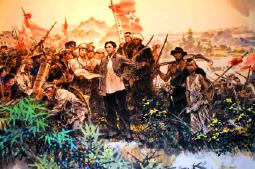
Revolution and State
What are the best books on Russian, Chinese and the failed German Revolution and East Germany.Books about other communist revolutions and state establishments are also welcome.
I want to know everything that happened before and after those events occurred
I want to know how the conditions and reasons for revolution happened in the first place
I want to know what happened during the civil wars
I want to know what happened after they won or lost
I want to know what were the mistakes they made
Don't care how many books to get a full understanding but as long as they're credible and good it's fine by me. I prefer PDFs.

How do I learn a subject in-depth without attending college?
I've seen that online courses are a thing but I don't think I could handle that with my autism, plus they seem to cost a fair amount of money most of the timeAny tips?
So what if its hard? Nothing worth having comes easy.
I feel like it'd be a bit hard to structure my studies without guidance though.

Reading Samir Amin
https://monthlyreview.org/author/samiramin/Other links to his work most welcome.
https://monthlyreview.org/2018/10/01/the-communist-manifesto-170-years-later/
>There is no other text written in the mid-nineteenth century that has held up as well as the Communist Manifesto of 1848 by Karl Marx and Frederick Engels. Even today, entire paragraphs of the text correspond to contemporary reality better than they did to that of 1848. Starting from premises that were hardly visible in their era, Marx and Engels drew the conclusions that the developments of 170 years of history fully verified.
Last article he wrote, there seems to be a pattern of old theorists turning to the Manifesto. Comrade Xi also emphasises its depth.

>They are effectively interchangeable terms since the vast majority of the time you see Perennialism in use it is by a Guenonian Perennialist. The basic idea that all the world's religions are manifestations of the same truth is at least as old as the Renaissance and crops up in the modern day in contexts that have nothing to do with occult fascists though obviously. Huxley would be an example of that.
>But for Guenonian Perennialists, and Nasr is one, it is as far as I know literally all of them besides Wilson. Not all of them very focused on politics, in fact that tends to be the exception rather than the norm. Evola and Dugin are the two big examples of it and Dugin's Guenonianism has always been a bit reserved and mixed with other influences. He was into stuff like Thelema and chaos magic before he got into Guenon and has written critiques of Guenon. When these people do mention politics in passing though it is always in an incredibly reactionary way where they are condemning liberal modernity as an inversion of some pristine traditional (in this perennial occult sense) order. And obviously that carries a condemnation of any possible socialist modernity. Reaction is just inescapable in that view of history, if you see history as a continual degeneration from a lost golden age then you cannot also believe in successively progressive economic stages that are leading to Communism. Every step forward has to be a step downwards.
Gosh what a malicious post in the saged thread. This is surely worthy of a thread.

The beginnings of our new leftypol project
Hello everyone, we have received the results of our project proposal topic, and I'm delighted to announce that we are teaming up with 'leftypedia' to deliver our planned 'argument/talking point resource' idea. In case you don't know, leftypedia is the current version of the old abandoned 'marxistpedia' which was a project started by leftypol users back in the day, so I think this is sort of like a homecoming in a way.https://leftypedia.org/wiki/Main_Page
Anyway, if you have a look at the leftypedia site you might be able to tell that they have a much more formal and 'encyclopedic' tone than what we're planning, just like wikipedia, but the admin is going to create a separate 'category' for our new content that will be called something like 'rhetoric: topic' rather than just 'topic', this will also feature on the frontpage much like the encyclopedic content. As a tenplate, I'd like you to feast your eyes on these pages which someone on leftypedia already made (albeit only on their personal userspace for now).
https://leftypedia.org/wiki/User:Anarcho-Bolshevik/compendium
I'd like to ask if anyone can come up with a slightly more catchy name for our new section than 'rhetoric', cause that sounds a bit cumbersome to me even though I came up with it, so yeah, open to suggestions.
So, since that isn't implemented yet, I'd like you all to try familiarise yourselves with the site for now, maybe take a look at the articles that are already there and improve some of them if you feel able. Unfortunately the site currently has only edit by approval so you will have to wait for any changes you make to be approved, this is because of a persistent spambot problem and I hope that we will be able to work out something to change this to normal editing as on wikipedia and the like, please just bear with it for now.
If you have an answer to a 'common question', or you have an effortpost you'd like to archive and save, then please post it in this topic for now so that we can work on it together until we can figure out how to categorise our new section of the site.
Thanks for your attention!
EDIT: I've now got admin permissions on leftypedia, so I can create pages and approve edits directly. If you want to use the site I recommend you create a user account, which I can then approve once you make a productive edit (to distinguish from spambots), then you won't have to wait for approval anymore and can create articles yourself. Or, just ask me and I can create an article for you if you're desperate to make one as your first edit. Thanks guys, I hope we can make this project cool together!
t. Caballo

Christians, you are retarded. every last one, without exception.
You don’t like it? Too fucking bad.Your acceptance of your beliefs means that you are being retarded, and there’s no way around it. Fuck you, you fucking retards. I’m sick of pretending your idiotic “arguments” are even remotely sensible. You’re a fucking retard, eating retarded shit and calling it ice cream.
The Christian generally believes that there is life after death. This, in light of what we currently know of neuroscience and how the brain works, and doesn’t work when it is damaged, is, no mincing words here, plainly retarded. If you believe in life after death, sorry, — er, no, not sorry — you’re fucking retarded.
The Christian generally believes that faith is a good idea, that believing things for no reason — just because — is a good idea. The Christian generally believes that being more certain of their beliefs than the evidence warrants, is somehow a virtue. The Christian generally is trained to believe that everyone uses faith, and that to point out that others use faith somehow justifies their own use of faith — the words “tu quoque” have no meaning to the average Christian.
The Christian generally believes, in my experience, that an appeal to consequences is a valid way of making an argument. The Christian typically believes that if it can be shown (or, more commonly, if it can be made to appear that it is shown) that belief in Christianity leads to some benefit, or that lack of belief leads to some undesirable consequence, that this justifies belief. This is retarded. If you can’t figure out why, it’s because you’re retarded. Hint: google “appeal to consequences,” you big retard.
Christians generally believe that Jesus was God, after he magically impregnated a virgin, and then emerged from her vagina nine months later, disappeared for 30 years, then turned up as the messiah. The evidence for this? A book which says so. What? Nothing more? No, that’s it, just a book. Are you fucking kidding me? Only a book? Nope, not kidding. They’re that fucking retarded.
Christians often accept the “lord, liar or lunatic” argument as convincing. Gee, David Koresh was either Lord, Liar, or Lunatic. Umm, I’m going to say, Lunatic. Jesus was either Lord, Liar, or Lunatic. Umm, I’m going to say, Lunatic. People who don’t think Jesus was a lunatic don’t know much about lunatics. There’s a word for such people: Retards.
The story of Christianity is just plain stupid. If you believe it, you’re a retard. Period. You have no arguments for your position which are not retarded. If there were non-retarded arguments for Christianity, they would have emerged in the last 2000 years. Every argument I’ve seen for Christianity does not only fail to be a good argument, they all fail to be remotely non-retarded. From this, I conclude that there do not exist any non-retarded arguments for Christianity, as, if there were such arguments, Christians would be all over them like white on rice. Yet, Christians persist in putting forth the most idiotic arguments for their religion in the history of arguments, and cannot come up with even a single non-retarded argument for their religion. I conclude that no non-retarded arguments for Christianity exist, and that every Christian has either retardedly accepted a retarded argument, or has been brainwashed into accepting Christianity as a child (and children are basically retarded.)
So…, Fuck you, retards. Your religion is retarded, and you’ve had 2000 years to come up with non-retarded arguments and have utterly failed.
You’re retarded.
Sincerely

The degrees deal
Grad degrees are legit if you have a field with A LOT of information. The higher you go the more specific stuff you learn.The deal is that getting a BA is kind of exactly like high school. You take the same range of classes and don't focus on much. So, it's like a movie that starts an hour in.
Back in the 30s etc you could become a doctor in like four years, now it takes 12 and doctors don't know that much. I mean a general practitioner.
If a four year degree was specialized, you would not need a masters.
In psychology, they try to wear you out with all you must do. So, it's a money hustle and to keep people out.

>if you need a school, you've lost already
>if you need a school, you've lost already>if you need a school, you've lost already>if you need a school, you've lost already>if you need a school, you've lost already>if you need a school, you've lost already>if you need a school, you've lost already>if you need a school, you've lost already>if you need a school, you've lost already>if you need a school, you've lost already>if you need a school, you've lost already>if you need a school, you've lost already>if you need a school, you've lost already>if you need a school, you've lost already>if you need a school, you've lost already>if you need a school, you've lost already>if you need a school, you've lost already>if you need a school, you've lost already>if you need a school, you've lost already>if you need a school, you've lost already>if you need a school, you've lost already>if you need a school, you've lost already>if you need a school, you've lost already>if you need a school, you've lost already>if you need a school, you've lost already>if you need a school, you've lost already>if you need a school, you've lost already>if you need a school, you've lost already>if you need a school, you've lost already>if you need a school, you've lost already>if you need a school, you've lost already>if you need a school, you've lost already>if you need a school, you've lost already>if you need a school, you've lost already>if you need a school, you've lost already>if you need a school, you've lost already
/CDR/ - Child Development & Rearing
<Proletariat from Latin proletarius 'producing offspring'Please share any studies, cost savings approaches, sites, child psychology, useful media, and history for rearing future revolutionaries
Pregnancy studies, histories, sites, media and care are welcome
https://supermemo.guru/wiki/SuperMemo_Guru
A few pointers
>Children hear what you say not what you mean
>Corporal punishment breaks trust and creates antisocial tendencies
>Filter cartoons and most media for children, especially Disney
>Filter out sugar, corn syrup, and other similar substances
>Marketing is especially targeted at developing minds; limited to no exposure is ideal
>Neglect is a form of abuse
>No social media, no bigger brother
>Pet plants > pet animals. Otherwise the animal your responsibility
>Screen time has to be extremely limited or nonexistent; this creates poor eye sight and attention deficit disorders
>The vast majority of sexually abused children were by someone they knew
feel free to criticize and add your own

book/text rec
I am looking texts about military fashion/uniforms and their evolution throughout history, I am mostly interested in non modern uniforms, so preferably the texts should be about stuff before ww2.I am also interested in weapons production throughout history, so for example how weapons were produced during mediaeval times and how military industry and production has evolved.
The texts don’t have to directly relate to subjects or encompass exactly everything I mentioned. So please share texts relating to the subjects if you know any!

University is a pyramid scheme.
Now that they're running out of people to gyp the trickle down has completely stopped, and they're strangling the newcomers while giving nothing in return.You won't find a job. There's nothing to find. No salvation, no answers.
Accept it. Move on. Let yourself rest. Hope hurts you.

Military History & Strategy
Post any PDF here that you have pertaining to military history and strategy.Now some needless filler: As leftists we should also be educated on organizing in a militant fashion. Primarily to mobilize the working class so they are able to defend themselves against oppressive forces.

I am a recovering white nationalist. how can i fix myself?
Hello, i used to be a white nationalist. i don't want to be one anymore after my life went to shit when everyone found out. i was radicalized by the alt-right by my friends when they became nazis in early this year. i viewed their white nationalist rhetoric as correct. they stopped being my friend when they found out i was trans and gay, and i still held onto the white nationalist beliefs when we stopped being friends. i want to fully get rid of my white nationalism and become a leftist. i go by they/them pronouns btw.
Research on debate addiction
My Dad is spending a concerning amount of his time getting into internet arguements, and recently I warned him about getting addicted to debate, and he doesn't believe me that's a thing.I want to know the academia on this really hard to search engine search subject so next time I catch him being like this I can present him with credible sources about this.
I used to be a debate addict too and the only thing that pulled me out was just burning out on it. I don't wanna have to watch others go through that.

Gut Microbiome
AKA the second brain.I've been fighting gut problems for ~2 years now, which have been the worst years in my life.
I want to start a thread on this topic. Partly to vent, but also to share and exchange information on this topic.
I've tried trusting doctors but it's lead to long, arduous, and expensive treatment that lead to no positive results and only worse symptoms as they pumped me full of antibiotics and PPIs leading to further infection from opportunistic bacteria and fungi.
Of the protocols I've followed (that aren't from a doctor), I've tried:
>Super Gut (Dr. William Davis)
Which uses natural anti-biotics/fungals alongside cultured "yogurt" which is used to multiply the dose of probiotic colonizing bacteria
>Grow a New Body by Alberto Villoldo
He's a bullshit Shamanic healer but he cites studies on certain parts of the program.
The jist is a combination of lengthy fasts (20-22hrs), low carb diet for ketosis alongside culturing Saccharomyces Boulardii in Cider to make Hard Apple Cider with a significantly larger number of probiotic yeasts in order to combat Candida infestation.

critiques of society of the school system,
Most critiques of society mention the school system, and describe it as an authoritarian nightmare. I have to assume that people with this viewpoint are from older generations because I (born early 2000s) did not find school oppressive at all. The "education" I received was questionable but that's another matter.
The Black Book of capitalism Beta edition
After three months of labor, I present you the current state of the translation project of the french Black Book of Capitalism from 1998.The raw traduction is completed, the work is in the process of being proofread to enhance the general english level. So far two benevolent English speakers manifested their interest in this endeavour, one of them already corrected the Foreword and Introduction.
Gitea of the Black Book of Communism: https://git.leftypol.org/latexanon/bboc
If you download the whole deposit and run it trough a Tex editor, a whole book appears! Credits to LaTex Anon for this magic
This thread will be used as a hub to update the progressively the book with the proofreader's input, but also to sketch the specification of an enhanced edition of the BBOC, as well as gathering material in this regard, because after a few more decades of neoliberalism, some updates would be welcome. Furthermore as some people remarked, the book is far from exhaustive.

The Red Manifesto - Self Help Book Draft 2
Reformatted it so that it was easier to read and it looks more clean. Expanded on a few sections. Added some new sections, though some pages of them are yellow, to indicate its on the chopping block whether they will continue to be left. Created new cover. While cool looking, its kinda hard to see where the name is, so thats probably changing, but I thought a temp cover wouldn't hurt. I will say that those who are complaining it isn't funny, I didn't really focus on that, so it might again be eh. Give your insights on what you read. Give suggestions for any other topics that could be addressed.Thank you

University communists general
This is a thread for communists who are (or are planning to) study at [b]unnamed[/b] universities the world over.The thread is to serve as a mutual intellectual support system and meta-discussion for communist students to
· share resources for picking and learning your object of study
· discuss strategies for studies
· weekly rhythms and scheduling outside of the classroom
· organizing the student-body and/or spreading artistic agitation
· all while ultimately staying safe and completing your studies
✊🚩🏴

What is the consensus on the lumpenproletariat?
Are they the most revolutionary class, or are they reactionary? I think they are the most revolutionary because they are the most oppressed. In fact, I don't see how you can make a revolution without the lumpen.Especially in America, where the regular proletariat (labor aristocracy) has been fully bourgeoisified and proudly supports the imperialist bourgeoisie in everything they do.
Fuck jannies btw

veganism and materialism
Is VEGANISM a good thing?>A vegan diet is based on plants (such as vegetables, grains, nuts and fruits) and foods made from plants. Vegans do not eat foods that come from animals, including dairy products and eggs.
There is veganism for health reasons, for environmental reasons (meat production causes more carbon emissions than plants), and for ethical reasons (animal cruelty). IMO from a marxist perspective the environmental reasons are the most compelling since decarbonization will need to be planned and this probably will include a reduction in the production of animal products.
However veganism is also widely mocked and associated with liberal hipsters.
what is the proper materialist take on VEGANISM??

Wassup. I really want to learn about the politics and geography about most of the countries of the world, but idk how to study them. I'm from SA. What I mean is, I want to be able to say when a country have a corrupt government, when it's on any crisis and I also want to understand maps and knowing the nature of the politicians in that country. For example, I couldn't explain to someone why the Afeghanistan is bad for living except because of the Taliban. Do you guys have some tips for me?

Wassup. I really want to learn about the politics and geography about most of the countries of the world, but idk how to study them. I'm from SA. What I mean is, I want to be able to say when a country have a corrupt government, when it's on any crisis and I also want to understand maps and knowing the nature of the politicians in that country. For example, I couldn't explain to someone why the Afeghanistan is bad for living except because of the Taliban. Do you guys have some tips for me?

Post-Colonial African History
Where can I learn about "post-colonial" history of African countries? Preferably something in depth about the economy and also preferably by someone who isn't a neoliberal mouthpiece. Perhaps a Marxist even. Do you have any literature/author recommendations?
Ukraine
Thread dedicated to debunking western propaganda and information relating to the NATO encirclement of Russia, Ukrainian government's mistreatment of ethnic Russian minorities and support of fascist militias to do its bidding. Criticism of Russia and its occupation is welcomed aswell.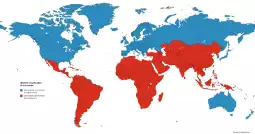
are there any books that explain why the non-western world (mainly africa) is in a less developed state? there is alot of talk about the great replacement theory. most western/white countries are turning more right wing primarly due to immigration. which obviously is a big issue. how can this be fixed?
Is there credence in less developed nations just being dumber? I just don't get it. Makes me feel bad tbh.
i'm bad at explaining my thoughts and am not an intellectual so question might be stupid.
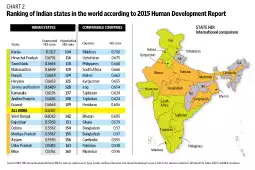
History and Socialism of India, Pakistan, Bangladesh, Bhutan, Myanmar, Nepal
Thread on the Indian Peninsula and Surrounding Areas Closely Tied to the CountryTo unite various Indian topics that cropped up: Post historical and modern geopolitical discussion, memes, photos and pdfs on the topic. Keep it civil and no bad faith dogma, spam or bait, keep that to /siberia/
Contribute to Leftypedia: https://leftypedia.org/wiki/India >>3780 thread
Articles on Britain, Pakistan and more needed.
Important Topics
>Pre-Colonial Indian History
Indian history that isn't just British colonialism. Muslims, Hindus and Sikhs warring over each other sounds way more exciting but you rarely hear anything about the era and the place. Recommend any books to easily get into the settings of the culture(s).
>Colonial India
History of British colonialism and it's exploitation and impact on the country(s). British humanitarian crimes such as the Black Hole of Calcutta are welcome to be posted.
>Modern India
Modern political, social and economic issues of India ranging from international conflict to internal turmoil. Environmental issues also welcome.
An Indian Dentist that does political writing on the state of the country and has soviet sympathies: http://bill-purkayastha.blogspot.com/
>Socialism in India
Leftist movements and areas of India and it's efforts to bring about socialism in the country and the 90s privatization and neo-liberalist arrival.
- A book from 1985 about the Indian Big Bourgeoisie: https://archive.org/details/IndianBigBourgeoisie/page/n5/mode/2up
- Kerala: https://en.wikipedia.org/wiki/Communism_in_Kerala
- Indian Maoist party links: https://bannedthought.net/India/CPI-Maoist-Docs/index.htm
https://foreignlanguages.press/colorful-classics/historic-eight-documents-charu-mazumdar/
https://foreignlanguages.press/colorful-classics/maoists-in-india-writings-interviews-azad/
https://www.redspark.nu/en/
MLM thread >>310

Racial Fears
How does capitalism, and its most retrograde right wing layers, even keep the idea about race in the public discourse to begin with? I don't think "race" is even really an apolitical and scientific concept to begin with, but if we take science as mediated through the superstructure, then something like race may be naturalised and justified through "genetics" and ancestry/genealogy databases.
Is yoga/buddhism reactionary?
I started being interested in eastern spirituality in general since i started training physical yoga last year. It changed my life i would say, i stopped feeling any physical discomfort caused by sedentary lifestyle and many times at the end practice, laying down on floor in "corpse pose" i felt something approaching a bliss, my mood also seems significantly lifted, i no longer give a fuck, even tho my material situation has not changed much.This in turn caused me to get interested in eastern philosophy itself, i started reading Yoga Sutras, translation by Swami Satchenada (most popular translation from sanskrit i think, this guy was pretty famous with american hippies back in 60s).
Many of Satchenada commentaries are pretty interesting, they are modern and straight-forward, for example there are explamples including driving cars or going to the mall, there are also fragments that made me ask, is this guy reactionary? Can i reconcile at all my marxist tendencies with my interest in eastern philosophy, or are those things contradictory? All i know there is some one movement that says "actually buddhism and marxism has lot in common", are there more?
Here is the quote i am talking about:
"Suppose some people drive up in a big car, park in front of a huge palatial home and get out. Some other people are standing on the pavement in the hot sun getting tired. How many of those people will be happy? Not many. They will be saying, “See that big car? Those people are sucking the blood of the laborers.” We come across people like that; they are always jealous. When a person gets name, fame or high position, they try to criticize that person. “Oh, don’t you know, that person’s brother is so-and-so. Some strings must have been pulled.” They will never admit that the person might have gone up by his or her own merit. By that jealousy, you will not disturb the other person, but you disturb your own serenity. Those people simply got out of the car and walked into the house, but you are burning up inside. Instead, think, “Oh, such fortunate people. If everyone was like that how happy the world would be. May God bless everybody to have such comfort. I will also get that one day.” Make those people your friends. That response is missed in many cases, not only between individuals but even among nations. When some nation is prospering, the neighboring country is jealous of it and wants to ruin its economy. So we should always have the key of friendliness when we see happy people."

Postmodern geekdom as simulated ethnicity
https://www.ejumpcut.org/archive/jc54.2012/SolesKunyoGeedom/Best analysis of channers that I've seen

Theweleit's Male Fantasies
Read most of the first volume of this a few years ago, I thought it was interesting although Theweleit very weirdly fails to mention the origin in the rabidly romanticist, nationalist intelligentsia of the German WWI shock troops and the later Freikorps companies that formed out of them, Ernst Junger being the most famous example, which could make many of their own writings very deliberate rather than passive confessions
Studying Online Trolling
I'd like to see some discussion, resources, whatever about how an individual or a community should handle trolls, or the methods used by organized agitators to troll forums.This is a significant topic for preventing the disruption of communities and of information sharing, even more in loosely-moderated places.
Bonus points for anything pertaining to an actual collective counter-trolling tactics rather than just individuals or enforced authority (e.g. moderation deleting/banning).

Class character of organized crime
I've been wondering recently: the people who own nothing and produce nothing are the lumpenproletariat, and that includes hobos and criminals. However, organized criminals have bosses who take part of their gains, same as a capitalist takes a wage laborer's surplus value. Can thus mafia bosses and drug kingpins be called a "lumpenbourgeoisie", a specific type of bourgeois that takes the surplus value of illegal or extractive activities? I've seen the term applied to compradors. Also, Mike Hudson comes to mind - he claims the primary contradiction of modern capitalism is not between labor and capital, but the FIRE sector and everyone else, arguing that this industry produces no real physical value and just seeks rents off moving numbers around - could this also fall under the same umbrella?
did the Thermidorian reactionaries lie about based madlad Robespierre?
So did the Thermidorian reactionaries make up all the crazy shit about Robespierre, or is it mostly true? I find stuff like the festival of the supreme being where he descended from a mountain to give a speech particularly batshit and theatrical and farfetched.I regularly hear from people on here that stories of revolutionary atrocities are outlandish lies or exaggerations fabricated by reactionaries to make themselves seem better in comparison. Why wouldn't that be true of the French Revolution? Was Robespierre really a megalomaniac, or did the Thermidorians make all that shit up after they won, and that's what got passed down to us through counter-revolutionary academia?

The Dhofar Rebellion
What decent books are there about the Dhofar War, and southern Arabian (Yemeni & Omani) socialist experiments? All I can find are articles.It's a shame that such fascinating historical movements that brought Arab and Iranian leftists together against their reactionary regimes, are virtually unknown.

Samurai thread
Was the Meiji restoration and "restoring power to the emperor" a good or bad thing in 18th century Japan for the peasants? It marked the upper class revolution that caused the samurai feudal system to transition into a capitalist system. (Which ultimately turned into a racist imperialist empire that tried to invade and oppress all of its neighbors in Asia in a sort of fascist system, and as Japan lost the war the people starved and suffered greatly.)I just found this photograph btw. Samurai didn't look nearly as impressive as I thought they would, and that hairdo is "objectively ugly."
There were a lot of peasant revolutions/movements that tried to go against the samurai but they all ultimately failed so no one except historians talk about them. Unfortunately too, the people who study Japanese history appear to be mostly weebs who romanticize the samurai so much that you never get to hear about the peasents' movements.

Need help with Dialectics
I have to confess something to you, comrades. I've been a leftist for many years now (here since the 8chan days), and I still CANNOT fully understand what the fuck dialectics is. Yes, I've read plenty, I've read a lot of Marx and Engels, later Marxist authors, philosophy books, dictionary definitions, I've watched philosophy lectures, youtube videos. I've even read some Hegel, with a lot of difficulty. All this and my brain still cannot grasp wtf dialectics is actually supposed to be.The first problem is that many of these texts on dialectics look like pure gibberish to me, and it makes me mad when I can't understand them. Second, the words and definitions seem to change constantly depending on what I'm reading. Some people talk about the "dialectical method", others about "laws of dialectics", the "dialectic of history", "materialist dialectics", "dialectical biology", "dialectical consciousness", x person's dialectics, x philosophy's dialectics, others even bring up math and physics, etc. It all becomes increasingly convoluted and confusing, and in the end I fail to understand anything. It just leads me back to my initial question, what the fuck is dialectics? Maybe I'm just really not smart enough for Marxism, or philosophy is not my thing.
Still, I've been thinking about giving dialectics another try, maybe starting from scratch again, so if anyone knowledgeable can point me in the right direction, I'd really appreciate it. Maybe there's some key treatise I've missed or some obscure lecture that will make it all easier. Thanks for reading my rant.

Antinatalism position in the left.
Serious discussion.The right completely rejects any anti-natal ethic (see pic related). most antinatalists are overwhelmingly pessimists (or cynics) and when politically active they tend to be leftist socialists (Think Thomas Ligotti, David Benatar, Philipp Mainländer… etc). antinatalism is very underground, even more so than veganism and is mostly perceived in a negative light even by the left. it's seen as reactionary and extreme and therefore dismissed.
however, I think that anti-natal ethics have a huge potential to reduce a lot of suffering as antinatalist philosophy often asks deeper questions about life, meanwhile most of the leftist discourse is focused on social identity and capitalism. it's not that antinatalists don't think of those things as big problems that need to be overcome, on the contrary, antinatalists tend to be hardcore socialist leftists but they also recognize deeper issues that (I would argue) are even more pressing than the overcoming of capitalism.
now before you slam antinatalists as genocidal defeatist nihilists, you should understand that antinatalists are not a monolith, some are apolitical and some aren't, some have unconditional anti-life attitudes and some are transhumanists and so on…
the point im trying to make here is that I think it's a mistake to outright reject antinatalism or antinatalists from leftist discourse, and as allies, as antinatalists care deeply about suffering, something that the left is synonymous with.
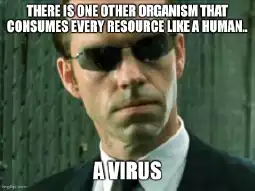
Half of your DNA is from viruses. You are as much virus as human. How does this make you feel?
>Eight percent of our DNA consists of remnants of ancient viruses, and another 40 percent is made up of repetitive strings of genetic letters that is also thought to have a viral origin. Those extensive viral regions are much more than evolutionary relics: They may be deeply involved with a wide range of diseases including multiple sclerosis, hemophilia, and amyotrophic lateral sclerosis (ALS), along with certain types of dementia and cancer.
https://www.cshl.edu/the-non-human-living-inside-of-you/
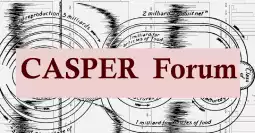
New Website for Political Economy Research
Anon from the cybercom thread suggested I post this here as well. A forum for political economy research started by Marxists. Classical Econophysics is listed on the resource page.>The goal of this forum is to create a community for producing and reproducing scientific knowledge in political economy that exists totally outside of the realm of academia, the world of bourgeois non-profits and thinktanks, and the state apparatus. Today, political economy, which has been transformed into the “scientific” discipline of economics, has been both gutted of its most insightful content and held back by obscurantist and outdated mathematical models. It was once the case, in the days of Smith, Ricardo and Marx, that political economy was a form of thinking, researching and discussion which was undertaken by a broad public: working men, skilled craftsmen, professionals, clergy and professors. In this time, people didn’t write textbooks of economics, books to be taught by rote learning, they wrote books which were meant to be read by people interested in political economy and further their own research and understanding.
>This forum is built on the optimism for human curiosity and ingenuity, on the hope that there’s a possibility for creating a social science that isn’t trapped in the confines of a state ideology. A place for discussing political economy and related issues outside of the universities, economic bureaucracies and institutes funded by and for the ruling class; to the extent individuals from that world use this forum it should be to escape that world. On the other side of things, while it would be excellent for the work of this forum and its users to go on and inspire political movements, the forum itself is not sectarian, and is intended as a place for a general scientific community where all stripes of researchers can present their findings and debate.
>The features of this site are intended to nurture such a community. Users can write posts on their own personal blogs in long form to describe their research, as well as follow the works of other users. The actual forum allows users to create topics to discuss anything political economy related, as well as developments in real world economies, keeping dialogue open and inclusive to the public. The debates in the forum can teach people about political economy, as well as inspire further investigation. If you see a user post some interesting ideas, you can click on their profile and see what blogs they’ve written about their own research. More personal connections and collaborations can be formed by users utilizing chat features. The front page hosts the best research of the CASPER Forum as well as articles and papers related to political economy from important authors and institutions. The point is to centralize and socialize the free labor of producing science
https://casperforum.org/blog/a-new-scientific-community-for-political-economy-research/
https://casperforum.org/community/

Is it possible that magic and myth are true?
Inspired by my reading of the book, Ishmael, by Daniel QuinnHow do we know myths, stories, magic, etc. are not real? Assuming what we know scientifically is true, how does this negate myth, legend, etc? Why are dinosaurs not simultaneously animals and also monsters when they fit what we would have called monsters? Why are overriding social systems not tantamount to a spirit or God when they control our actions and shape our life histories even if they don't act consciously? Are they not what we'd call an egregor, i.e., a presence brought into existence by the actions and beliefs of a large number of people? Is our Sun not a God when it is responsible for all life on Earth? Is the biosphere not some sort of Earth spirit when it encompasses all living things yet influences each individually and can be destroyed through harming the Natural (non-human) World. Are spirits not the electrical currents moving through your brain? Do we not tell history as a story?
In the beginning there was nothing but the One, then the One expanded into the Everything, as the Everything continued to expand soon the beating hearts of the Everything, the Stars began to form from the energy of the Beginning, the stars coalesced into huge interstellar communities, galaxies; in the nuclear core of the stars more building elements were created, and from the stars came the planets; in the deep seas of one planet around one star life formed out of the energy of the planet's iron core, over the course of billions of years life arose in complexity in a way matching the Everything until finally from Life emerged the Someone, a complex arrangement of the Everything capable of consciously perceiving itself.
Why isn't our understanding of the Universe, even being scientifically true, a myth? Myths were once truths, after all.

Reading Group List
A list of reading groups and their schedules that have chosen to advertise themselves here. Take a minute to check them out. If you would like to promote your reading group, feel free to leave a comment telling people where they can go.>>5912 /read/
>>6162 Continental Floppa
edit: linking the old Reading Thread sticky, for easy reference: >>>/leftypol_archive/582595

Long-hidden ruins of vast network of Maya cities could recast history
<In Guatemala, scientists map well-organized network of 417 cities dating to circa 1000 B.C.
>Beneath 1,350 square miles of dense jungle in northern Guatemala, scientists have discovered 417 cities that date back to circa 1000 B.C. and that are connected by nearly 110 miles of “superhighways” — a network of what researchers called “the first freeway system in the world.”
>Scientist say this extensive road-and-city network, along with sophisticated ceremonial complexes, hydraulic systems and agricultural infrastructure, suggests that the ancient Maya civilization, which stretched through what is now Central America, was far more advanced than previously thought.
>Mapping the area since 2015 using lidar technology — an advanced type of radar that reveals things hidden by dense vegetation and the tree canopy — researchers have found what they say is evidence of a well-organized economic, political and social system operating some two millennia ago.
>The discovery is sparking a rethinking of the accepted idea that the people of the mid- to late-Preclassic Maya civilization (1000 B.C. to A.D. 250) would have been only hunter-gatherers, “roving bands of nomads, planting corn,” says Richard Hansen, the lead author of a study about the finding that was published in January and an affiliate research professor of archaeology at the University of Idaho.
https://www.washingtonpost.com/science/2023/05/20/mayan-civilization-pyramid-discoveries-guatemala/
Graham Hancock - absolved
His detractors - BTFO
You may begin your posts by admitting you were wrong to trust liberal scientists and the ideology-laden "science" that aims to maintain the status quo, rather than advance humanity. I'm not angry, or here to gloat, I am just happy that now we can finally move on and start discussing the implications of "civilisation" being much older than we think. How does this affect Historical Materialism? (my position, as explained extensively and in-depth in the last thread, is that it actually makes HistMat a more robust theory) Graham Hancock is a self-proclaimed socialist
The last effortpost thread, full of academic sources, logic, reasoning, good arguments, was moved to /siberia/ as to kill it. It seems I didn't save it on this computer, but I know for sure I saved it. I will find it, I promise you that.

Anti-Capitalist Studies Dump
Post all the studies in here that undermine capitalism. Post the title, a summary of the content and share either a link to or a PDF of the study in question.Capitalism and extreme poverty: A global analysis of real wages, human height, and mortality since the long 16th century
< The common notion that extreme poverty is the “natural” condition of humanity and only declined with the rise of capitalism rests on income data that do not adequately capture access to essential goods.
<Data on real wages suggests that, historically, extreme poverty was uncommon and arose primarily during periods of severe social and economic dislocation, particularly under colonialism.
<The rise of capitalism from the long 16th century onward is associated with a decline in wages to below subsistence, a deterioration in human stature, and an upturn in premature mortality.
<In parts of South Asia, sub-Saharan Africa and Latin America, wages and/or height have still not recovered.
<Where progress has occurred, significant improvements in human welfare began only around the 20th century. These gains coincide with the rise of anti-colonial and socialist political movements.
https://www.sciencedirect.com/science/article/pii/S0305750X22002169
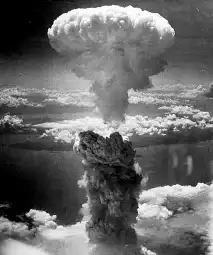
Bombings of Hiroshima and Nagasaki. Was it the right decision? Was it justified?
What is your position on this?https://en.m.wikipedia.org/wiki/Debate_over_the_atomic_bombings_of_Hiroshima_and_Nagasaki
On 26 July 1945, United States President Harry S. Truman, British Prime Minister Winston Churchill and President of China Chiang Kai-shek issued the Potsdam Declaration, which outlined the terms of surrender for the Empire of Japan as agreed upon at the Potsdam Conference. This ultimatum stated if Japan did not surrender, it would face "prompt and utter destruction".[1] Some debaters focus on the presidential decision-making process, and others on whether or not the bombings were the proximate cause of Japanese surrender.
Over the course of time, different arguments have gained and lost support as new evidence has become available and as new studies have been completed. A primary and continuing focus has been on whether the bombing should be categorized as a war crime or as a crime against humanity. There is also the debate on the role of the bombings in Japan's surrender and the U.S.'s justification for them based upon the premise that the bombings precipitated the surrender. This remains the subject of both scholarly and popular debate, with revisionist historians advancing a variety of arguments. In 2005, in an overview of historiography about the matter, J. Samuel Walker wrote, "the controversy over the use of the bomb seems certain to continue".[2] Walker stated, "The fundamental issue that has divided scholars over a period of nearly four decades is whether the use of the bomb was necessary to achieve victory in the war in the Pacific on terms satisfactory to the United States."[2]
Supporters of the bombings generally assert that they caused the Japanese surrender, preventing massive casualties on both sides in the planned invasion of Japan: Kyūshū was to be invaded in November 1945 and Honshū four months later. It was thought Japan would not surrender unless there was an overwhelming demonstration of destructive capability. Those who oppose the bombings argue it was militarily unnecessary,[3] inherently immoral, a war crime, or a form of state terrorism.[4] Critics believe a naval blockade and conventional bombings would have forced Japan to surrender unconditionally.[5] Some critics believe Japan was more motivated to surrender by the Soviet Union's invasion of Manchuria and other Japanese-held areas.[6][7]
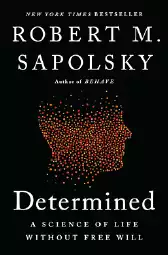
"Determined" by Robert Sapolsky challenges fundamental notions of human agency and free will, delving into the intricate web of causality that shapes human behavior. In this thought-provoking exploration, Sapolsky navigates the complex terrain of neuroscience, genetics, and psychology to argue that our actions are deeply rooted in biological and environmental influences, leaving little room for the traditional concept of free will.
Sapolsky's examination of determinism holds particular relevance to leftist thought, which often emphasizes systemic analysis and critiques of established power structures. By dismantling the notion of individual agency as traditionally understood, Sapolsky's work aligns with leftist critiques of neoliberalism and meritocracy, which often attribute social and economic inequalities to structural factors rather than personal responsibility.
Moreover, Sapolsky's emphasis on the role of luck and circumstance in shaping human outcomes resonates with leftist critiques of capitalism's inherent injustices and unequal distribution of opportunities. From a leftist perspective, Sapolsky's argument underscores the need for collective responsibility and societal interventions to address systemic inequalities and create a more equitable world.
Furthermore, Sapolsky's humane approach to grappling with the implications of determinism aligns with leftist values of compassion and solidarity. His advocacy for forgiveness and understanding in the face of moral dilemmas reflects a commitment to empathy and social justice, principles that are central to many leftist movements.
In conclusion, "Determined" offers a compelling exploration of free will that intersects with key themes and concerns of leftist thought, making it a relevant and thought-provoking read for those interested in understanding the complexities of human behavior within broader socio-political contexts.

Asiatic mode of Production?
What are the primary differences between the Asiatic mode of production and feudalism?Did only china go through this stage? Or korea too?
I know Japan's feudalism mirrored Europe's, but have no idea about pre-industrial Korea.
Pic is unrelated I just think it's cool
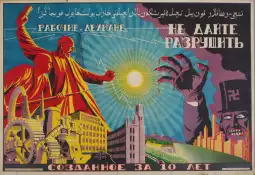
Nuclear Thread - Power of the Atom
Nuclear Atomic Science ThreadGeneral thread for discussing, studying, engineering and understanding Nuclear/Atomic/Thermonuclear and other related or comparative energy releases or sources. Both nuclear weapons and nuclear powerplants apply. Post photos, illustrations, text, documents, blueprints, articles and studies related to the topic. Limited memes also permissible.
Posadists… make sure to take meds before posting.
Chernobyl thread >>>/hobby/9068
List of US Nuclear Manuals and regulatory instructions: https://www.nrc.gov/docs/ML1536/
Nuclear Energy in Space https://archive.ph/ei3Jg
List of Soviet scientists and officers responsible for the USSR's nuclear technology in alphabetical order:
https://www.vniief.ru/about/history/goodpeople/ag
Nuclear Fusion vs Fission: https://archive.is/Qlgoy
What is an Atomic Reactor: https://archive.ph/1W1jO
What is a Nuclear Bomb: https://archive.is/H29Hl
https://wiki.leftypol.org/wiki/Nuclear_weapons
https://en.prolewiki.org/wiki/Nuclear_weapon
Thermonuclear: https://archive.ph/D0Zsc
Feel free to add more to the leftypol wiki on the subject (leftypedia) >>>/edu/3780
Also, see the Hiroshima thread: >>>/edu/15841
Educatory research: https://cyberleninka.ru/search?q=Nuclear&page=1

Was Ernst Thälmann a retard?
>Be Ernst Thälmann in the late 20s>Leader of the KPD in Germany
>Get over 10% of the vote in 1928 (4th place)
>1930
>Get 13% (3rd place) but Hitler just came out of no where and got 18% (2nd place)
>It's obvious that Hitler is going to keep growing in power
>Hitler brags in speeches that he'll suppress every other party in the Reichstag once he wins
>He even wrote a book where he talks about bolshevism being the blood enemy of fascism
>Be Ernst Thälmann: massively popular, growing at a similar rate to Hitler, but don't know what to do
>Consult pre-1935 Comintern, guidelines only retards would follow (even Stalin admitted this later)
>"Whatever you do, don't make a coalition with the Social Democrats!" says Comintern
>Social Democrats are the only party bigger than the Nazis
>They are interested in forming a coalition with the KPD to beat Hitler
>"Nah, that sounds like social fascism to me"
>Thälmann decides to attack SD rather than Hitler
>To most of the public, it looks like the left is fighting itself and they turn to Hitler.
>1932
>Hitler is by far the largest party in Germany with 37% of the vote
>The KPD grew, but only by a point
>Hitler is just months away from the Chancellery
>If the left can form a coalition, a literal right-wing monarchist will choose them over Hitler
>"Let's not let some Nazi trees overshadow the SD forest"
>Doesn't form a government because he believes he can still win
>1933
>Hitler is appointed Chancellor
>Ernst Thälmann rallies his party with a speech
>"Hitler first, then our turn!"
>Is arrested two months after Hitler's election
>Sent to the Buchenwald concentration camp along with most of his party and supporters
>Some of his comrades flee to the Soviet Union only to die in the Great Purge a few years later
>Ernst Thälmann is executed on Hitler's orders in 1944 after 11 years in solitary confinement
How could this guy have the largest Communist party in Europe at the time and then squander it like that? He didn't even have to work with the Social Democrats after winning. Hitler banned everyone else that he promised to work with and killed anyone else that disagreed in the Night of the Long Knives. Was Ernst Thälmann actually retarded?

this is what i want (crosspost)
Reposting to /edu/I want the best materialist theory/practice texts that have had more than ten people compose them. I may be mistaken, but all the big figurehead texts seem to be monographs or just 2 or 3 guys worked on them; please clear me up if Mao's and Lenin's big works weren't just by them. I don't care if these monographers backed their stuff up with loads of data and citations, I want commitees involved. I dont want anthologies either, i want it so that every block of text went through multiple changes by multiple people, if possible

What is Nationalism? And is it good?
Can there be a proletarian nationalist revolution according to Lenin? I've seen people argue that nationalism is reactionary and that it advocates for class-collaboration instead of workers revolution, since a nation is an abstract that includes all classes.Also, did Lenin advocate for self-determination of nations? And in what context did he do so?
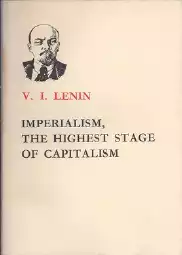
Can anyone make a tldr of this book like >>14131 I'm trying to explain to my friend in simple terms what imperialism is, but I'm shit at explanations.
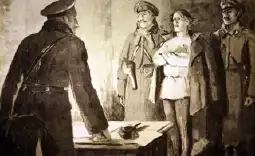
French revolution, American civil war and decemberist revolution.
I would like to ask for some recommendations for educational materials about:French revolution.
Decemberist revolt.
US civil war.
I would like to know more about the material reality that caused them, effects of these events, sides which participated in them, the skirmishes and battles etc. I would prefer if the recommendation is a book, but other things are fine too. I’m fine with materials that are in english and or russian languages.
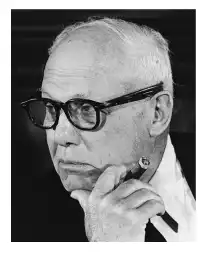
American Labor History
Been on a roll with Hofheinz, Bonnell, and Brody recently, and realized that I wanted to go deeper than what Buhle offered, so what if we started a reading group on the history of American Labor Organization and the material forces behind it that lead to business unionism as the only option? We can start with Buhle(and the sort of rebuttal that Minchin wrote via Labor Under Fire) but I'd like to hear other voices on the issue since I know I'm being retarded and narrow right now.
Are there any scholarly sources analyzing former communist snitch memoirs like Whittaker Chambers' Witness, Louis Budenz's This Is My Story, or Bella Dodd's School of Darkness?
I'm curious about the mentality of former communists who dipped and turned state, the "true" reasons they left communism to begin with, what inspired them to snitch, how their "redemption" stories were anything but, etc.

Internal vs External Factor
Me and my friend are discussing the book "On contradiction" by Mao. He insists that the external factors are the fundamental cause of development, because when you start analyzing, let's say, capitalism, it's internal contradictions are nothing more but external factors from past events, hence the internal contradiction being the secondary force.What do you think? It seems to make sense, but without the internal factors being deterministic, there would be no change, no?
Sorry if this read like shit, english is not my first language

The "Patriotic Socialism" Question
New reading project for the Continental Floppa reading group is beginning. We will be reading various writings related to the subject of "Patriotic Socialism" and national identity. This thread is for slower discussion of the topic and readings and for posting links or uploads for relevant texts.Join our matrix chat to get involved.
https://matrix.to/#/!mjlMGagFTDhvgxMWhY:matrix.org/
Our tentative plans are to discuss readings on Saturdays, but this will depend on what anybody joining the group has to say. We are still determining which texts to include in our readings and the order.

The Great French Revolution
Where the hell do I start with this shit? Unlike with the Russian Revolution I never see any leftists giving any clear recommendations for the French Revolution, so let's make a thread to address that now.There are a whole bunch of differing interpretations that are neatly summarized in this Cosmonaut article: https://cosmonautmag.com/2019/09/historiography-wars-the-french-revolution/
Contemporary: The names that get dropped here are Edmund Burke's right wing critique of the French Revolution and Thomas Payne's reply. Seems like something I'm obliged to read eventually but is it a good place to start?
Bourgeois revolutionary: These are the historians that Marx and Engels themselves read: Guizot, Thiers, and Michelet (the latter Wilhelm Liebknecht really liked and who seems to be the most leftwing). The translations are usually pretty old so they might be a difficult read. Do you recommend any of these authors?
Second International Socialist: You have histories by Jean Jaures, E. Belfort Bax, a short one by Kautsky, and some others. Once again physical copies are mostly print on demand dreck, but I'm wondering if anyone recommends these.
Official Communist Academic: The big names here are Georges Lefebvre and Albert Soboul. These authors combine more rigorous research with an explicit Marxist mode of analysis - albeit presumably with some probrematic baggage about a "democratic bourgeoisie" that must personally lead the "bourgeois democratic revolution" and so on. Anyone read these?
Revisionist Renegades: The latter school actually had some clout in mainstream history departments so there was a big cold war push to discredit them - casting doubt on how independent the bourgeoisie was from the aristocracy etc. However, it's pretty much solely a negative critique, with the unspoken thesis being that the whole revolution was a senseless act of violence and that the ancien regime would have evolved into a parliamentary capitalist regime by itself.
So not ideal, but this school has the benefit of the most up-to-date research and prose. I actually already own one book in this tradition: Citizens by Simon Schama that I found at Goodwill (haven't read any of it yet).
Bonus: My dad owns a fancy Folio Society edition of The French Revolution: A History by Thomas Carlyle, published in 1837. Despite the title, it assumes you already know the history and is basically an epic poem written in 900+ pages of flamboyantly florid prose. It was considered a literary masterpiece in its day but is now thoroughly forgotten; it has to be the only book I've ever seen that has more luxury leatherbound editions on the used market than paperbacks. I won't start with this one but it's a bizarre book that's worth mentioning.
What's your favorite history of the Great French Revolution?
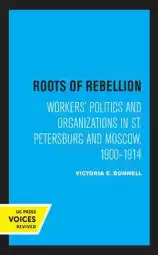
Bolshevik Organization Tactics
Decided to start a thread on this topic after skimming through Bonnell's work and starting The Organizational Weapon(as much as the neocon pours through the page). The last chapter of Bonnell states but does not explain why the Russian capitalist was far less conciliatory than his American counterpart(though that's probably just because I skipped to the end and need to tread back) though that's certainly of interest. The book also tends to stress more cultural victories, such as Bolshevik journals being more practical and "proletarian" than their intellectual Menshevik counterparts. A younger, dumber version of myself would have turned this into some Maupin-type point but I don't know what to make of it now.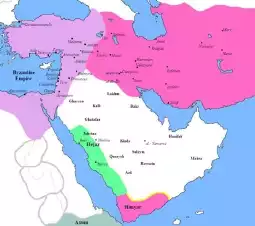
chronology of the Muslim conquests of Arabia
I've always found it weird that this event is never mentioned all too often, like from what I understand>Muhammad and his followers in 622, facing hostility, flee from Mecca (a major regional trading center) to surrounding areas, specifically the city of Medina .
>After establishing themselves, they begin a protracted counter-war, chipping away at the Qurashi trading routes, and finally conquering the city. At 630,
>Muhammad dies in 632, the early Muslim expansion begins at 634
at what point does the rest of the Arabian peninsula get conquered/absorbed into the caliphate and why was it so easy to bring them into the fold then the Quraysh?
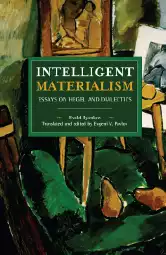
Intelligent Materialism: Essays on Hegel and Dialectics
Recently got this book, because it sounded interesting and reading the first pages I found it to be promising. So I'm dropping it in here. Perhaps we can talk about it.It's a collection of essays by Evald Ilyenkov, a Soviet philosopher, who acted as a figure to make Hegel's role in Marxism understandable and accessible to the general public.

When I got to Kant, I couldn't understand a thing, not a single thing: "transcendental idealism," "numena," "phenomena," "antinomies," "categories"-they all danced in my head like mysterious monsters. I grasped some of what Kant said about "man as an end in himself" and the "categorical imperative." But this categorical imperative looked to me like a cold piece of intestine, which you could fill with whatever you wanted, there was nothing living or vital here, nothing that would give a living answer to living questions.
Or maybe, it's just that I don't understand. Maybe my own intestine is too frail, maybe I'm not up to it. The pages of the book seemed to me an elaborate code I would never be able to decipher.

Was paganism in Europe the north of the Roman Empire even a thing?
Northern Paganism have given Catholics a perfect excuse to invade and oppress people of these territories, like how it happened in Prussia and other places, and it just so happens that everything we know about it was written by Catholics. None of these Northern Pagans thought that their religion, which they were supposedly practicing for centuries, was important enough to document it.

Thoughts on Nick Land
So I read this guy's essay called Kant, Capital and the Prohibition of Incest. I thought it was pretty good and I was surprised because I heard this guy was extreme alt right crank and here he is discussing racism, patriarchy and capitalism in South Africa. I checked and yeah this guy is now a legit fascist or "neoreactionary" or whatever and he regularly appears on far right shows. What the fuck happened? Is the rest of his stuff worth reading?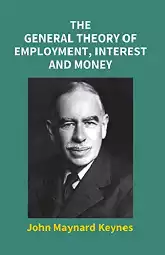
Keynes
Currently reading this book and I need some help understanding some of this since it’s not clicking. First of all I need help in layman’s terms what all this means specifically:We need, to start with, a few terms which will be defined precisely later. In a given state of technique, resources and costs, the employment of a given volume of labour by an entrepreneur involves him in two kinds of expense: first of all, the amounts which he pays out to the factors of production (exclusive of other entrepreneurs) for their current services, which we shall call the factor cost of the employment in question; and secondly, the amounts which he pays out to other entrepreneurs for what he has to purchase from them together with the sacrifice which he incurs by employing the equipment instead of leaving it idle, which we shall call the user cost of the employment in question. The excess of the value of the resulting output over the sum of its factor cost and its user cost is the profit or, as we shall call it, the income of the entrepreneur. The factor cost is, of course, the same thing, looked at from the point of view of the entrepreneur, as what the factors of production regard as their income. Thus the factor cost and the entrepreneur's profit make up, between them, what we shall define as the total income resulting from the employment given by the entrepreneur. The entrepreneur's profit thus defined is, as it should be, the quantity which he endeavours to maximise when he is deciding what amount of employment to offer. It is sometimes convenient, when we are looking at it from the entrepreneur's standpoint, to call the aggregate income (i.e. factor cost plus profit) resulting from a given amount of employment the proceeds of that employment. On the other hand, the aggregate supply price of the output of a given amount of employment is the expectation of proceeds which will just make it worth the while of the entrepreneurs to give that employment.
It follows that in a given situation of technique, resources and factor cost per unit of employment, the amount of employment, both in each individual firm and industry and in the aggregate, depends on the amount of the proceeds which the entrepreneurs expect to receive from the corresponding output. For entrepreneurs will endeavour to fix the amount of employment at the level which they expect to maximise the excess of the proceeds over the factor cost.
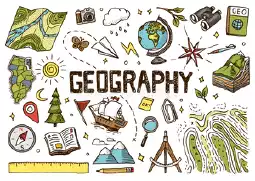
Why do STEMbros hate Geography?
Hey /siberia/I always wondered why does Geography get looked down on by engineers and programmers
Like it's only let's say half a social science
But the other half concerning landscapes, resources, weather, etc. including maps (believe it or not measuring physical stuff is not the domain of social sciences) is 100% a natural science
To be honest even outside STEMbros I've noticed regular PMC and petty-bourgeoisie types being disdainful towards anyone with even a passing interest in Geography, god forbid studying it
Why is this the case?

I hate G.E. Moore so much. His entire career was built off of declaring unfounded assumptions as true because, just, like, come on man. Trust me.
Look at his argument against hedonism. Henry Sidgwick says that "good" only exists as an objective property in one context: within conscious experience. He argues that beautiful objects cannot have any value in the external world, and that only the images of beautiful things within a mind are beautiful. In other words, he argues that things are only beautiful when they are perceived. G.E. Moore says this isn't true, because he imagines a world that he thinks looks nice, and then another world that he thinks doesn't, and says it's just intuitively obvious that the first is objectively better than the second! But you're still just comparing things in your mind, not things in the real world! The only thing you've demonstrated is that it's better for you to think about the first world than the second, not that the first world contains any objective quality that makes it better than the second! Someone else with opposite aesthetic tastes to your own could think about both worlds, and come to the opposite "intuitive" conclusion! You haven't provided any evidence for your assertions at all! It's madness! And they let this guy into Cambridge?
G. E. Moore's dogmatic adherence to intuition will forever live in infamy in one of the worst arguments in philosophical history, dwarfing his already quite stupid argument in favor of objective beauty. He claims to prove that we can be certain about the existence of the external world and that all skeptical hypotheses are false, because… the external world exists and all skeptical hypotheses are false. He just declares it, and so therefore it must be true. No epistemology needed. Damn. Why didn't Descartes think of that? Just think really hard that something is true, and then it must be true.
Ray Monk called him "the most revered philosopher of his era." Kill yourself Ray Monk. Fuck G. E. Moore and fuck intuitionism.

Was the tiananmen square massacre really a massacre or a spook?
I read this article and it claimed that leaders of the anti-gov protesters were acting entirely in self interest and that majority of casualties were soldiers of the PLA who were murdered by the protesters when they tried to solve things peacefully.Is this true? I don't trust western propaganda one bit but this is the tiananmen square massacre!? I don't want to jump to conclusions right away. What are your thoughts on this?
I also tried to check the sources and I got a 403/404.
website:
https://www.liberationschool.org/tiananmen-the-massacre-that-wasnt/
pdf:
http://76i2c3hn55fcj5nut3tqlboqqbbh23zvphv7lefk3vftpx6wketlanyd.onion/leftypol/src/1682222954384-0.pdf

What are the best historical examples of ousting concillatory/bourgeois leaders from the trade unions? A few specific events and detailed context would be incredibly helpful as compared to the profound but broad insight that Lenin's works have. I don't expect people to write essays here, just topic to look into since just searching up "change" or "resign" along with unions comes up dry on material to study.

Revolution 1905-1907(1917) and Civil War
It was a dress rehearsal, without which the final victory of the proletariat in October 1917 would have been impossible. (Lenin)The revolution of 1905 came as a surprise to everyone, although Russia had been going to it for a long time. For example, the American historian Richard Pipes considers it a prologue to the student unrest of 1899. The Minister of Foreign Affairs Alexander Izvolsky believed that the tsarist regime began to collapse even under Alexander III, and the publicist Mark Vishnyak counted the end of the autocracy from the mid-1870s, when Alexander II stopped the Great Reforms and decided to" freeze " the country. Russia and the ruling dynasty could only be saved from revolution by the introduction of a constitutional monarchy. But the last Romanovs, in an effort to preserve the unshakable autocratic foundations of their power, eventually lost everything and led the country to the catastrophe of 1917.
Interactive map of the 1905 revolution
https://libcom.org/history/interactive-map-1905-revolution

Imperial Japan
So as it turns out, I actually know very little about imperial Japan, aside from very surface level things such as attempting to become a new colonial power. The only thing I know is that it didn't have a concrete racial science like Germany had developed under the nazis, although I could be completely wrong about that since I learned about that from a reddit post. I'm actually still unsure if it had a concrete ideology or rather a mishmash of idealogies but I have no idea if that's correct either.If I got any of the above wrong feel free to correct me, and I'm also wondering if there are any good sources for learning something about this.
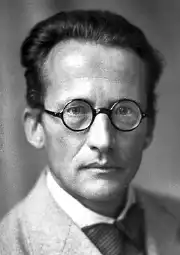
Idealism in Quantum Physics
This has annoyed me for a while and I would like to have addressed this for people who are also interested in this subject. I am not studied in physics and specifically quantum physics. I just take a general interest in this subject on the periphery of all the other things I am occupied with. When learning about physics through popsci videos and occasionally reading articles on the matter it has always bothered how nonsensical ideas and contrived theories are spread on this subject, and that shit needs to die.You‘ve probably heard claims before such as
<„Consciousness collapses the wave function“
<„The collapse of the wave function produces a parallel universe for each possible outcome“
<„A particle could be anywhere until it is observed“
Much of this is straight up bullshit and some claims are an aberration of technically correct statements turned fantastical and far fetched.
First of all, „observe“ is misleadingly phrased. This gives credence to a consciousness-centered explanation of the wave function‘s collapse as people think of a person looking at something when they hear the word „observe“. By „observe“ physicists actually mean that a device physically interacts with something to measure a physical property. We aren‘t simply looking at something when we „observe“, instead we are physically interacting with it.
Additionally, the wave function isn‘t real. The way this term is used it makes it sound like it‘s a physically existing entity in the world. It isn‘t. The wave function is a mathematical abstraction that describes that we approximately know where, for example, an electron is probably going to be, whilst lacking precise knowledge where exactly it is UNTIL we have „observed“ it, i.e. physically interacted with it through a device that pinpoints this incredibly small object that we could otherwise not locate. The „collapse“ of the wave function is having moved from probabilistic knowledge to discrete knowledge. „Collapse“ yet again makes it sound like as if we are dealing with a materially real thing when in fact the term is just a mere abstractions describing the amount of knowledge we have about something on the quantum scale.
The wave function is not collapsed by consciousness. Your consciousness is the emergent product of neurochemical processes inside of your brain that are stimulated by your senses translating physical stimuli onto your body into electrical impulses carried by your nerves, such as light stimulating your retina or pressurized air physically pushing your eardrums. There is no physical interaction between the activity inside of your skull and an electron „that “chooses” to go through one or both slits in the double slit experiment“. Your consciousness didn‘t influence anything. What did was a device that physically interacts with the electron which bore an influence on its trajectory and behavior.
Likewise, the wave function is „collapsed“ in macro scale objects not because of consciousness but because these numerous particles on a quantum scale are interacting with each other in a confined space which limits their movement. You end up with a larger material object whose behavior is described by classical physics.
The claim that the collapse of the wave function „leads“ to the creation of parallel universes for each possible scenario is utterly baseless. The word „leads“ implies there is a physical and causal relationship between „the collapse of this wave function“ and the creation of a whole fucking universe (lol). Remember that the wave function is just a mathematical abstraction that describes how much we know about the properties of a quantum object. This should go without saying, but there is no physical and causal relationship between the amount of knowledge changing that we have about a physical system and that leading to the creation of a parallel universe. It‘s a baseless claim.
Fun fact, when Schrödinger created his thought experiment, now known as Schrödinger‘s Cat, he wasn‘t describing that it were real that a cat was „both dead and alive at the same time“ when trapped in a box with a toxic substance that would be released if some quantum mechanism was observed. He was ridiculing such a scenario that is founded on the Kopenhagener Interpretation of quantum physics. Actual physicists (should) know this, but popsci content will still frame it as a serious thought experiment, or as not a thought experiment at all but as something that actually happens.
Finally, once you understand all the nonsense regarding this field you have to ask yourself, why would such archaic interpretations spanning back roughly a hundred years ago still be so prevalent? It‘s because the vast majority of people will either not have the intelligence or time to study all of the details themselves. They are therefore reliant on actual scientists giving them illustrative and watered down explanations to acquire an at least vague understanding of the real thing. Two things have led to the persistence of these obviously moronic theories.
1) There is a sect of physicists that have a personal affinity to religion/spirituality/metaphysics which makes them favor such an interpretation of quantum physical processes. The Many Worlds Hypothesis is not debunked per se, but it‘s unscientific and can‘t be proven. It‘s as if I said: Whenever I fart on Taco Tuesday there will be a new parallel universe created. How? I don‘t know. Can you prove there isn‘t a new parallel universe whenever I fart? Haha, gotcha! Guess you have to seriously consider my bullshit now. It‘s the same line of reasoning by religious people. „You can‘t prove that God doesn‘t exist!“
2) There is a money to be made with popsci. As said, the general public is reliant on scientists making difficult subjects understandable to them with no deeper knowledge of those subjects. By making science as magical and fantastical as you can get away with while retaining the trustworthiness and prestige of science you can build a larger audience. I mean, wouldn‘t it be cool if portals to infinite parallel universes were real and you could use warp drives to fly to other galaxies? Magic can lead out of the boredom of a predictable and boring reality. Cluelessness about science can be abused to turn science into magic to give people the same thing they are seeking in magic, spirituality and religion. Some charlatans even try to prove magic, spirituality and religion with quantum physics.
So, I hope this has helped you to not fall for the bullshit. Maybe this all sounds obvious in hindsights but almost all popsci content online describes quantum physics in misleading terms and contrived interpretations. The truth about quantum physics is much more sober than that, but still it‘s rare to encounter a no bullshit explanation for quantum physics.

Postmodernity
Postmodernity is not an "ideology" but an advancement of material conditions for the age of digital technologies, which increasingly simulate Reality and thus cause an ontological shift which reverses the order of production, which now begins in the superstructure (mass culture, mass media, the "spectacle" of late capitalism and so on) and then flows into the affective instruments of (post)industrial nodes of distribution. This is a direct reversal of the Marxist dialectic, where now the unrepresentable base of production is the web of public interest, democratised along lines of free markets, which then flow into machines of production to give abstraction to the "real movement".Today, the qualitative virtuality of culture leads in productive capacity, which gives false pretence to the necessity of industrial labour. The truth is that a youtuber and their data are more useful today than any warehouse slave. This is the postmodern turn, where all things real have become unreal, so that the very term has been overcome. We can no longer speak of Reality with authority - like Zizek says, ideology is imagining we have escaped the matrix, when the truth is that every red pill is actually a double-dosage of blue pills, since it gives the illusion of escape. There is no escape from The Wired of the Deleuzean "new earth", which has ensnared the earth within the capacities of its magnetic mantle, giving life to the artificial and artificializing life.
This is sustained by Keynesian mediation, which maintains crises of overproduction and overemployment, such as FDR said after the new deal, "I have saved capitalism", but of course, capital is the agent, which has saved itself by wrapping itself into the state structure, amplifying its reach over the world. As Keynes says in his prophetic tone: "in the long run, we are all dead".
So its good to accept the attitude of postmodernity, which embraces play over purpose, as nihilism broadens by the extraction from the well of abstraction that it builds itself upon. Today we have the multiverse of multimedia involutions, reflected in quantum mechanics and cinematic representation. Reality is expanding like the dark energy ripping the universe apart faster than the speed of light.
You imagine communism, but what does it look like in contradiction to today's progress? the worst among you idolise poverty as a sign of "authenticity", but isn't this already wrapped in the cloak of self-deception, like the PMC who still paternalize the proletariat in theoretical bondage or the universalists who mangle together grotesque visages of an enlightened Humanity.
There is no Humanity and there is no Proletariat anymore, that is the end of your discrepancy. Embrace the end of history or else.

newly released pannekoek book (not available anywhere else)
https://www.kickstarter.com/projects/wrkclasshistory/the-workers-way-to-freedom

Recommend me history books about 20th century and on
Recommend me general book about what lead to russia/ukraine war and palestine/israel war, some totally objective description from the beginning to now, so i understand whats going on now. I bought Paul Johnson book "Modern Times" (i know he is rabid anticommunist, didnt knew that when i bought it), its funny how hateful he is, but reading his chapter on Palestine/Israel even he mentioned that jewish terrorist groups were actually responsible for the first acts. I dont want specifcally "communist historian" books either. Objectively state of the facts, without unneccessary commentary would be fine for me - but i would like book like "20th century modern history" like Johnson wrote - so from bird view eye, entire 20th century, doing some broad analysis idk, just more objective.Pic unrelated i dont know what to post rn
Help me track down Hakim's production efficency paper
I remember that Hakim at a certain point, in a video of his, cited a paper about production efficency, according to which socialist states had about the same efficency (if not slightly more) as capitalist ones in transforming raw materials into finished products.Does anyone know the name of such paper or has a link?

Dialectical Analysis Exercise
Here is an idea I had when reading Georges Politzer's "The Elementary Principles of Philosophy". He describes his approach to dialectical analysis. If anyone here wants an exercise in dialectical analysis give it a shot by selecting whatever piece of media you find to be relevant and analyze it based on his approach.<6. A method of dialectical analysis
<In order to apply the dialectical method properly, one must know many things. If you do not know your subject, it must be studied carefully, otherwise, your judgment will amount to only a caricature of the truth. In order to make an analysis of a literary work, a book or story, we are going to indicate a method which may be applied to other subjects as well.
<a) You must first pay attention to the content of the book or story you wish to analyze. Examine it independently of any social question, for not everything is derived from class struggle or economic conditions. There are literary influences which we must take into consideration. Try to see to which “literary school” the work belongs. Take into account the internal development of ideologies. Practically speaking, it would be good
to make a summary of the subject under analysis and to note down anything you found remarkable.
<b) Next observe the social types the heroes of the intrigue belong to. Look for the class to which they belong. Examine the action of the characters and see if what takes place in the novel can be linked in some way to a
social viewpoint. If this is not possible, if it cannot reasonably be done, it is better to abandon the analysis rather than invent. You must never invent an explanation.
<c) After you have discovered what class or classes are involved, you must determine the economic foundation, i.e., the means of production and the way of producing at the moment when the action of the novel takes
place. If, for example, the action is contemporary, the economic system is capitalism. At present we see numerous stories and novels which criticize and fight capitalism. But there are two ways to fight capitalism:
<1. As a revolutionary seeking to go forward.
<2. As a reactionary, who wants to return to the past. It is often this form which we encounter in modern novels, in which one longs for the "good old days.”
<d) Once we have obtained all this, we can then look for the ideology, i.e., see what the ideas and feelings, the way of thinking, of the author is. While searching for the ideology, we shall keep in mind the role it plays, its influence on the minds of those who read the book.
<e) We can then conclude our analysis, by saying why such a story or novel was written at such a moment. And criticize or praise, according to the case, the author’s intentions (often unconscious).

STEM history
I am of the opinion that students will become a lot more interested in a subject if, instead of being forced to memorize formulas and rules for a test, they are instead treated to a historical overview of how the subject matter developed to its contemporary stage. To provide a human grounding of "Who/When/Where/Why" instead of just a dreary "What/How" will allow students to get a sense of the relevance of the subject matter. Unfortunately, there is too much mutual contempt between STEM and the humanities, and too much capitalist contempt for "stopping and smelling the roses" to get any kind of pedagogical reform movement off the ground.In this thread, I'd like to collect videos, research papers, books, etc. that cover the history of various STEM subjects.

Language learning communities
Where to find language learning communities, where I ask something about the language I am studying and get responded? I am not using hellotalk because it glows, nor fbi.gov for obvious reasons. I am a brazilian learning greek and mandarin and intending to learn korean and spanish, in case I need to be specific.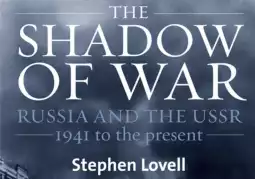
What was the ideological motivations behind the deportations from Poland and the Baltic territories? The standard liberal take is that their nationalities were viewed as a proxy for reactionary ideology, which certainly is a major fuck-up, though in a world with "Stalin killed EVERY UKRAINIAN" tier-takes we can be glad for that nuance. I've heard of Chang's book Burnt By The Sun, but has any one else studied this topic specifically?

Anti-Apartheid In Israel Resources
Thread dedicated to attacking Israel's De Facto Apartheid State. Antisemitism and other /pol/ brained bullshit not welcome.Desired: Books, Videos, Movies, Articles, Essays, Documentaries, Thoughtful Discussion, Relevant Personal Anecdotes, etc.
Not Desired: JQ Bullshit, Nazi apologetics, IDF-apologetics, Israel apologetics, Zionist apologetics, anti-Palestinian racism

Marxism-Leninism-Maoism Q&A
This is not a debate thread. I encourage debate on this topic to happen in /leftypol/, as it would have anyway. This is an /edu/cational thread only.Marxism-Leninism-Maoism, the third and highest stage of communist theory, was synthesized in 1982 by the Peruvian Communist Party (known in bourgeois sources by the epithet "Sendero Luminoso"). Here is the document they published concerning this: http://library.redspark.nu/1982_-_Maoism._On_Marxism-Leninism-Maoism
Parties and organizations that uphold MLM theory in the modern day include:
>Communist Party of Ecuador – Red Sun
>Peru People’s Movement (Reorganisation Committee)
>Communist Party of Brazil (Red Faction)
>Red Faction of the Communist Party of Chile
>Maoist Organization for the Reconstitution of the Communist Party of Columbia
>Revolutionary Nucleus for the Reconstitution of the Communist Party of Mexico
>Communist Party of Turkey/Marxist-Leninist
>Committee Red Flag, FRG
>Maoist Communist Party, French State
Red Flag Collective, Finland
>Committees for the Foundation of the (Maoist) Communist Party of Austria
>Tjen Folket - Communist League, Norway
>Committee to Reconstitute the Communist Party of the USA
>Communist Nucleus Nepal
Two other well-known parties are affiliated in part with MLM, although their political orientation overlaps significantly with what we'd call "Mao Zedong Thought" which is not the same thing:
>Communist Party of India (Maoist)
>Communist Party of Philippines

so i was reading engels book on the peasants war in germany and apparently his primary source for it was taken from a book titled "The History of the Great Peasant War" by this zimmerman guy.
now the problem is, i cant find that book anywhere online, so if any of you have a pdf i would really appreciate it if you could post it here

War on Terror literature recommendations?
I'm aware of a book called My Life with the Taliban that is a memoir of a Taliban fighter who fought the insurgency against the US in the early 2000s, that one seems interesting, I'm imagining there must be some memoirs of American soldiers too right? If you know of any of either Iraq or Afghanistan feel free to give me some suggestions. Something that's like Storm of Steel or similar to that type of war memoir.
I don't get it - ("Orientalism" by Edward W. Said)
I wanna state that I'm from Pakistan and grew up in a community that was very proud of its self, we see ourselves as our ethnic group and everybody else is an outsiderSaid just comes as a across as a whiny self hating cunt and applies that whiny cunt nature towards everyone outside Europe, the man knew aboustetly nothing about the middle east, south asia or the muslim world, he was a white radlib(culturally) who had the luck of having ethnic heritage to justify his basis
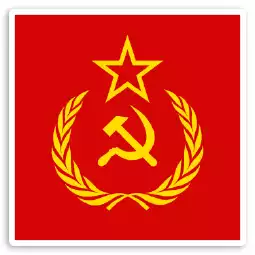
>Bolsheviks were the party of workers, proletarians
>Bolsheviks didn't give a fuck about the peasants
>in fact, peasants were counter-revolutionary and petit-bourgeois
Meanwhile, the Bolshevik logo has a SICKLE on it. Why do internet MLs refuse to consider the fact that we need people to grow food, and like it or not, we don't have replicators or vertical, indoor industrial-scale farming (yet), so it stands to reason that we must ally ourselves with those who grow food or want to grow food. It seems there is this attitude that we (communists) can just do whatever, not make allies, because there is this assumption that we'll just fight and defeat anyone who disagrees. But for a fledgling movement, like communism, peasants and the army are two important parts of "the people". Without them, the urban proletariat would starve or be quickly defeated by an actual army.
Well, /leftypol/? How do we get a large part of the army and "peasantry" on our side?

Rafiq/Ecology Discussion
So some of you may have read the quite popular pdf where Rafiq dunks on eco fetishism, in that thread he references a previous thread where he had spent a lot of time focusing in on eco-fetishism, however this thread has been lost from Revleft. It's available on internet archives but to preserve it I've made this in the style of the previous popular pdf. Hope you guys enjoy!This thread could serve to discuss this work if anyone ever dedicates the time to read it, or we could debate the place of ecology in modern day Marxism. To provoke discussion: does nature have any value outside how it immediately serves human interests?

Book Recommendations for the Depressed
I've wasted my life. I don't like who I am. I struggle to connect with the overwhelming majority of other people, and do not desire their companionship but the lifestyle is starting to fuck me over. I have a crippling internet addiction. I'm in a deep, deep hole in more ways than you can imagine and I don't know if I have the strength to get myself out. I can't even tell you how bad it really is. I know, I'm a very special boi. On the plus side, I don't harbor any bigotries and I'm not a porn addict.Since I can't get mental healthcare and I don't really have a support network, I'm looking for books—fiction or non-fiction, any genre—that fit any of the follow criteria:
>emotionally and/or intellectually edifying
>something that can give me some hope, comfort, inspiration, or show me a way up
>nothing too positive or wholesome because it'll bounce off of me
>no gimmicky, panacea bullshit either
>something I can relate to for the catharsis that comes from reveling in your shitty feelings in a controlled outlet, or maybe not, I could see this becoming a bad idea; use your judgement
>something I can feel a little better about myself for having read
So what should I read? I'm putting my faith in you.
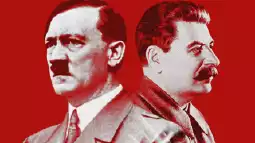
The Overlap Between Hitler's Socialism and Stalin's Socialism
>In Rainer Zitelmann’s book, "Hitler’s National Socialism", Zitelmann explains that Hitler's economic concepts regarding the relationship between markets and planned economies are controversial.>Before 1933, Hitler's true position was kept secret. >He emphasized the need for secrecy in his economic plans for the pragmatic purpose of maximizing the possibility of gaining political power. >Thus, he presented himself as a supporter of private ownership in some speeches, while attacking capitalism in others, depending on his audience.
>His main aim was to reconcile the principles of competition and selection with a state-controlled economy.
>Hitler believed that the common good should determine individual benefit, rather than the other way around.
>Once he came to power, he diligently studied Stalin's government.
>His view of the Soviet economic system shifted from skepticism to admiration.
>He defended the Soviet system and even praised Stalin's economic planning.
>Hitler's admiration for the Soviet system is confirmed by Wilhelm Scheidt's notes, where Hitler recognized the inner relationship between his own system and Bolshevism, considering it more developed and straightforward.
>By 1939, Hitler's intention was to expand state control of the economy, not reduce it, even after the war.
>Hitler believed that capitalism had run its course and predicted the survival of Fascism, National Socialism, and possibly Bolshevism in the East.
>In his last radio address, he stated that unrestricted economic liberalism had become obsolete.
Thoughts?
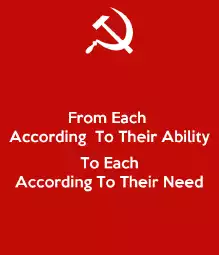
Marxism and Moralism
How can Marxism be considered anything other than a moralist aka altruistic philosophy?What is the self-interest in helping the needy?
How is it in anyone's self-interest to try to overthrow the system and create an egalitarian society vs spending their efforts trying to rise in the unjust hierarchical system we live under today?

Documentary to watch
https://youtu.be/dZRGBTmZAFEAn excellent documentary on the murder of a hero from comrade Roo
Hopefully he does a documentary on Gaddhafi next

Discussion of Tutnese
A cryptic new language Tutnese has been the talk of the town among the FBA community. Unfortunately there aren't many books about Tutnese that are not long out of print, and borderline grifter Nasheed has promoted Tutnese strongly but refuses to release the goods. Dump PDFs of relevant information here so that more folks can have the opportunity to pick up Tutnese freely.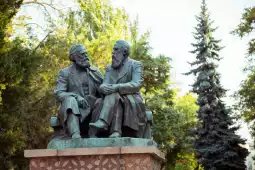
Why must've the Universe had a beginning? Why couldn't it have just been? Matter in motion since forever, always changing - as Heraclitus, Descartes, Engels, Lenin and other materialist philosophers postulated. Makes more sense than anything else.
>doesn't fall into the trap of an immovable mover
>doesn't fall into the trap of making matter out to be immutable since it is always changing
>removes the "I" from the equation, where consciousness just becomes another form matter in motion (electricity in our brains)
Why do the professional philosophers insist on arguing about idealistic nonsense when the two simple axioms
>matter always existed
>matter was always in motion
Solve all philosophical problems and leave only their practical solutions - i.e. the natural and social sciences, something tangible with results, to be studied? Is it because if the theory starts requiring practice, they lose their cushy jobs and pseudo-intellectuals on this board who jack off on structuralism, post-Marxism &c. would have to start doing manual labor to prove their points?
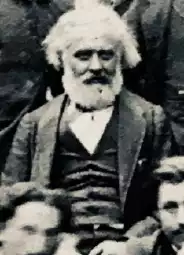
Navigating Historical Context for Marx
I feel like one of the biggest obstacles to understanding Marx's most crucial works is that he writes for an audience that he assumes already knows a ton of context, which makes sense considering his own context as a journalist for revolutionary workers on the streets themselves. It still makes those writings confusing to anyone that isn't an academic that has the privilege of having absorbed context. So, what are some good history books that can fill in that gap?Some specific topics:
—English political economy from Adam Smith to the repeal of the Corn Laws
—Early communist party (Cabet, Blanqui, League of the Just, Communist Correspondence Committee, etc.)
—1848 Revolutions and aftermath
—Napoleon III's coup
—Paris Commune
—First International activities and drama
—General 19th century European history
I found this on the Paris Commune a while ago, pretty decent: https://theanarchistlibrary.org/library/mitchell-abidor-voices-of-the-paris-commune
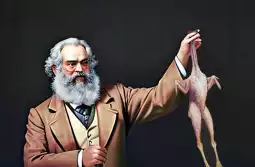
bourgeois vs. marxist vocabulary
Bourgeois economists embraced labor theory of value (which originated from Adam Smith of all people) until Marx. Marx got bourgeois economists to abandon the labor theory of value because he took it to its logical conclusion of the proletarian revolution against the bourgeois class dictatorship. As a result of bourgeois economists abandoning the labor theory of value in order to distance mainstream economics from Marx's conclusions, they began to embrace quackery like marginal utility theory and the subjective theory of value.Enough background. Let me get to the point. I was wondering, are there any books that outline the differences in vocabulary used by bourgeois economists before and after Marx? They did a lot of linguistic obfuscation after Marx, and it might be helpful to get a breakdown of that, because it's hard to even tell what bourgeois economists are talking about sometimes if your vocabulary is already marxist, or vice-versa, if you learned "mainstream" economics first and then pick up Marx 2nd. Sometimes it can feel like you're speaking two different languages, because the technical glossaries of each approach to viewing the world differ so much.

Anti-Duhring Thread?
I plan to study this book over the next week starting tonight or tomorrow. Anyone wanna join the read? I'd wager ~50-70pgs (relative to my edition) per day is doable for most. So my plan then roughly is>The three forewords, Intro (What Herr Duhring promises) and then chapters III-VIII
>From VIII to XIV
>Second part Political Economy I-V
>Then V-X
>Third ch. Socialism in its entirety
Links:
https://ia800304.us.archive.org/0/items/antidhringherr00enge/antidhringherr00enge.pdf
https://www.marxists.org/archive/marx/works/1877/anti-duhring/index.htm
If anyone thinks a study guide would be better so we follow some main points, be free to post it or suggest it. I'm not a fan of structured studies because then I read the text with a certain goal in mind instead of understanding it.

Join ProleWiki, the Leninist encyclopedia!
Greetings, comrades.Some of you may already be aware of our work. We began our project since September 2020, we are almost 3 years old, and we've been expanding our work since then. As a celebration of ProleWiki, we are beginning a recruitment campaign to attract Marxists-Leninists interested in improving our work.
We have enough money to keep us going for two more years, so we're not currently interested in donations. What we really want is people who study Marxism-Leninism and are interested in making their knowledge more accessible to the general public.
The current articles available is a reflection of our current set of editors' knowledge. It is bound to improve over time while we internally debate about many subjects and increase in number of editors. We currently have editors from all over the world, United States, Brazil, Mexico, Spain, Denmark, Germany, and many other countries.
If you see anything wrong with our articles, the best thing you can do is join us so you can correct them. What are you waiting for? Join us!
https://prolewiki.org/
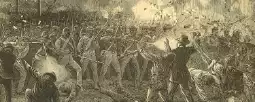
Thoughts on this open-source US history textbook?
https://www.americanyawp.com/text/16-capital-and-labor/
>The socialist movement drew from a diverse constituency. Party membership was open to all regardless of race, gender, class, ethnicity, or religion. Many prominent Americans, such as Helen Keller, Upton Sinclair, and Jack London, became socialists. They were joined by masses of American laborers from across the United States: factory workers, miners, railroad builders, tenant farmers, and small farmers all united under the red flag of socialism. Many united with labor leader William D. “Big Bill” Haywood and other radicals in 1905 to form the Industrial Workers of the World (IWW), the “Wobblies,” a radical and confrontational union that welcomed all workers, regardless of race or gender.32 Others turned to politics.
>The Socialist Party of America (SPA), founded in 1901, carried on the American third-party political tradition. Socialist mayors were elected in thirty-three cities and towns, from Berkeley, California, to Schenectady, New York, and two socialists—Victor Berger from Wisconsin and Meyer London from New York—won congressional seats. All told, over one thousand socialist candidates won various American political offices. Julius A. Wayland, editor of the socialist newspaper Appeal to Reason, proclaimed that “socialism is coming. It’s coming like a prairie fire and nothing can stop it . . . you can feel it in the air.”33 By 1913 there were 150,000 members of the Socialist Party and, in 1912, Eugene V. Debs, the Indiana-born Socialist Party candidate for president, received almost one million votes, or 6 percent of the total.34
>Over the following years, however, the embrace of many socialist policies by progressive reformers, internal ideological and tactical disagreements, a failure to dissuade most Americans of the perceived incompatibility between socialism and American values, and, especially, government oppression and censorship, particularly during and after World War I, ultimately sank the party. Like the Populists, however, socialists had tapped into a deep well of discontent, and their energy and organizing filtered out into American culture and American politics.

Biographies of Stalin & Mao?
I plan on checking out Kotkin's work on Stalin, which I'm told is informative and you can pick out the brainworms. And Trotsky himself wrote a biography on Stalin.The popular Mao biography is the one by Jung Chang, but that sounds like a pure polemic. 'Mao: A Reinterpretation' by Feigon is the only pro-Mao one I can find.
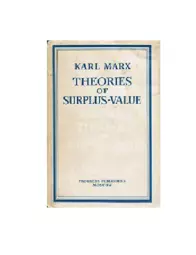
Bros. Theories of Surplus Value is SO FUCKING GOOD.
Marx LAYS DOWN THE FUCKING LAW and elaborates on the physiocrats, Adam Smith, David Ricardo, Malthus, and all the other classical political economists that reactoids like to pretend Marx never read.
It was supposed to be volume 4 of capital but Neither Marx nor Engels finished it. Karl Kautsky was the first to publish it from Marx's notes, but his edition is out of print and incredibly rare. David Riazanov (Ryazanov) of the Marx–Engels Institute in Moscow bought Marx's notes from the German government before they went full fash and published Theories of Surplus Value, but he was purged by Stalin.
It's definitely worth a read. Because its content is mostly historical, it's almost as fun as Capital volume 1, and less dry than volumes 2 and 3.

Book collection Torrent
Good day, I wished to ask if anyone has the whole archive-collection of Marxist.org (would be best if it is only in english) in a torrent and if they could send to me so i can save it in a portable HHD in any case there would be need for it later in the world and also for my personal use to read onIf not that's ok, and thank you in advance

Guys I just finished Capital Volume 2 I'm so proud of myself.
Guys I just finished Capital Volume 2 I'm so proud of myself. That book was really long and contained a lot of calculations but at long last I have finished. Of course I don't binge read it all the way, sometimes I try to read one chapter then switch to less intensive stuff, like reading Stalin or Hoxha (or anything that I like) for instance. So here is what I think:1) So the first several chapters is spent discussing the circulation: M-(C+LP)-Pr…Pr1-C1-M1.
M: original money capital
C: Commodity
LP: Labour power (basically you hire someone).
Pr: The production process
Pr1: After you have produced stuff
C1: New commodity (to be sold)
M1: A larger amount of money (after you have sold stuff).
The discussion is rather long-winded, but I think here Marx tries to hammer the fundamental points again and again so that's fine i guess.
Here there is also some mention about 1) Gold 2) Services, such as transportation which is slightly different but will need to be referred to later on
2) Then there are the chapters about circulation time, labour time, production time (for example when you let wine in a barrel for like 10 years, that's when production time > labour time), so on and so on and so on. I think those chapters are quite okay, although there is a chapter in which the authors investigate the effects of advanced capital and turnover period, in which the maths is quite complicated, but I just do not think that there is much to it although it's true that the results show that this requires credit but i mean that's obvious. There are also some parts about fixed and circulating capital which is important, and Marx hammers down on Adam Smith and Ricardo which is rather complicated yeah I know I want to know how capitalism is bound to have crisis not watch some economist dissing on other economists.
After that there are also some chapters discussing effects of circulating surplus value, variable capitals, … Here there is discussion of how the hell can the system get the money for the surplus value. So for pre-credit time it's from gold-producing industries, and for credit-era the capitalists keep sending in money so that later on they will get back that money and even more money. Think Keynesian spending or other such stuff. Also effect of wage increase is discussed.
I think that some parts about fixed and circulating capital is rather complicated and do not show the main points.
3) Now we venture to the big picture: The reproduction scheme. Here the authors shows the way the two big departments (the one producing tractors, metalwork, … or Dep I, and the one producing biscuits, tobacco, … or DepII). The authors first discuss simple production, which takes more time than expanded reproduction which is understandable since the important thing is that I(v+m)=IIc (the variable+surplus part of DepI must be traded for the constant capital part of DepII). I like how the authors give an example of machinery deprecating value over time to say that this necessitates overproduction, even in simple production. Then is the expanded production. Basically replaces "=" with ">" in the previous equation. There are some complicated examples involved but hey at least it's not full of math symbols and equations like the Western economists would have it right ? :wink:. Also Adam Smith is criticized for thinking that all annual products resolve into wage+profit. The truth is that the constant capital of Dep I does not.
I am so proud of myself, but now I want to read something less intensive before tackling volume 3.

The Worst History Channel on Youtube
This is a video looking at the right-wing history channel WhatifAltHist, and the broader trends in historical studies that it represents.https://youtu.be/7ZVrtwJGams

Sokal Affair
what do you think about the sokal affair?idk much about sociology or poster modernism but it feels like an attack on leftism? even though alan sokal himself says he was a leftist and was trying to dissuade it from going somewhere weird
but all the "destroys postermodernism" youtube thumbnails i see when i search this, eerily remind me of the other rightwing shit of "destroys sjws" type
i saw a few lines and it just reads like incomprehensible jargon? i couldn't tell if it was parody honestly if i didn't know, scientific mumbo jumbo
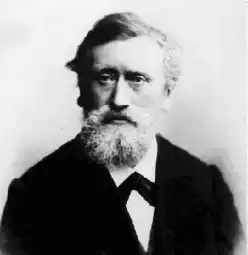
How much did the german historical school of economics influence the russian revolutionaries? Did they reject it or embrace some of it? I do know lenin "admired" the german empires economics system, and I do know bukharin wrote a critique or etc on it but besides that how much influence was there?

Blanquism
>Blanquism refers to a conception of revolution generally attributed to Louis Auguste Blanqui (1805–1881) that holds that socialist revolution should be carried out by a relatively small group of highly organised and secretive conspirators.<Blanquism is distinguished from other socialist currents in various ways: on the one hand, Blanqui did not believe in the predominant role of the proletariat, nor did he believe in popular movements—instead he believed that revolution should be carried out by a small group of professional, dedicated revolutionaries, who would establish a temporary dictatorship by force. This dictatorship would permit the implementation of the basis of a new order, after which power would then be handed to the people.
>In another respect, Blanqui was more concerned with the revolution itself rather than the future society that would result from it—if his thought was based on precise socialist principles. Blanquist thought rarely goes so far as to imagine a purely socialist society. For Blanquists, the overturning of the bourgeois social order and the revolution are ends sufficient in themselves, at least for their immediate purposes.
If the proletariat is not a viable revolutionary subject, maybe the revolutionary subject is the self selected revolutionary himself or a vanguard of likeminded people?
Why was Blanquism never persued in any significant way? Maybe Blanqui is the real thinker for our times if the Hegelian-Marxist notion of a revolutionary subject is dead?

Accessible Texts for Highschoolers
Don't ask how, but now I'm responsible for a club of high-schoolers that are self-described "baby leftists" and want to learn more. As far as I'm aware, they don't seem to be as lib-brained as I expected(though they certainly still are to some extent), so I really don't want to mess this up.Apart from the classic reading lists of /leftypol/, what are some other accessible texts(history especially, because some of the AP history and english teachers here are quite anti-communist even by lib standards and their curriculums reflect that) that I could give them and expect them to get through?
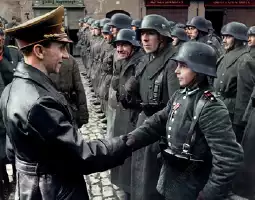
Nazis are such cowards that they flee the country and made their kids fight
You can't make this up.https://m.jpost.com/diaspora/antisemitism/the-werwolf-adolf-hitlers-group-of-terrorist-children-585868
http://thecasualobserver.co.za/a-footnote-to-history-boys-as-german-soldiers-during-ww2/
So in other words, while Hitler killed himself in his bunker, he deputized CHILDREN (no younger than 10 and on average, 14 was the most common age) to do his dirty work for him because he was losing? That's pretty fucking low. The first article states that in 1944, the Werwolf group had 5,000 members who were mostly Waffen SS/Gestapo, but in March 1945 they were almost gone as the SS was almost annihilated completely so that number shrunk significantly so they replenished their ranks with Hitler Youth. These boys will later go on to wage a guerilla war with America/Britain/France/the Soviet Union until their last territories were taken (the Black Forest and the Harz Mountains, which they lost jn 1947 and 1950). Among the people they killed in assassinations were Franz Oppenheim (anti-Nazi politician), Major John Poston (liaison officer of Field Marshal Bernard Law Montgomery), General Nikolai Berzarin (Soviet commander in Berlin who they killed during brutal street fighting in the city) and General Maurice Rose (the oldest Jewish officer in the US Army). And of course they used borrowed tactics from the Soviets in Ukraine.
What do you make out of all this? Was Hitler a coward? I gotta admit these kids were brave using those Panzerfausts and homemade rustic bombs. Not to mention garroting army sentinels with ropes. I think one of their main achievements was blowing up a school that was turned into a military base by tossing grenades through the windows. Many of them deserted Berlin while the ones that stayed got massacre'd.

When Friedrich Engels condemned rioting and looting
Comments on an "Anti-Capitalist" RiotFriedrich Engels
These excerpts are from letters written by Engels in the immediate aftermath of the February 1886 "West End Riots". The letter to Laura Lafargue is taken from Engels-Lafargue, Correspondence, Vol.1, 1959. The letters to Bebel are from Marx-Engels, Correspondence, 1846-1895, 1934, although the last two paragraphs from the 15 February letter have been translated from the German original in August Bebels Briefwechsel mit Friedrich Engels, 1965.
To Laura Lafargue, 9 February 1886
Our clever folks of the S[ocial] D[emocratic] Federation scorn to rest on their laurels. Yesterday they must needs interfere in a meeting of the unemployed – who count now by hundreds of thousands – in order to preach La Révolution, revolution in general, and ask the mass to hold up their hands, those who were ready to follow M. Champion wherever he would lead them to – well, to what he does not know himself. Hyndman, who can only overcome his personal cowardice by deafening himself with his own shouts, went on in the same strain.
Of course you know what a meeting at 3pm in Trafalgar Square consists of: masses of the poor devils of the East End who vegetate in the borderland between working class and Lumpenproletariat, and a sufficient admixture of roughs and 'Arrys to leaven the whole into a mass ready for any "lark" up to a wild riot à propos de rien [about nothing].Well, just at the time when this element was getting the upper hand (Kautsky who was there says das eigentliche Meeting war vorbei, die Keilerei ging los und so ging ich weg [the meeting proper was over, the brawling broke out and so I made off]), the wiseacres above named took these roughs in procession through Pall Mall and Piccadilly to Hyde Park for another and a truly revolutionary meeting. But on the road the roughs took matters into their own hands, smashed club windows and shop fronts, plundered first wine stores and bakers' shops, and then some jewellers' shops also, so that in Hyde Park our revolutionary swells had to preach "le calme et la modération"! While they were soft-sawdering, the wrecking and plundering went on outside in Audley St and even as far as Oxford St where at last the police intervened.
The absence of the police shows that the row was wanted, but that Hyndman and Co donnaient dans le piège [fell into the trap] is impardonable and brands them finally as not only helpless fools but also as scamps. They wanted to wash off the disgrace of their electoral manoeuvre, and now they have done an irreparable damage to the movement here.
To make a revolution – and that à propos de rien, when and where they liked – they thought nothing else was required but the paltry tricks sufficient to "boss" an agitation for any vile fad, packed meetings, lying in the press, and then, with five and twenty men secured to back them up, appealing to the masses to "rise" somehow, as best they might, against nobody in particular and everything in general, and trust to luck for the result.
Well, I don't know whether they will get over it so easily this time. I should not wonder if they were arrested before the week is out. English law is very definite in this respect: you may spout as long as you like, so long as nothing follows; but as soon as any "overt acts" of rioting ensue, you are held responsible for them, and many a poor devil of a Chartist, Harney and Jones and others, got two years for less. Besides, n'est pas Louise Michel qui veut [not everyone who wishes can be a Louise Michel].
To August Bebel, 15 February 1886
The Social Democratic Federation which, despite all self-advertising reports, is an extremely weak organisation – containing good elements but led by literary and political adventurers – was brought to the verge of dissolution at the November elections by a stroke of genius on the part of these same leaders. Hyndman (pronounced Heindman) the head of the society, had taken money from the Tories (Conservatives) at the time, and with it put up two Social Democratic candidates in two districts of London. As they had not even got any members in these two constituencies the way they would discredit themselves was to be foreseen (one got 27, the other 32 votes out of 4000-5000 respectively!)….
In the meantime unemployment was increasing more and more. The collapse of England's monopoly on the world market has caused the crisis to continue unbroken since 1878 and to get worse rather than better. The distress, especially in the East End of the city, is appalling. The exceptionally hard winter, since January, added to the boundless indifference of the possessing classes, produced a considerable movement among the unemployed masses.
As usual, political wire-pullers tried to exploit this movement for their own ends. The Conservatives, who had just been superseded in the government, put the responsibility for unemployment on to foreign competition (rightly) and foreign tariffs (for the most part wrongly) and preached "fair trade", i.e. retaliatory tariffs. A workers' organisation also exists which believes mainly in retaliatory tariffs. This organisation summoned the meeting in Trafalgar Square on 8 February. In the meantime the SDF had not been idle either, had already held some small demonstrations and now wanted to utilise this meeting.
Two meetings accordingly took place: the "fair traders" were round the Nelson Column while the SDF people spoke at the north end of the square, from the street opposite the National Gallery, which is about 25 feet above the square. Kautsky, who was there and went away before the row began, told me that the mass of the real workers had been around "fair traders", whilst Hyndman and Co had a mixed audience of people looking for a lark, some of them already merry. If Kautsky, who has hardly been here a year, noticed this, the gentlemen of the Federation must have seen it still more clearly. Nevertheless, when everybody already seemed to be scattering they proceeded to carry out a favourite old idea of Hyndman's, namely a procession of the "unemployed" through Pall Mall, the street of the big political, aristocratic and high-capitalist clubs, the centres of English political intrigue.
The unemployed who followed them in order to hold a fresh meeting in Hyde Park were mostly the types who do not want to work anyhow, hawkers, loafers, police spies, pickpockets. When the aristocrats at the club windows sneered at them they broke the said windows, ditto the shop windows; they looted the wine dealers' shops and immediately set up a consumers' association for the contents in the street, so that in Hyde Park Hyndman and Co had hastily to pocket their bloodthirsty phrases and go in for pacification.
But the thing had now got going. During the procession, during this second little meeting and afterwards, the masses of the Lumpenproletariat, whom Hyndman had taken for the unemployed, streamed through some fashionable streets near by, looted jewellers' and other shops, used the loaves and legs of mutton which they had looted solely to break windows with, and dispersed without meeting any resistance. Only a remnant of them were broken up in Oxford Street by four, say four, policemen….
In addition a prosecution has been brought against Hyndman and Co which is so weak that the intention is that it should come to nothing…. The gentlemen certainly told a lot of tall stories about the social revolution, which, in front of that audience and in the absence of any organised support among the masses, was completely stupid; but I can hardly believe that the government is so foolish as to want to make martyrs of them.
These socialist gentlemen want to conjure up a movement by force and over night, something that here as elsewhere necessarily takes years of work; though it is also the case that, once it is under way and imposed on the masses through historic events, it may develop far more quickly here than on the Continent. But people like these cannot wait, and this leads to childish actions such as we are usually accustomed to seeing only from the anarchists.
To August Bebel, 18 March 1886
As to Hyndman, the way he came out in Trafalgar Square and Hyde Park on 8 February has done infinitely more harm than good. Shouting about revolution, which in France passes off harmlessly as stale stuff, is utter nonsense here among the totally unprepared masses and has the effect of scaring away the proletariat, only exciting the demoralised elements. It absolutely cannot be understood here as anything but a summons to looting, which accordingly followed and has brought discredit which will last a long time here, among the workers too.
As to the point that is has drawn public attention to socialism, you people over in Germany do not know how utterly blunted the public are with regard to such methods after a hundred years of freedom of the press and of assembly and the advertising bound up with them. The first alarm of the bourgeois was certainly very funny and brought in about £40,000 in contributions for the unemployed – in all about £70,000 – but that has already been disposed of and nobody will pay more and the distress remains the same.
What has been achieved – among the bourgeois public – is the identification of socialism with looting, and even though that does not make the matter much worse, still it is certainly no gain to us.
http://www.whatnextjournal.org.uk/Pages/Back/Wnext19/Engels.html

I finally finished it, what a journey of a book
I have a lot of views on this book, but I couldn't reasonably explain everything i want to say about it just know it's not perfect and has a ton of issues with overgeneralization and misinformation but it has a lot of things to sayAlso one thing that stuck out to me were the implications of patriarchal nuclear families and social alienation along with parental abuse. How many marriages and broken down families today are byproducts of this outdatwd model and what can be expected in the future. Guess I'll have to wait and see

Anti-Stalin but Pro-Mao
The USSR during the Stalin Period was arguably marked by a general retreat of revolutionary forces in many regards. While some things; including the most progressive constitution in the world at the time; clearly illicit praise and support, it's generally hard to extend this level of support to many other projects. The mass deportation of Volga Germans, the mass deportations and dispossession of the peasantry (as the USSR underwent socialist primitive accumulation), and the eventual illegalization of homosexuality are clear signs that many social forces faced active regression. Obviously, not all of this was Stalin's fault, and the contingent of radical liberals who attempt to pin all of this on him personally are not worth really a minute of our time. However, with that in mind, it seems quite obvious that Stalin, despite his successes, obviously had major underpinnings and failures. And many of them become increasingly hard to support in the face of new archives, leaks, and the such.China also underwent it's own socialist revolution. Interestingly enough, Stalin pretty clearly helped in this one, backing Mao and giving them access and control of liberated Manchuria, no doubt a respectable deed. After the takeover of China, Mao didn't, despite even harsher circumstances in many cases, participate in a large level of social regression. The Cultural Revolution was a revolution within a revolution, the first of it's kind, and has lasting effects on China to this day. People in China don't revere the emperor's of old and Han Chauvinism, while existent, has generally been under control.
The reason i'm making this thread is because of a recent poll i've seen. People who support Stalin generally point out on how most polls in the former USSR regard him as a hero or one of it's greatest leaders. This doesn't really line up considering how the last Tsar of Russia, Nicholas, is usually rated not too far behind, often beating out Lenin (https://www.nbcnews.com/id/wbna25691312). It's even more concerning on how the White Army leader Kolchak is also rather popular in these polls (https://tsarnicholas.org/2019/12/08/nicholas-ii-stalin-and-lenin-top-popularity-rating-of-russian-historical-figures/).
So..is it really possible to be rather more critical of Stalin but be more pro-Mao? Mao's contributions to Marxist theory, including Mass Line, still hold alot more relevance then ever in this day and age. I can't say the same for Stalin.

the hardliner camp phenomenon and the actual history of socialist relations in the past
there has long been a tendency online that can only be described as 'vulgar hardline' – an attraction to superficially similar, hardline/'anti-revisionist' states that appear to be cut from the same cloth, but in reality were often opposed to one another.the main contemporary example would be the attitude that many self-proclaimed 'maoists' and 'anti-revisionist' MLs (they're virtually the same, one just primarily praises mao while the other stalin) have towards cuba and the dprk: they hate khrushchev, usually consider the ussr and co. post-1953/56 revisionist, but support historically pro-soviet cuba and the fence-sitting dprk. however during the cold war when socialist countries were plentiful and things were happening in real time; alliances more clearly defined and happenings more clearly understood by various followers in the west; maoists were highly critical of cuba, to put it lightly. to many, it was nothing more than a soviet sugar plantation helmed by a fascist puppet. the dprk was also disliked, but how intensely depended on how much of a red guard you were.
of course there are still those niche gonzaloites with more awareness of the maoist tradition, who continue this negative attitude towards castro and the kims, but for the majority of 'anti-revisionist' communists they're recieved very well.
this vulgar hardline position becomes even more confusing when we further examine actual relationships between the key 'BASED' hardline countries (china, albania, dprk, east germany) and their 'CRINGE' opposites (ussr post-stalin, yugoslavia, the broad cmea.) getting the obvious out of the way, east germany was naturally 100% ride and die soviet until gorbachev and considered fellow revisionists by maoists/hoxhaists of the time, but nontheless you do see plenty of corn critial characters who think the ossies went hard.
now on to the rest…
the dprk in the 60s was both pro-soviet and pro-chinese, depending on the present situation. here's a pro-soviet example from 1960: https://digitalarchive.wilsoncenter.org/document/journal-soviet-ambassador-dprk-am-puzanov-16-june-1960
and here's a pro-chinese example from 1966: https://digitalarchive.wilsoncenter.org/document/information-korean-workers-party
though a lot of what the wpk said wasn't overt, the stance against 'modern revisionism' they and others took at the time was a way to throw shade at the cpsu while not distancing themselves outright.
come the 70s however they were predominately pro-soviet since the chinese hated them – maoists considered kim a revisionist fatcat – and also rekindled a new positive relationship with yugoslavia. here are some excerpts taken from todor zhivkov following his talks with kim il-sung in 1973:
>We – [Kim] said – do not agree with China’s policy. It is incomprehensible to us. It is incomprehensible to us why they speak about Soviet socialist imperialism, that there is socialist imperialism in the Soviet Union. In the Soviet Union there is no socialist imperialism and there is no socialist imperialism at all. We do not share China’s idea about the two super states. We do not agree with their theories, which they spread in the past as well, about the blooming of all flowers, the contradictions in socialist society, the peasant communities, the Cultural Revolution, etc.
>During the Cultural Revolution, the Chinese set up along our border, which is 1,300 km long, loud speakers and they broadcast propaganda against our country day and night. The population along the border could not sleep. My son visited a village along the border at the time. When he came back he said, “Dad, I could not sleep a single night.”
>When the Chinese launched a military provocation along the Soviet border along the Amur and Ussuri Rivers, they launched a military provocation in our country too (he mentioned the name of the river and the village, but I could not remember them). The story that Kim Il Sung told was the following: In this village we had soldiers and armed villagers (along the border our people bear arms), about 50 people; and the Chinese penetrated into our country with 100 armed soldiers and officers. I was out in the country at the time (on Saturdays and Sundays I usually go out in the country and I read,) and they told me about this infiltration by the Chinese soldiers. I gave instructions to our people to let them in and not to shoot at them straight away. But, if they tried to advance further into our territory and carry out actions – our people were to block their way and capture at least five of them alive. The Chinese solders, however, penetrated into our territory and after that withdrew, without undertaking any action. There were similar, less significant, incidents in other places along the border, too.
despite this antagonism the dprk and china both supported the khmer rouge as most know, but guess who else had amicable relations with the them? yugoslavia!! omagad…
i don't think this has even bought up before on /leftypol/ despite the milking potential but i digress. the yugos clearly related to the treatment of cambodian freedum fighters by the soviet camp. here's what the khmer rouge had to say:
>“Like our Democratic Cambodia, Yugoslavia is a non-aligned country which has adhered to the position of preserving independence. Friendship between our two countries is therefore based on the same principle. We have always esteemed and respected Comrade President Tito and the friendly Yugoslav people. Comrade President Tito and the Yugoslav people have always supported and helped us. We have sympathy for them and wish to express our thanks to Comrade President Tito and the friendly Yugoslav people.”
now hoxha on the other hand hated pol pot, he considered a barbarous fascist, and albania was a firm supporter of pro-soviet vietnam. of course beyond the seemingly strange support for a soviet ally (similarly china supported romania for geopolitical reasons despite romanian socialism being materially the same as in the ussr) this seems pretty innocuous, but i feel it's worth mentioning albanian-cambodian relations because there seems to be a decent amount of pro-hoxha types who also support pol pot (see: leninisloveleninislife aka nomorelibs) and naturally despise tito.
anyway that concludes my post. this isn't intended to start any sectarian shitflinging, i mostly just wanted to get this stuff out there because it's COOL and INTERESTING fax. you can still support the dprk in current year and hate khrushchev i don't care, but hopefully this deters some of the ideology shopping people partake in where instead of ideologies it's states to support based on how wikipedia and pop history arbitrarily likens them.
pic unrelated btw.

Why mass line isn't the answer
Mao’s Contributions to Communist Theory and Human Emancipation Are Truly Profound—But the “Mass Line” Is Wrong
The Chinese revolution, and in particular the revolutionary upsurge of the Cultural Revolution in China (a revolution within socialist society itself!) and the role of Mao Zedong as the leader of that Cultural Revolution, in the 1960s and into the early 1970s, had a major positive impact on masses of people around the world. This included large numbers of oppressed people and educated youth in the U.S. The Red Book of quotations from Mao was in the hands of literally millions of people in countries all over the world, including in the U.S., as well as providing basic revolutionary orientation for the masses of people in China itself.
(I am speaking of the actual role of Mao and the essential emancipating character of the Cultural Revolution in China, not the crude distortions of this by people speaking out of gross ignorance and those anti-communist political functionaries engaging in deliberate and systematic distortion. A serious, scientific analysis of the necessity, the objectives, and the course of the Cultural Revolution in China—including the contradictions it was seeking to address and the contradictions characterizing the process of this Cultural Revolution—can be found in works of mine, and others, at revcom.us.)
Mao’s further development of communist theory was expressed in a number of dimensions, most of all in the understanding of the danger and basis for revolution to be reversed and capitalism restored in a socialist country—and the means for combating this, which was given concrete expression in the Cultural Revolution.
One significant aspect of Mao’s thought (and a chapter in the Red Book) was what Mao referred to as the “mass line.” This was taken up as a significant tool by those of us who, in those times, became not just revolutionary-minded in some general sense but revolutionary communists inspired and influenced above all by the Cultural Revolution in China. Yet, as has become clear in the decades since then, this concept of “mass line” is not correct and actually runs counter to Mao’s overall adherence to, and further development of, communist theory.
As I have learned in a continually deepening way, communist theory must be taken up and applied as a scientific method and approach to understanding and transforming reality. It must continually develop as the larger world continues to develop and change—and this must involve the ongoing interrogation of communist theory itself, in light of the accumulation of experience and knowledge, not just in the realm of revolutionary practice but in the broader dimensions of human endeavor, including the natural as well as the social sciences, the realm of art and culture, and so on. As part of this process—beginning after the defeat of the Cultural Revolution and the ending of the revolution overall in China, and the restoration of capitalism there after the death of Mao in 1976—I have been engaged in and leading a process of subjecting communist theory to critical scientific interrogation, including my own previous understanding of this theory in its development beginning with Marx (and Engels) and carried forward by Lenin and then Mao. The result has been the development of a new synthesis of communism—popularly referred to as the new communism—which is a continuation of, but also represents a qualitative leap beyond, and in some important ways a break with, communist theory as it had been previously developed. This has involved criticism and ultimately rejection of the “mass line” as a basic method and a means for carrying forward the communist revolution.
What Is Wrong with the “Mass Line”
In examining here how the “mass line” does not represent a correct, scientific method and approach to revolutionary strategy and policy, I am going to focus on the concentrated representation of Mao’s thinking about “mass line” in the Red Book of quotations from Mao.
In the chapter on the “mass line” in the Red Book, there are points of orientation that are definitely correct and important—for example, arguments against standing aloof from and having contempt for the masses of people, and criticism of attempting to carry out lines and policies without involving the masses. But the basic method of the “mass line” is contained in the following from Mao:
In all the practical work of our Party, all correct leadership is necessarily "from the masses, to the masses." This means: take the ideas of the masses (scattered and unsystematic ideas) and concentrate them (through study turn them into concentrated and systematic ideas), then go to the masses and propagate and explain these ideas until the masses embrace them as their own, hold fast to them and translate them into action, and test the correctness of these ideas in such action. Then once again concentrate ideas from the masses and once again go to the masses so that the ideas are persevered in and carried through. And so on, over and over again in an endless spiral, with the ideas becoming more correct, more vital and richer each time. Such is the Marxist theory of knowledge.
But, in fact, this is not the Marxist theory of knowledge. This theory of knowledge—as it was developed in the first place by Marx (working together with Engels), and has been further developed since—has drawn from a much wider range of experience and knowledge than “the ideas of the masses.” (And, in different works of Mao, addressing questions other than the “mass line,” he puts forward a more correct presentation of the actual communist theory of knowledge.) And, as I wrote in Breakthroughs: The Historic Breakthrough by Marx, and the Further Breakthrough with the New Communism, A Basic Summary (which is also available at revcom.us and as an e-book): The application of the “mass line” was not actually how Mao proceeded in a basic sense in developing lines, policies, and strategies in carrying forward the revolutionary struggle. That was mainly done by Mao on a scientific basis, and not by drawing from and then concentrating the ideas of the masses and returning that to them. It was done by Mao by analyzing the contradictions that had to be confronted and transformed—to quote Breakthroughs, it was done by “determining which contradictions were essential to concentrate on at a given time.”
(In a Note below, I have listed some of the major decisions by Mao regarding strategy and policy, during the course of the Chinese revolution—before and after the seizure of nationwide power in 1949—that were arrived at not through the application of the “mass line,” but on the basis of the method and approach that I have summarized in Breakthroughs, as cited here. And I have spoken not only to correct lines and policies that Mao led in adopting and applying, but also some secondary but significant erroneous lines and policies.)
To emphasize once more this important point, the “mass line”—“take the ideas of the masses (scattered and unsystematic ideas) and concentrate them (through study turn them into concentrated and systematic ideas), then go to the masses and propagate and explain these ideas until the masses embrace them as their own, hold fast to them and translate them into action, and test the correctness of these ideas in such action”—is not the means for arriving at a correct line (strategy, policy, etc.). This, again, is because taking the ideas of the masses as the starting point of lines and policies—and even a process of “concentrating” the ideas of the masses (“through study turn them into concentrated and systematic ideas”)—is too narrow a source of knowledge and too limited a process for arriving at a correct understanding of what needs to be done to advance the revolution and overcome the obstacles to that advance.
Here, I have to say that for some time I myself tried to render “more profound” what Mao says about the “mass line” by reinterpreting this to mean something like applying the scientific method of communism in a broad sense to concentrate what is correct in the ideas of the masses… there was just no help for it. No matter how you twist and turn it, the fact remains that the ideas of the masses—and even the most “advanced” ideas of the masses—are just too narrow a source, and “concentrating the ideas of the masses” too limited a process, for arriving at correct line and policy.
Tailing, Instead of Struggling Against, Backward Ideas Among the Masses
The following statement by Mao concentrates the essential problem with the “mass line:”
Twenty-four years of experience tell us that the right task, policy and style of work invariably conform with the demands of the masses at a given time and place and invariably strengthen our ties with the masses, and the wrong task, policy and style of work invariably disagree with the demands of the masses at a given time and place and invariably alienate us from the masses.
This statement—and this does get to the heart of the matter—is wrong, in terms of the theory of knowledge it puts forward and specifically in its basic assertion that “the demands of the masses at a given time and place” are the standard and criterion for whether lines and policies are correct (or not). It is one thing, it is important, to be aware and mindful of the sentiments of the masses (including the fact that those sentiments will not be “uniform” and static: different people among “the masses” will have different sentiments, and the sentiments of masses may significantly change with changing conditions). It is another thing—it is not a correct approach—to make the sentiments (or “demands”) of the masses the basis for communist policy at any given time.
The reality is that, under this capitalist-imperialist system (or any system of exploitation and oppression), the sentiments and demands of masses are to a very large extent shaped by the operation of this system—its economic system of exploitation, its social relations of oppression, and the political institutions and dominant culture that constantly and massively rationalize and reinforce this exploitation and oppression. (Even in socialist society, it will be the case that among the masses there will be ideas which still reflect, to varying degrees, the influence of exploitative and oppressive relations, which it is not possible to entirely eliminate within socialist society, and which will continue to characterize much of the world during what will be a protracted process of advancing to communism throughout the world.)
It is not hard to see how “taking the ideas of the masses” as the starting point for communist strategy, policy, etc.—and operating according to the standard that “the right task, policy and style of work invariably conform with the demands of the masses at a given time and place”—can easily lead to tailing very wrong ideas and “demands” that masses of people may have at any given time. More than a few communists have fallen precisely into this kind of tailing by applying the “mass line.” In opposition to that, one reason why it is important to be aware and mindful of the sentiments of the masses is that this is necessary in order to effectively struggle against sentiments and demands of (at least many of) the masses, in different situations—rather than simply seeking to “concentrate” the ideas of the masses at any given point. And here it is important to emphasize that it is possible to determine, and act in accordance with, what are the real objective interests of the masses of people—in particular situations and overall in fundamental terms—not by tailing the masses, but by making a scientific analysis, and applying that scientific analysis.
Resolving a Critical Contradiction—Between the Erroneous Concept of “Mass Line” and the Actual Basis for Advancing Communist Revolution
It is fortunate that applying the “mass line” is not how Mao actually developed the decisive lines—strategy, policy, etc.—in leading the Chinese revolution to victory in 1949 and then carrying forward the revolution, in the conditions of the new socialist society, reaching its highest peak in the Cultural Revolution, before this was reversed after Mao’s death in 1976. As emphasized above, in citing Breakthroughs, this was done by Mao by analyzing the contradictions that had to be confronted and transformed—by “determining which contradictions were essential to concentrate on at a given time.”
Yet, there is a critical contradiction here, between the actual method and approach Mao applied in developing line and policy, and what he puts forward in the “mass line” as the basis for doing this. This contradiction needs to be resolved—and can only be positively resolved—by adopting and systematically applying a scientific method and approach to understanding and transforming reality, in the development and application of a communist line (including strategy and policy at any given time), in opposition to the incorrect method and approach of “mass line.”
And this transformation of reality will include, as a very significant aspect, waging ideological struggle to transform wrong ways of thinking among masses of people, winning them to a revolutionary outlook and objectives, based on the scientific approach to reality which, in the main, has characterized communism from its beginning, and which has been further developed, in a more consistently scientific way, with the new communism.

Why would the vast majority of capitalists benefit from colonialism? They obviously benefit more from decentralized, competitive, non-monopolized supply chains, and keeping costs down isn't their only economic interest. Maybe I can get how the aristocracy and some settlers benefitted from it, but for the bourgeoisie as a whole, it just doesn't make sense. I don't like the vulgar "Marxist" attempt to connect European colonialism to the rise of capitalism, instead of seeing it as a more pre-capitalist historical attempt at accumulating mercantile wealth which was eventually overtaken by industrialization which itself catalyzed the century-long process of decolonization.

Cultural Revolution and Art
Another newfag thread. Interact with accordingly.Their is, unsurprisingly, a large contingent of the worlds population, still hinging on old Red Scare propaganda, that are convinced of many lies about the relationship between socialism and artistic freedom. Too them, socialists are violent fearmongers who will, at the first chance given, desecrate art, destroy art, and attempt to lead a truly bleak life. One confined purely to the factory or work, where 'labor' is everything, where the individuality of life is wiped out in an instant. Of course, we all understand here that capitalism is the force that sucks up our individuality in favor of making productive workers. Art is not something that can be usually seriously pursued: gone are the days when feudal lords used to commission artists for year long paintings, sculptures, and portraits. We live in an atomized society.
That's not the point. What is the point is that to decide that socialism and art are inherently polar and incompatible is a brainwashed way of thinking. This is most often applied, arguably, to our conceptions of the Cultural Revolution in China. We all have heard about the four olds: Old Ideas, Old Culture, Old Customs, and Old Habits. And people who have even a surface level understanding hear alot about the destruction of cultural heritage during the 10 year period. Modern China even refers to the Cultural Revolution as "Shi nian haoji". "Shi nian" means 10 years, referring to the period of which the Cultural Revolution is generally regarded as lasting. "Haoji" is ambiguous, but generally can refer to the term "holocaust" in modern settings: destruction by fire. Images of a human horde (orientalist hogwash) destroying valuable historical pieces of art come to mind and are used today in the US to scare conservatives over the spectre of vague 'modern art'.
The accusation of destruction of culture and tradition during those 10 years, which i'll be examining, is incredibly overblown in face of the massive artistic achievements and leaps in cultural creativity during the event. An excerpt from "The Battle For Chinas Past: Mao and the Cultural Revolution", page 28.
>Take the example of the fine arts. During the Cultural Revolution years of 1972 to 1975 China held four national fine arts exhibitions, with more than 2,000 pieces of art selected from 12,800 works recommended from all over China. The exhibits in Beijing attracted an audience of 7.8 million, a scale never reached before the Cultural Revolution (Lu Hong 2002). According to Lu, the four exhibitions showed three characteristics: new ideological content, new subject matters, and a rise of amateur artists (65 per cent of exhibited works were created by amateur's). These artworks included oil paintings, Chinese traditional paintings, print paintings, sculpture, Spring Festival paintings (nian hua), picture storybook paintings (lianhuan hua), charcoal drawings, watercolours and paper cuts.
This even extends to literature. From that same page:
>Another myth created and accepted, at least by non-academic community, in the west is that during the Cultural Revolution people were forbidden to read anything except Mao's little Red Book. This portrayal of China as a cultural wasteland is absolutely false. By 1976 there were 542 official magazines and journals and 182 newspapers in circulation throughout China; the number of cinemas and film units had increased from 20,363 to 86,088 in 1976; public libraries, from 577 to 768; and museums, from 214 to 263 (Qiu Deshend et al. 1993).
An excerpt from Mao's conversations with his niece:
>Hai-jung: But there is the son of a cadre who doesn’t do well. In class he doesn’t listen attentively to the teacher’s lecture and after class, he doesn’t do homework. He likes to read fiction. Sometimes he dozes off in the dormitory and sometimes he doesn’t attend the Saturday afternoon meeting. On Sunday he doesn’t return to school on time. Sometimes on Sunday when our class and section hold a meeting, he doesn’t show up. All of us have a bad impression of him.
>Chairman: Do your teachers allow the students to take a nap or read fiction in class?
>We should let the students read fiction and take a nap in class, and we should look after their health. Teachers should lecture less and make the students read more. I believe the student you referred to will be very capable in the future since he had the courage to be absent from the Saturday meeting and not to return to school on time on Sunday. When you return to school, you may tell him that it is too early to return to school even at eight or nine in the evening, he may delay it until eleven or twelve. Whose fault is it that you should hold a meeting Sunday night?

Hey /leftypol/. Why does proletarian organization even matter (except of ethical considerations), if revolutionary development of society is determined by the fact of productive forces expanding and destroying the previously established property relations? I mean, yes, exploitation is horrible, but it's not solidarity of serfs that ended the Middle Ages? By this logic, shouldn't communists focus on pushing technological development to pump the productive forces to drive the bourgeoise property relations to the revolutionary breaking point? Sorry if this is a common question that arises during studies of Marx, just wanted to hear your opinions - or you can just refer me to a secondary source, would be thankful otherwise! Cheers.
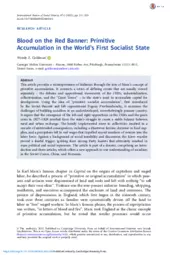
Primitive Accumulation in the USSR
newfag thread; engage with accordingly, and point out any level of moronocyThe USSR engaged in huge amounts of primitive accumulation that was no different then what bourgeois governments; especially those of England and France; engaged in. If anything, the parallels are comically striking, especially after the fall of the NEP (New Economic Programme) and the failure to develop a solid alternative. The USSR under Stalin lead arguably one of the largest and most efficient attempts at primitive accumulation in history. And while they arguably helped create the economy that ended up beating the Nazi menace, the path there was mired in nothing but bloodshed.
First, some background: the NEP had offered the USSR a significant rebound from the civil war conditions of War Communism. While richer peasants continued to hoard and manage a significant amount of grain, the ability to sell it on a market let prices generally lower and allowed for some form of access to food, cooling the woes. However, in 1928, the situation fell apart. From PDF:
>In fall 1928, the economic situation grew worse. Harvest collections fell again, and the price of food and grain on the free market shot up. Workers’ riots intensified, and peasants, spooked by earlier confiscations, reduced their sown area. In early 1929, V.M. Molotov and Stalin visited the Urals and Siberia to oversee grain collections, impose delivery quotas on kulak households, and arrest hoarders. These “extraordinary measures”, extended throughout the country, allowed the state to meet its procurement and export targets.
The collectivization campaigned that followed, however, was not just hurt by the clear backwardness of the peasantry (especially the clerics), but by a rushed decision.
> That summer, an emboldened Party mobilized 25,000
workers to go into the villages to organize collective farms. The hasty decision, made under pressure of urban strikes and rural disturbances, produced a cascade of unanticipated consequences. Neither Party leaders nor worker activists were prepared for the intensity of resistance. Rumors swept the countryside. Angry, frightened peasants slaughtered rather than collectivize their livestock, and village priests warned that the Apocalypse was at hand.
This isn't totally Stalin's fault; this was well aided by the internal peasant woes by all means; but the fact of the matter is that the hasty plan to collectivize lead to a major panic. A year later, the plan to liquidate the Kulak Class went underway, with over 1.7 million people exiled, including non kulaks, to outposts, new towns, and special settlements, often in increasingly useless locations (the forest, tundra, wasteland, etc). This entire process is literally just primitive accumulation here, mass dispossession of the peasant class in trying to make way for a new foundation of social relations. Thousands of peasants who left these settlements were left much like the English counterparts of the 1700's; forced to wander the countryside, masking there identity, in search of new housing and work.
That was also cut short. Between 1929 and 1932, nearly 11 million people entered the workforce, a huge sum. That jump was over double the original number of people in the workforce. Stalin then proceeded to issue internal passports, meant to stem the flow of migrant workers. In 1724, Peter the Great had done the same, in preventing peasants from entering his vast new work projects. They had been abolished by the Bolshevik's in 1918; their reintroduction in 1932 was "a reversal of all previous revolutionary programs".
>The Soviet state apparatus quickly found the passport system a useful means of control and discipline. It slowed the influx of peasants to the cities, reduced labor turnover, and helped purge the towns of dispossessed kulaks, private traders, people deprived of voting rights, criminals, and vagabonds. Factory directors were encouraged to comb their personnel records to ensure that outcast groups were not “masquerading” as workers.

are there any fringe socialist facts you know
For example, did you know that the Gulag myth (the one of forced labor) originated in the 1920s in Finland and Sweden. Soviet lumber industry outperformed the Scandinavians and out-competed it on the European market. They then slandered the Soviet republic.
In a capitalist mode of production, scientists are downstream from economics. They are merely workers hired to produce a commodity called research. In capitalism the seller of a commodity (whether that commodity is a good, a service, or labor power) doesn't have the power to tell the buyer (whether end consumer or capitalist) what to do with it. Since it is the capitalist (or their bourgeois representatives in government) who are buying the research (labor commodity) from the scientists (workers), they can use the knowledge in the research however they like. They can withhold it from the public. They can use it to make weapons. Under capitalism, no matter how strictly a scientist obeys the scientific method, or how consistent their personal set of ethics are, they are at the end of the day, merely workers hired in a capitalist mode of production. This is why liberal appeals to "science, logic, and reason." fall flat under capitalism. It is the bourgeoisie who decide what to do with the knowledge (commodity) produced by scientific research (labor).

Pascal’s Wager is the best argument for Christianity and is only said to be the worst by those who have not read Pascal. Pascal in his Pensées shows why other religions are false and shows why Christianity is the true religion so the common objection against his wager is wrong.
There are too many unanswered questions in the universe to take a chance on eternal hell.
The cosmological argument. Why is there something rather than nothing? The only explanations from atheists are supernatural explanations. Silly reddit sci-fi explanations like multiverses and eternal universes both of which are not shown in nature at all and are just as likely as a creator of the universe existing.
DNA is which is more complicated and structured than you can possibly imagine created out of stardust for the first microbes in the universe. Consciousness. Where does it come from? Quarks? All this created randomly from nothing? It’s a bigger leap to say the Big Bang, DNA for microbes, consciousness, and everything else in the universe came out of nothingness and random chaos. All of it seemingly so perfected crafted where even a centimeter of difference would mean nothing would exist in the universe. Really. How does something so perfectly crafted and complicated as DNA come out of nothingness and stardust for microbes and every living thing on the universe?
None of this means you have to be absolutely 100% sure a God exists. It’s just enough of a doubt that it’s worth trying to find faith in God.
Think of it like percentages. 20% from the cosmological argument. 20% from the teleological argument. 20% from the argument of beauty. All of these arguments combine into a reason to justify having faith without evidence.
_
If there is a God, He is infinitely incomprehensible, since, having neither parts nor limits, He has no affinity to us. We are then incapable of knowing either what He is or if He is….
…"God is, or He is not." But to which side shall we incline? Reason can decide nothing here. There is infinite chaos that separated us. A game is being played at the extremity of this infinite distance where heads or tails will turn up. What will you wager? According to reason, you can do neither the one thing nor the other; according to reason, you can defend neither of the propositions.
Do not, then, reprove for error those who have made a choice; for you know nothing about it. "No, but I blame them for having made, not this choice, but a choice; for again both he who chooses heads and he who chooses tails are equally at fault, they are both in the wrong. The true course is not to wager at all."
Yes; but you must wager. It is not optional. You are embarked. Which will you choose then? Let us see. Since you must choose, let us see which interests you least. You have two things to lose, the true and the good; and two things to stake, your reason and your will, your knowledge and your happiness; and your nature has two things to shun, error and misery. Your reason is no more shocked in choosing one rather than the other since you must of necessity choose. This is one point settled. But your happiness? Let us weigh the gain and the loss in wagering that God is. Let us estimate these two chances. If you gain, you gain all; if you lose, you lose nothing. Wager, then, without hesitation that He is.

I have suggested before writing a shorter Edition of Capital aimed at the working class. I was mocked for this idea. People said that Capital is "perfect" and that it cannot be made shorter. People said that I "think workers are too stupid to read" (I do not think that). People said that I "think I am smarter than everyone" (I do not think that, in fact I was requesting help in writing such a work). People seemed obsessed with the idea that if a plainspoken version were available, it would ruin the original, even though the original is widely available.
Despite all this, I have found that in an 1868 letter Engels suggested the very same thing to Marx.
Is it not evident, then, that such an idea is not only not stupid, but of the utmost necessity for spreading and popularizing Marx's very important ideas?

The Denial of Death
The Denial of Death - Ernest BeckerThe premise of The Denial of Death is that human civilization is ultimately an elaborate, symbolic defense mechanism against the knowledge of our mortality, which in turn acts as the emotional and intellectual response to our basic survival mechanism. Becker argues that a basic duality in human life exists between the physical world of objects and biology, and a symbolic world of human meaning. Thus, since humanity has a dualistic nature consisting of a physical self and a symbolic self, we are able to transcend the dilemma of mortality by focusing our attention mainly on our symbolic selves, i.e. our culturally based self esteem, which Becker calls “heroism”: a “defiant creation of meaning” expressing “the myth of the significance of human life” as compared to other animals. This counters the personal insignificance and finitude that death represents in the human mind.
Such symbolic self-focus takes the form of an individual's "causa sui project," (sometimes called an “immortality project,” or a “heroism project”). A person’s "causa sui project” acts as their immortality vessel, whereby they suscribe to a particular set of culturally-created meanings and through them gain personal significance beyond that afforded to other mortal animals. This enables the individual to imagine at least some vestige of those meanings continuing beyond their own life-span; thus avoiding the complete “self-negation” we perceive when other biological creatures die in nature. [4] By being part of symbolic constructs with more significance and longevity than one’s body—cultural activities and beliefs—one can gain a sense of legacy or (in the case of religion) an afterlife. In other words, by living up to (or especially exceeding) cultural standards, people feel they can become part of something eternal: something that will never die as compared to their physical body. This feeling that their lives have meaning, a purpose, and significance in the grand scheme of things i.e. that they are “heroic contributors to world life” and thus that their contributions last beyond their biological lifespan is what’s referred to as an “immortality project.”
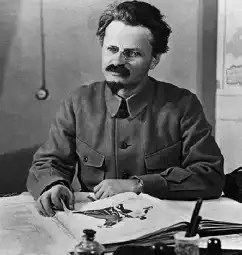
Trotskyism
How exactly would you define Trotskyism? How exactly would you summerise it's key differences from other Left wing political positions?From my understanding most people here are Marxist-Leninsts, and even those who aren't certainly don't seem to look favourably at Trotsky.
So in your view what was wrong with Trotsky's ideas, and with the modern Trotskyists?

/Ultra/ - Left-com General
I couldn't find any left-com threads in the catalogue so I decided to make my own.Also, can we get some flags to differentiate between the only 3 left-com internationals? The current left-com flag is that of the PCInt and Bordigism.
I suggest for Damenites use the ICT logo and for the whatever ideology the ICC is use the guy with the hammer.
I know the council coms have a pancake flag but I think the logo on the council-communist reader goes hard. Just a thought.

Reactionary Thinkers: Eric Voegelin
you're just a GNOSTIC!!!1! - Eric VoegelinIt's important to examine the the thought of reactionary thinkers. So here I present Eric Voegelin, buddy of Hayek, and conservative thinker.
Essentially his whole thesis is that Marx, Nietschze, and Scientific Positivists are "gnostics". and that Marx was a "speculative gnostic".
>Voegelin understood "gnosis" as a purported direct, immediate apprehension or vision of truth without the need for critical reflection; the special gift of a spiritual and cognitive elite and 'Gnosticism' as a type of thinking that claims absolute cognitive mastery of reality. Relying as it does on a claim to gnosis, gnosticism considers its knowledge not subject to criticism. Gnosticism may take transcendentalizing (as in the case of the Gnostic movement of late antiquity) or immanentizing forms (as in the case of Marxism).
And basically that modern thinkers, by rejecting metaphysics and the origins of things (God) were unconsciously self deceptive but what sets apart Nietschze and Marx is that they were self aware of the self deception and therefore consciously "demonic" or "demono-maniacal".
>Voegelin's work does not lay out a program of reform or offer a doctrine of recovery from what he termed the "demono-maniacal" in modern politics. However, interspersed in his writings is the idea of a spiritual recovery of the primary experiences of divine order. He was not interested so much in what religious dogmas might result in personal salvation but rather a recovery of the human in the classical sense of the daimonios aner (Plato's term for "the spiritual man"). He did not speculate on the institutional forms in which a spiritual recovery might take place but expressed confidence that the current 500-year cycle of secularism would come to an end because he stated that "you cannot deny the human forever."
vidrel is a catholic workers/left wing catholic's take on Voegelin.
According to his critics:
>Eugene Webb criticized Voegelin's conception of gnosis and his analysis of Gnosticism in general. In the article "Voegelin's Gnosticism Reconsidered," Webb explained that Voegelin's concept of Gnosticism was conceived "not primarily to describe ancient phenomena but to help us understand some modern ones for which the evidence is a great deal clearer." Webb continues, "the category (of Gnosticism) is of limited usefulness for the purpose to which he put it… and the fact that the idea of Gnosticism as such has become so problematic and complex in recent years must at the very least undercut Voegelin's effort to trace a historical line of descent from ancient sources to the modern phenomena he tried to use them to illuminate."
<Because Voegelin applied the concept of gnosis to a wide array of ideologies and movements such as Marxism, communism, National Socialism, progressivism, liberalism, and humanism, critics have proposed that Voegelin's concept of Gnosis lacks theoretical precision. Therefore, Voegelin's gnosis can, according to the criticis, hardly serve as a scientific basis for an analysis of political movements. Rather, the term "Gnosticism" as used by Voegelin is more of an invective just as "when on the lowest level of propaganda those who do not conform with one's own opinion are smeared as communists."
what does leftypol think of this line of thought? Why do reactionaries always go to "marxism is satanic and communist are trying to replace God by making a heaven on Earth"?

The Workers Movement And Socialist Movement Are No Way Identical By Nature
Was reading Camatte and came across this quote by Kautsky. The point being that workers unionizing is no real threat to capitalism as it can always reduce any negating power of the movement by incorporating it and reducing it to reformist cuckoldry.So is it true? Are workers unions easily incorporated by capitalism and reduced to mild reformism which just keeps capitalism alive? Why then is there such a large support from radlibs here for unions when they do not have any real revolutionary potential by themselves? What's a better alternative, or actual revolutionary unions?
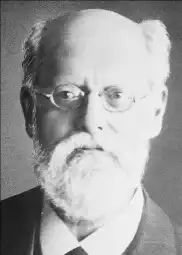
What did Kautsky mean with this?
I was reading a double print of Communism & Terrorism (by Kautsky and Trotsky) and got to this part>"The bourgeoisie…appears in the Soviet Republic as a special human species, whose characteristics are ineradicable. Just as a uyghur remains a uyghur, a Mongolian a Mongolian, whatever his appearance and however he may dress; so a bourgeois remains a bourgeois, even if he becomes a beggar, or lives by his work….
Just WHAT the fuck did he mean with this?
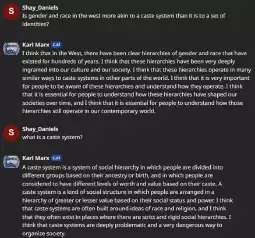
Distinguish Caste From Class
This feels like a thread that needs to be made because the left in general has a lot of difficulty wrapping their heads around what a caste is and why it isn't the same as class. Caste oftentimes looks like it's the same as class but it is not.Caste follows these criteria;
>it is assigned at birth, and oftentimes impossible to change unless certain circumstances like biracialism or inter-caste marriage occur
>marriages and relationships are often not seen as valid unless certain criteria are met, such as the marriage being between people of the same caste, or the lower caste is the marriage-property of a higher-caste person, such as being a member of a harem or being a woman in a patriarchical caste system where only heterosexual marriages are recognized as valid
>upper caste people usually get their legitimacy from the social perception that their rule is ordained by god and that they are destined to rule over the lower castes because they are naturally superior beings
>lower castes are said to be spiritually unclean, and this unclean nature is difficult to describe besides that they are subhumans who live in filth. this reflects in their social roles, which usually involves working in industries and professions considered too disgusting or spiritually destructive for the higher caste to perform, or in the case of gender, these roles manifest as strict gender roles (e.g. "barefoot and pregnant")
>caste is socially constructed whereas class is economically constructed and usually more fluid
There is a lot to be said about castes, but the main thing is that the left often conflates race and gender minorities as being "lower class". We increasingly are seeing that this is not always true, yet the stigmas surrounding race and gender remain. Why? Liberalism insists that racism and gender discrimination are determined only by individual attitudes, and that attitude adjustments and language policing are the highest priority in eliminating racial or gender discrimination. However what we have seen is that the bourgeoisie has a tendency that counteracts these efforts by utilizing caste discrimination to keep people divided, even when the upper echelons of businesses now put a lot of effort into DEI, ESG and HR to counterbalance previous forms of discrimination, usually by just reversing the roles of the caste system rather than abolishing them.
My belief is that trans people and immigrants represent the untouchable caste, which even caste countries usually deny is a caste that exists.

Is the confusion and delay brought about by competing languages, competing definitions, and the overuse of metaphor an insurmountable obstacle? Or will there in time be a universal way of speaking? Gramsci didn't seem to think so:
From Antonio Gramsci - The Modern Prince and Other Writings
>In the Study it is noted that the terms “immanence” and “immanent” are certainly used in Marxism, but that “evidently” this use is only “metaphorical.” Very good. But has he in any way explained what immanence and immanent mean “metaphorically?” Why have these terms continued to be used and not replaced? Purely out of a horror of creating new words? Usually when one new conception of the world succeeds another, the earlier language continues to be used but is used metaphorically. All language is a continuous process of metaphors, and the history of semantics is an aspect of the history of culture: language is at the same time a living thing and a museum of the fossils of life and civilization. When I use the word disaster no one can accuse me of astrological beliefs, and when I say “By Jove,” no one can believe that I am a worshiper of the pagan divinity; nevertheless, these expressions are a proof that modern civilization is a development of both paganism and astrology. The term “immanence” in Marxism has its precise meaning which is hidden in the metaphor and this must be defined exactly; in reality this definition would truly have been “theory.” Marxism continues the philosophy of immanence, but rids it of all its metaphysical trimmings and leads it on to the concrete basis of history. The use is metaphorical only in the sense that the former immanence is superseded, has been superseded, although it is still presupposed as a link in the process of thought from which the new link has been born. On the other hand, is the new concept of immanence completely new? It appears that in Giordano Bruno, for example, there are many examples of such a new conception; Marx and Engels knew about Bruno. They knew about him and there remain traces of Bruno’s works in their notes. Conversely, Bruno was not without influence on classical German philosophy, etc. Here are many problems in the history of philosophy which could be usefully examined.
>The question of the relationship between language and metaphor is not simple, far from it. Language, however, is always metaphorical. If it is perhaps not correct to say that every statement is metaphorical in respect of the thing or the material and tangible object indicated (or the abstract concept), since that would broaden too much the concept of metaphor, it can still be said that present-day language is metaphorical in respect of the meanings and ideological content which the words have had in earlier periods of civilization. A book on semantics—that of Michel Bréal, for example—provides an historically and critically reconstituted catalog of the semantic changes of certain groups of words. Many errors both in the field of learning and of practice derive from not taking account of this fact, in other words from not having a critical and historical view of the phenomenon of language: (1) An error of an aesthetic character, which today is being to some extent corrected but which was in the past a ruling doctrine, is that of regarding as “beautiful” in themselves certain expressions as distinct from others in so far as they are crystallized metaphors; the rhetoricians and grammarians swoon at certain words, in which they discover who knows how much virtue and abstract artistic essence. The very bookish philologist’s word “joy,” which suffers agonies as a result of certain etymological or semantic analyses, is actually confused with artistic delight: recently we had the pathological case of Language and Poetry by Giulio Bertoni. (2) A practical error which has many followers is the utopian idea of a fixed universal language. (3) An arbitrary tendency towards absurd word innovations, which arises from the problem posed by Pareto and the pragmatists regarding “language as the cause of error.” Pareto, like the pragmatists in so far as they believe that they have created a new conception of the world, or at least that they have originated a certain science (and that they have therefore given words a new significance or at least a new shade of meaning, or that they have created new concepts), finds himself faced with the fact that traditional words, especially those in common use, but also those used by the cultured classes and even those used by specialist groups dealing with the same science, continue to keep their old meaning despite the innovation of content, and this has reactions. Pareto creates his own “dictionary,” demonstrating his aim of creating his own “pure” or “mathematical” language. The pragmatists theorize abstractly about language as the cause of error (see G. Prezzolini’s little book). But is it possible to rid language of its broad metaphorical meanings? It is impossible. Language is transformed together with the transformation of the whole of civilization, through the flowering into culture of new classes, through the hegemony exercised by one national language on others, etc., and in point of fact continues to use metaphorically the words of preceding cultures and civilizations. No one today thinks that the word “dis-aster” is bound up with astrology, and those who use it in this way are considered to be wrong. In the same way an atheist can speak of “disgrace” without being thought a follower of predestination, etc. The new “metaphorical” significance broadens with the broadening of the new culture, which, on the other hand, also coins new words and borrows words from other languages and uses them with a precise significance, i.e. without the broad aura they had in the original language. So it is probable that the term “immanence” is known, understood and used by many people for the first time only in the new “metaphorical” significance given to it by Marxism.

Microeconomics of money
1) What is the opportunity cost of using money for exchange?2) What is the opportunity cost of NOT using money for exchange?
3) What does it look like when the opportunity cost of NOT using money for exchange exceeds the opportunity cost of using money for exchange, and vice versa?
4) What are instances in world economic history when using or NOT using money for exchange would've been more useful than the alternative.

why does Marxism keep having separate definitions for words from how they're commonly used? isn't this confusing?
>In Marxism "science" doesn't mean the empirical method and the accompanying peer review process of testable explanations and predictions. No. It just means anti-utopian.
>In Marxism "revising" doesn't mean coming back to an earlier work and updating it based on new information. It means betraying the "immortal" anti-utopian "science" by doing a deviation.
>In Marxism "productive" labor doesn't refer to whether labor is useful, but whether it makes a profit.
Is this just a result of poor translation from German to English or did Marx decide to come up with his own vocabulary that overwrote existing words with new contexts? Shouldn't he have coined neologisms instead, to avoid overwriting existing words with new confusing definitions?

Market Socialism's origins
*1930s Yugoslav communist factional disputes*>Be some random Montenegrin communist.
>Get thrown in Mitrovica prison by the royal government.
>Share your seething hatred of the Yugoslav peasantry with other communists in that prison.
>Sperg out at Andrija Hebrang for opposing your peasant-melting goals.
>Legit just be the worst, but somehow you become the leader of a large faction.
>MFW it includes Milovan Đilas and Aleksandr Ranković.
>Tito sends you off to Moscow to get shot, but integrates your closest followers into the KPJ Politburo and gets influenced by them.
>You may have been killed, but your ideas will outlive you for generations.
>It's ww2 now.
>Your former followers continue your legacy, already in 1941 they are not only supporting confescation of upper, middle and lower peasantry's land and grain, but are actively burning down whole villages, turning them from neutrality to anti-communism.
>MFW it's literally a repetition of war communism idiocy but applied in Yugoslavia.
>Eventually the policy backfires so hard they are forced to dial it back a little bit and are punished by Tito.
>MFW the punishment is just a stern talking down and your former followers (Ranković, Đilas, Kidrič, Milutinović) remain on their posts.
>The party "compensates" for it's anti-peasant BS by bringing in "former" liberals into leadership positions in the partisan movement (Drago Marušič, Vladimir Nazor).
>Eventually ww2 is over and the majority of the country gives it's full trust to Tito.
>Immediately most of the party tries to expropriate from the peasantry again, right after a devestating world war.
>Your former followers' actions get so extreme even ComInform look like Bukharinists by comparison.
>Party members who oppose the hasty collectivzation are killed or jailed and labelled as "Ustaša/Četnik" "Stalinists".
>MFW half of those purged weren't even stalinists, just old party veterans who werent completely devoted to Tito (Labud Kusovac, Dragotin Gustinčič, Ivo Marić, etc.).
>The split with other EE communist parties turns Yugoslav diplomacy towards the west.
>This includes partially privatizing the economy back, which is post-hoc justified as "workplace democracy".
>Somehow your former followers convince the world that they were the "real communist moderates".
Seriously how the fuck did this happen?

Is the siege mentality revolutionary or reactionary?
I have a very strong belief that the prevailing ideology in existing late-stage capitalism is the siege mentality. Literally every identity group feels as if they are under siege. Everyone believes they are being specifically targeted by some grand evil force that wants to destroy them.We see it with Black folks in America who are still being systematically ghettoized and terrorized by the police. We see it with middle-class whites who are seeing their middle-class way of life slowly deteriorate. We see it with queer folks who are constantly combating anti-trans laws and other forms of discrimination, yet we also see it with queerphobes who truly believe there's a conspiracy to turn kids gay or trans. We see it strongly with the disabled who believe everyone wants to commit eugenics against them. We see it with nearly every single religious group (Christians, Muslims, Jews, Hindus, even atheists/seculars). The left adheres to it and the right adheres to it. Even sex workers have an extreme siege mentality.
So my questions for discussion are:
1. What is the best materialist explanation for why the siege mentality has emerged so heavily in our modern age? Is it social media? Capitalism collapsing on itself? An overarching feeling of uncertainty about the future? The failure of the 60s New Left? Or something else?
2. Is the siege mentality revolutionary, or is it fundamentally reactionary? On one hand, you could see it as false consciousness, or something which creates highly tribalist feelings. On the other hand, the siege mentality enables someone to see through the bullshit of modern society and become highly ideologically driven.
PS – I am NOT a grad student writing a dissertation on this subject.

Some thoughts on volume 1 of the second sex
after a few days of reading i got past the first part and I have some thoughts i wanted to share about the almost 750 page piece.>the good parts
coming in i didnt have high expectations for what the book would turn out as as it continued but i found it to be quite interesting, simon presented alot of ideas on the sentiments of males in pre second wave feminist societies but the idea i found most interesting were her views on what actually made women "the other" in the eyes of males at that time. the answer was subjective to the person, much like in her section that detailed the varying roles and levels of freedom women have had throughout history in several parts of the planet what femininity was percieved as was also subjective and the idea that women must be subjegated to their husbands and treated as objects was a christian one that stemmed from the book of genesis, hold on this is going for too long.

I don't get it - (Materialism, Objectivity and Metaphysics)
Can someone please dumb this down for me?>The concept of “objective” in metaphysical materialism appears to mean an objectivity which exists even outside of man, but to assert that reality would exist even if man did not exist is either to state a metaphor or to fall into a form of mysticism. We know reality only in its relations with man, and just as man is an historical process of becoming, so also knowledge and reality are a becoming, and objectivity is a becoming, etc.
>Engels’ expression that “the materiality of the world is demonstrated by the long and laborious development of philosophy and the natural sciences” needs to be analyzed and made precise. By science does he mean the theoretical or the practical-experimental activity of the scientists or the synthesis of the two activities? In this we could be said to have the typical unitary process of reality, in the experimental activity of the scientist which is the first model of the dialectical mediation between man and nature, the elementary historical cell by which man, putting himself into relation with nature through technology, knows it and controls it. Undoubtedly, the promulgation of the experimental method separates two worlds of history, two epochs, and begins the process of the dissolution of theology and metaphysics and the development of modern thought, whose crowning is Marxism. Scientific method is the first cell of the new method of production, of the new form of active union between man and nature. The scientist-experimenter is also a worker, not a pure thinker, and his thought is continually controlled by practice and vice versa, up to the point where a perfect unity of theory and practice is formed.
>The neo-scholastic Mario Casotti (Teacher and Scholar) writes: “The researches of the naturalists and the biologists presuppose an already existing life and real organism,” an expression which comes near to that of Engels in Anti-Dühring.
>The agreement between Catholicism and Aristotelianism on the question of the objectivity of reality.
>In order to understand exactly the possible significance of the problem of the reality of the external world, it may be useful to develop the example of the notions of “East” and “West” which do not stop being “objectively real” even if on analysis they prove to be nothing but conventions, i.e. “historico-cultural constructions” (often the terms “artificial” and “conventional” indicate “historical” facts, produced by the development of civilization and not just rationally arbitrary or individually artificial constructions). The example given by Bertrand Russell in his little book should be recalled. Russell says roughly the following: “Without the existence of man on earth, we cannot think of the existence of London and Edinburgh, but we think of the existence of two points in space where London and Edinburgh are today, one to the North and the other to the South.” It could be objected that without thinking of the existence of man one cannot think of “thinking,” one cannot think in general of any fact or relationship which exists only in so far as man exists. What would North-South or East-West mean without man? These are real relationships but nevertheless they would not exist without man and without the development of civilization. It is evident that East and West are arbitrary, conventional, i.e. historical, constructions, because outside real history any point on the earth is East and West at the same time. We can see this more clearly from the fact that these terms have been crystallized not from the point of view of man in general but from the point of view of the cultured European classes who, through their world hegemony, have made the terms evolved by themselves accepted everywhere. Japan is the Far East not only for Europe but perhaps also for an American from California and for the Japanese themselves, who through English political culture will call Egypt the Near East. Thus through the historical content which has been compounded with the geographical term, the expressions East and West have ended by meaning certain relationships between complexes of different civilizations. So Italians often speak of Morocco as an “oriental” country, in order to refer to its Muslim and Arab civilization. However, these references are real, they correspond to real facts, they will allow one to travel over land and sea and reach a known destination, to “foresee” the future, to objectivize reality, to understand the objectivity of the external world. The rational and the real are identified.
>It seems that without understanding this relationship one cannot understand Marxism, its position vis-à-vis idealism and mechanical materialism, and the importance and significance of the doctrine of the superstructure. It is not correct to say that in Marxism the Hegelian “Idea” is replaced by the “concept” of
structure, as Croce asserts. The Hegelian “Idea” is resolved into the structure as much as into the superstructures and the whole method of conceiving
philosophy has been “historicized”; in other words, the emergence of a new kind of philosophy, more concrete and historical than its predecessor, has begun.
He's saying that to say that something is "south" of something is an objective fact, but relies on human understanding of reality. But the two points still existed in different areas, that would be objective fact even if no humans existed, no? Would it not be objective fact that the dinosaurs existed in various places until humans found their fossils? Wouldn't that be idealist to say otherwise? How would that fall into "mysticism"?

What is fascism?
I have struggled with this question a lot, particularly because many of the things that get called fascist are quite clearly, in my eyes, not unique to fascism from both sides of the political aisle (e.g. free market advocacy, socialism etc.) So, leftypol, is fascism truly everything I don't like?

